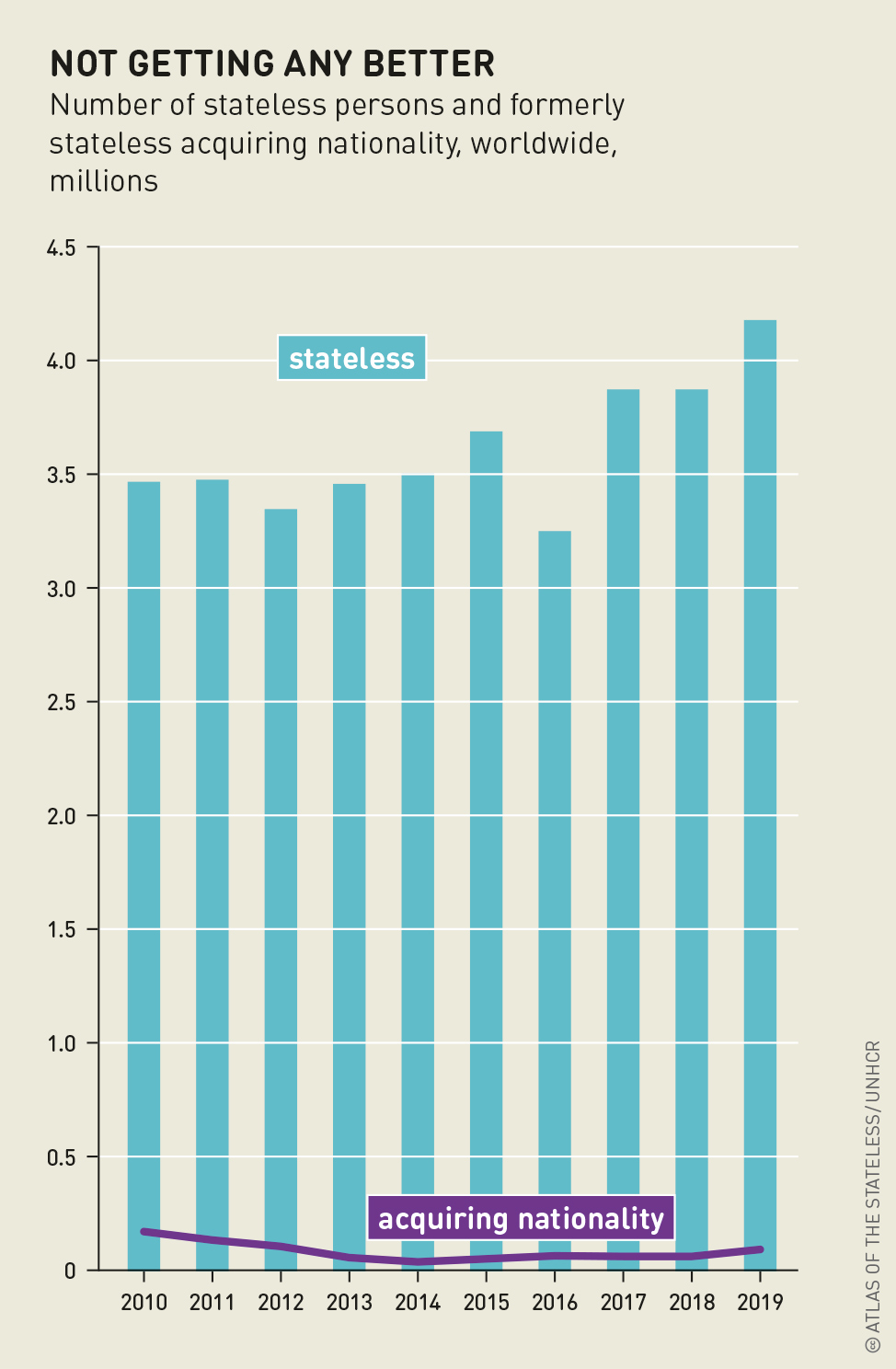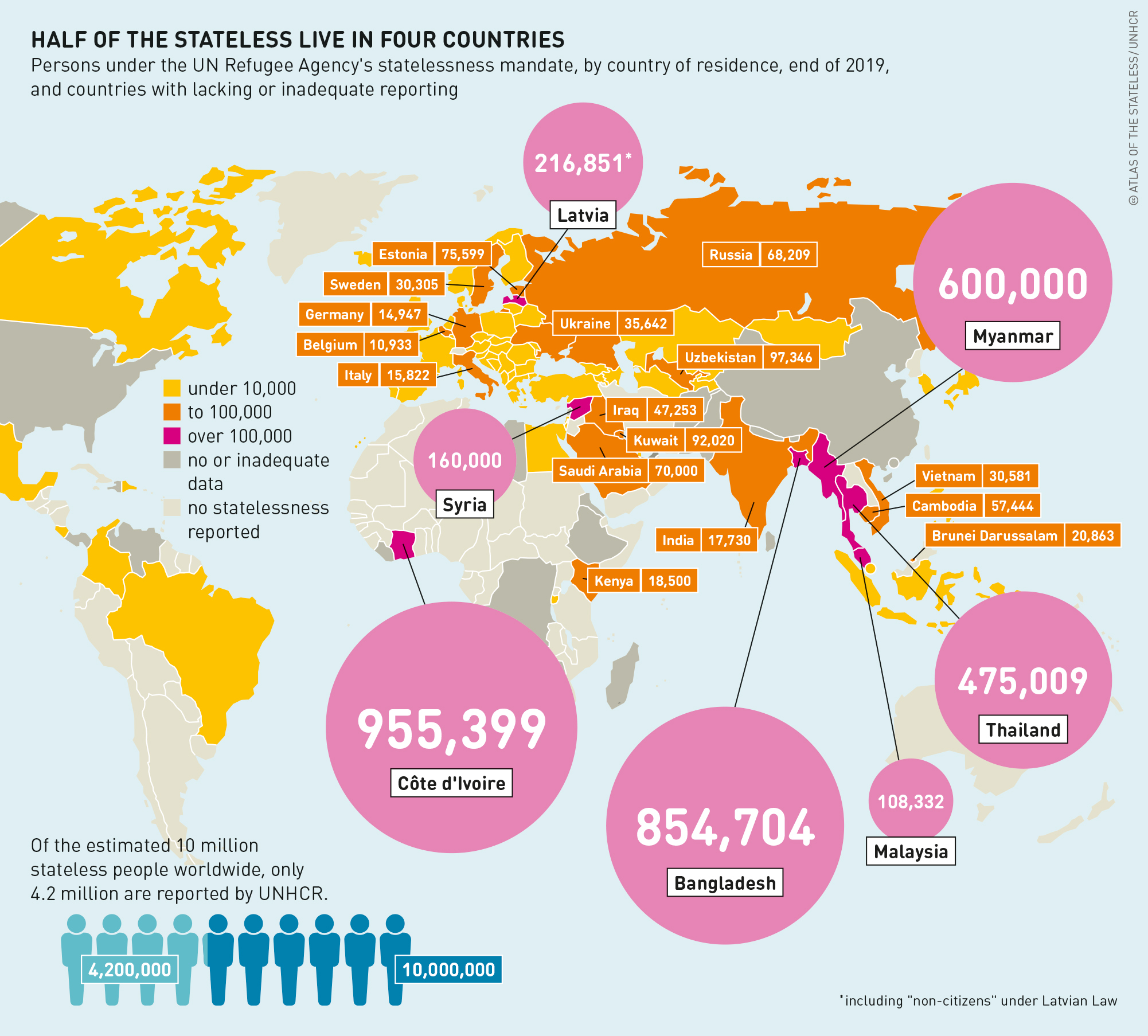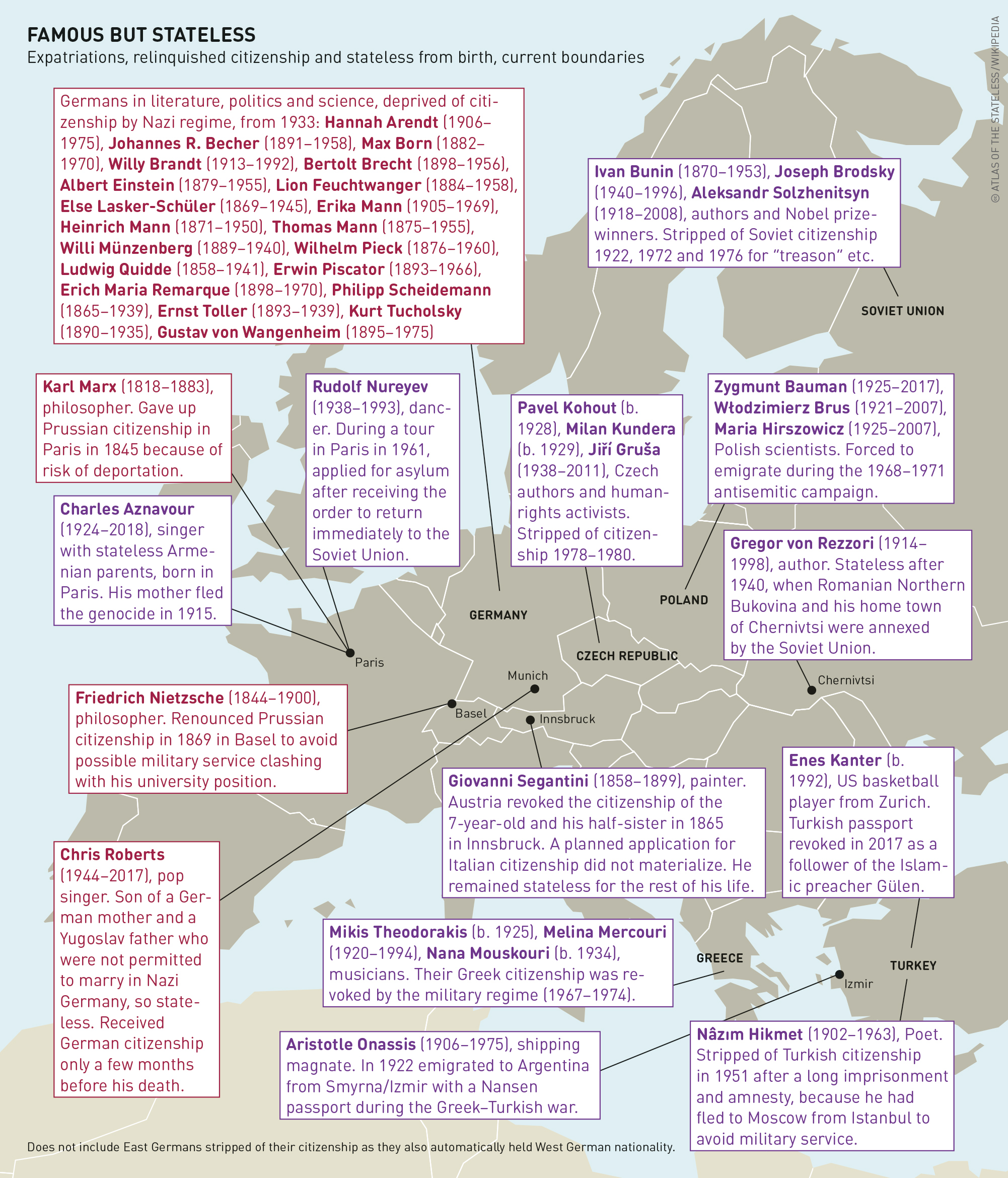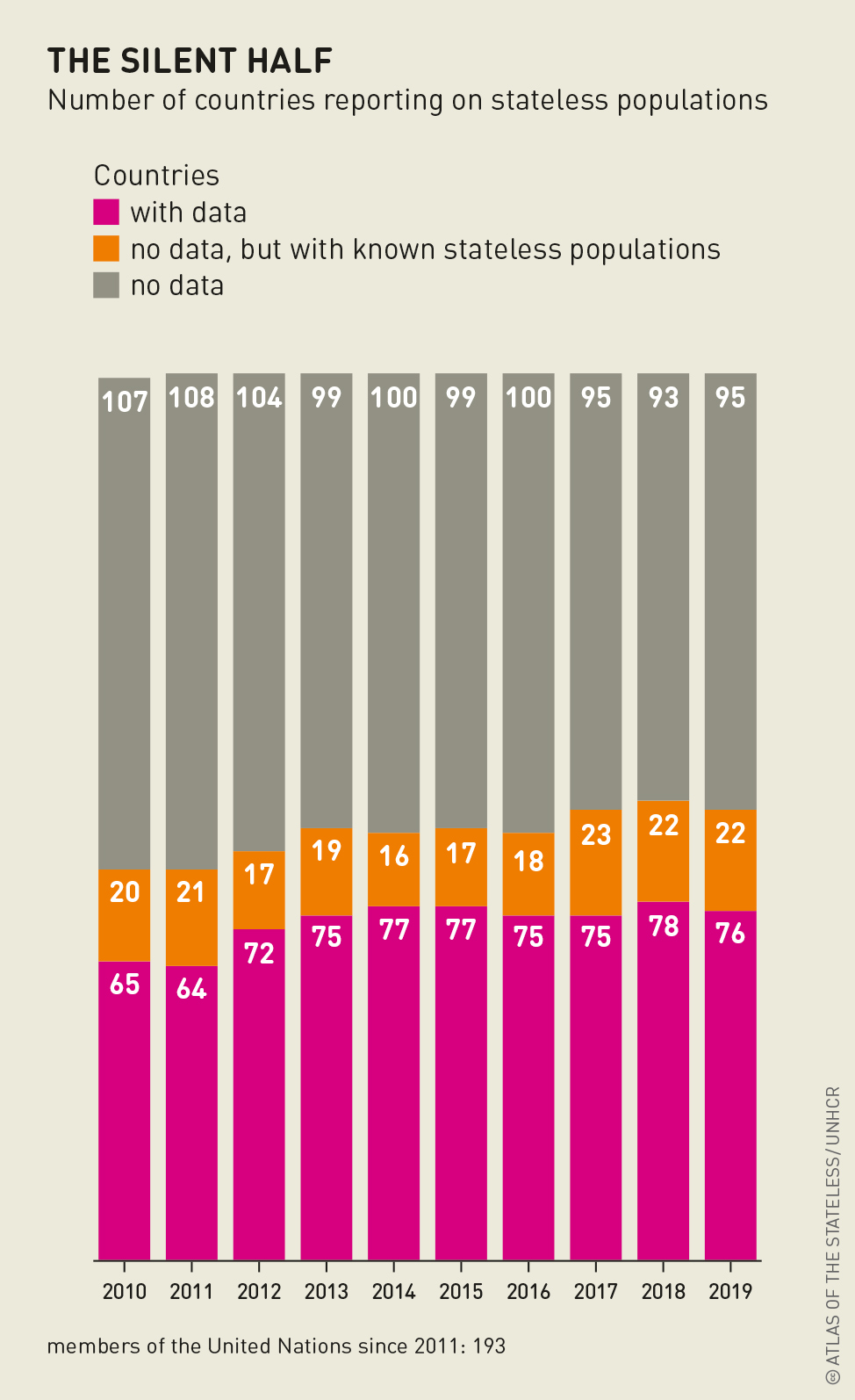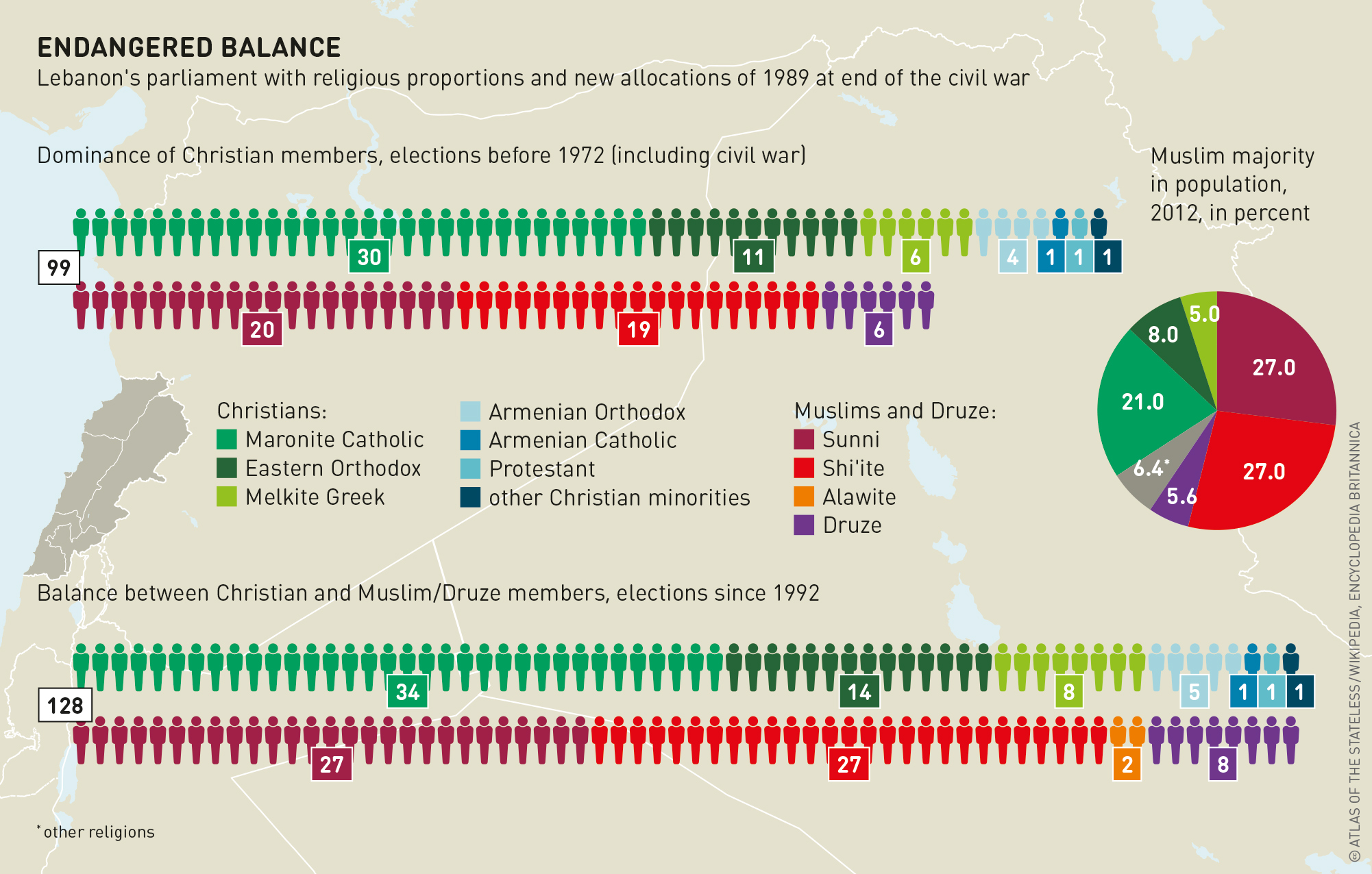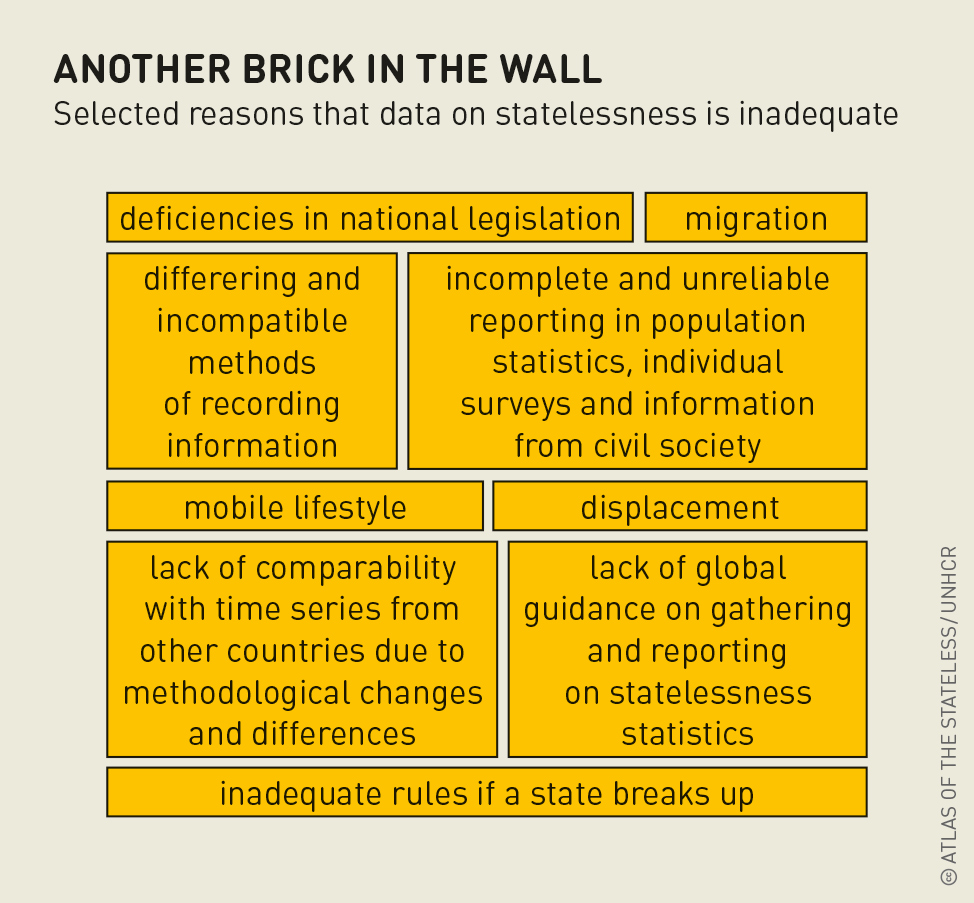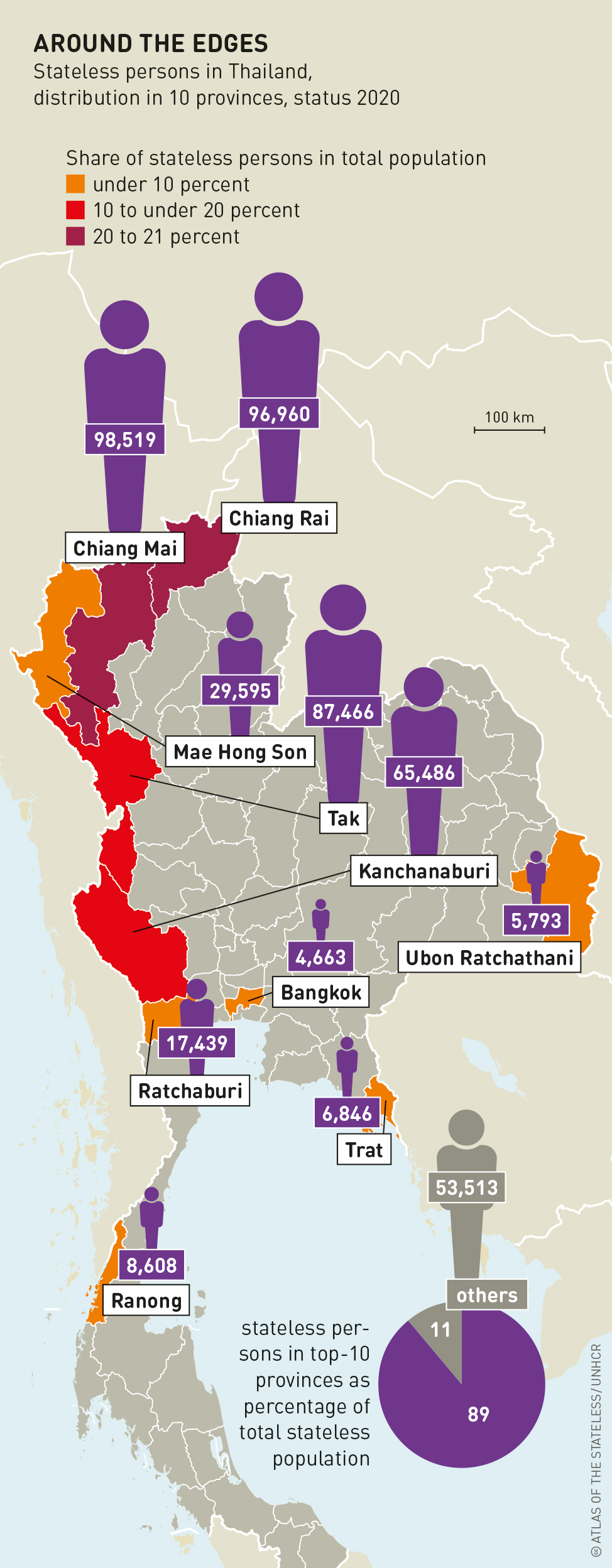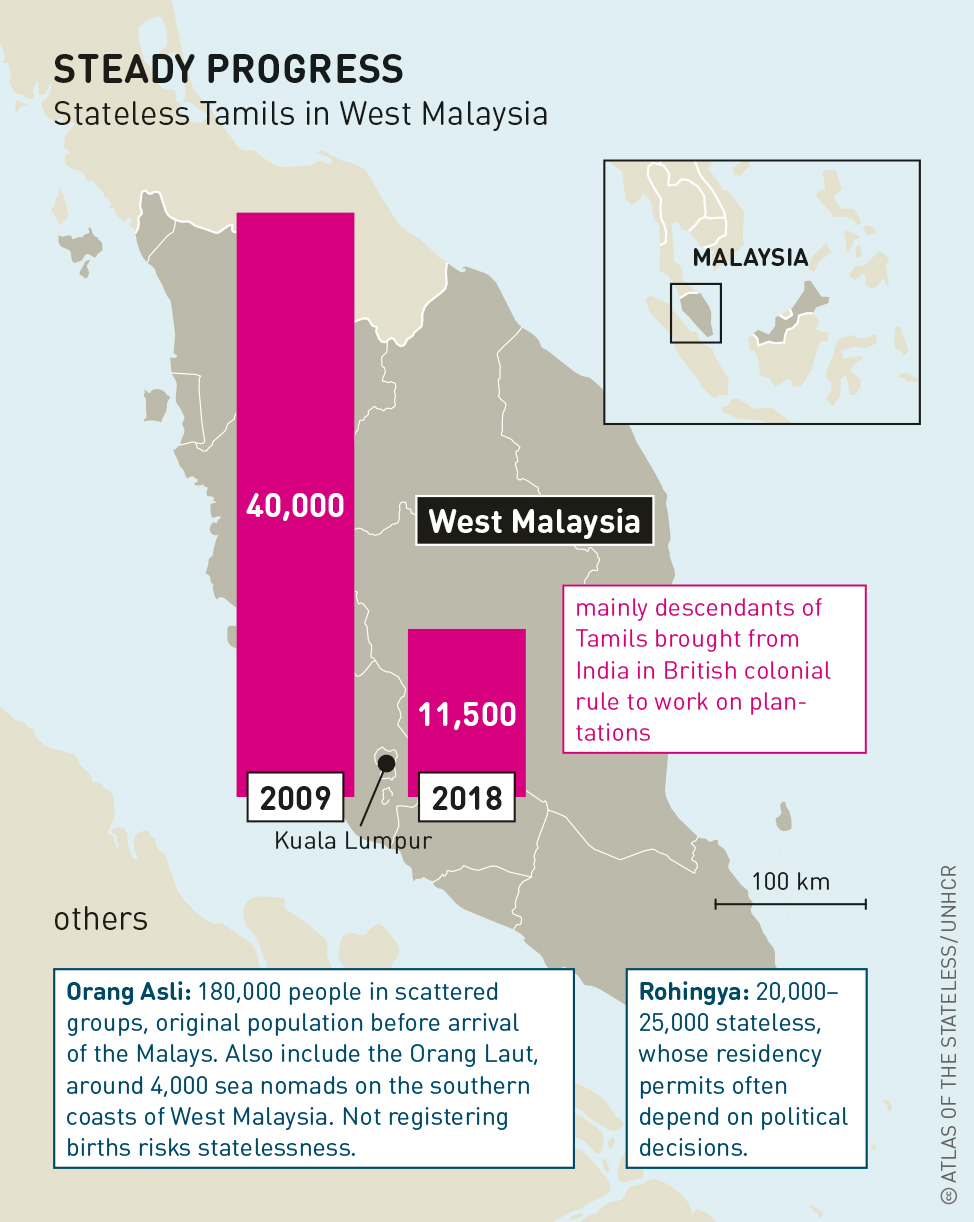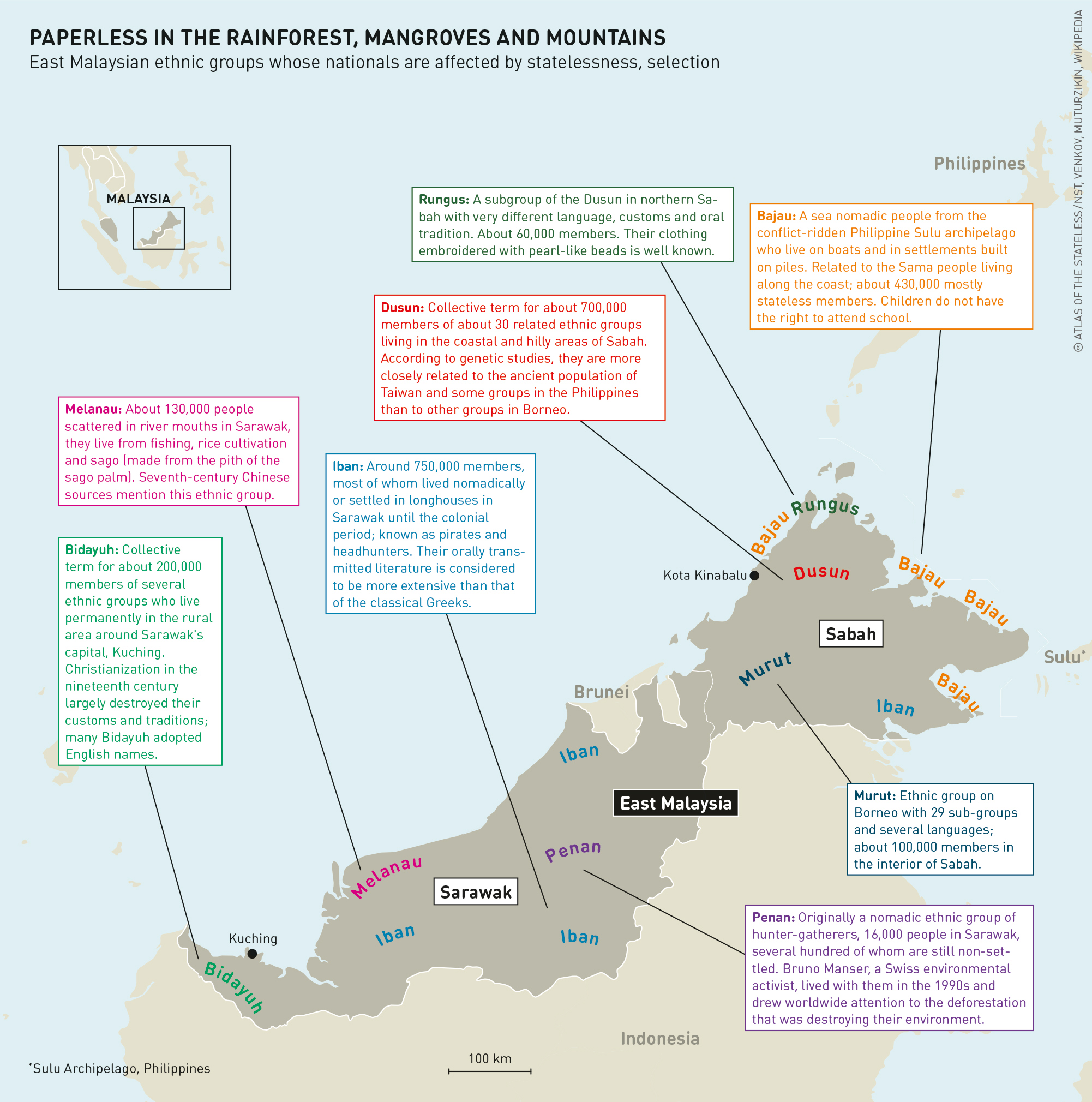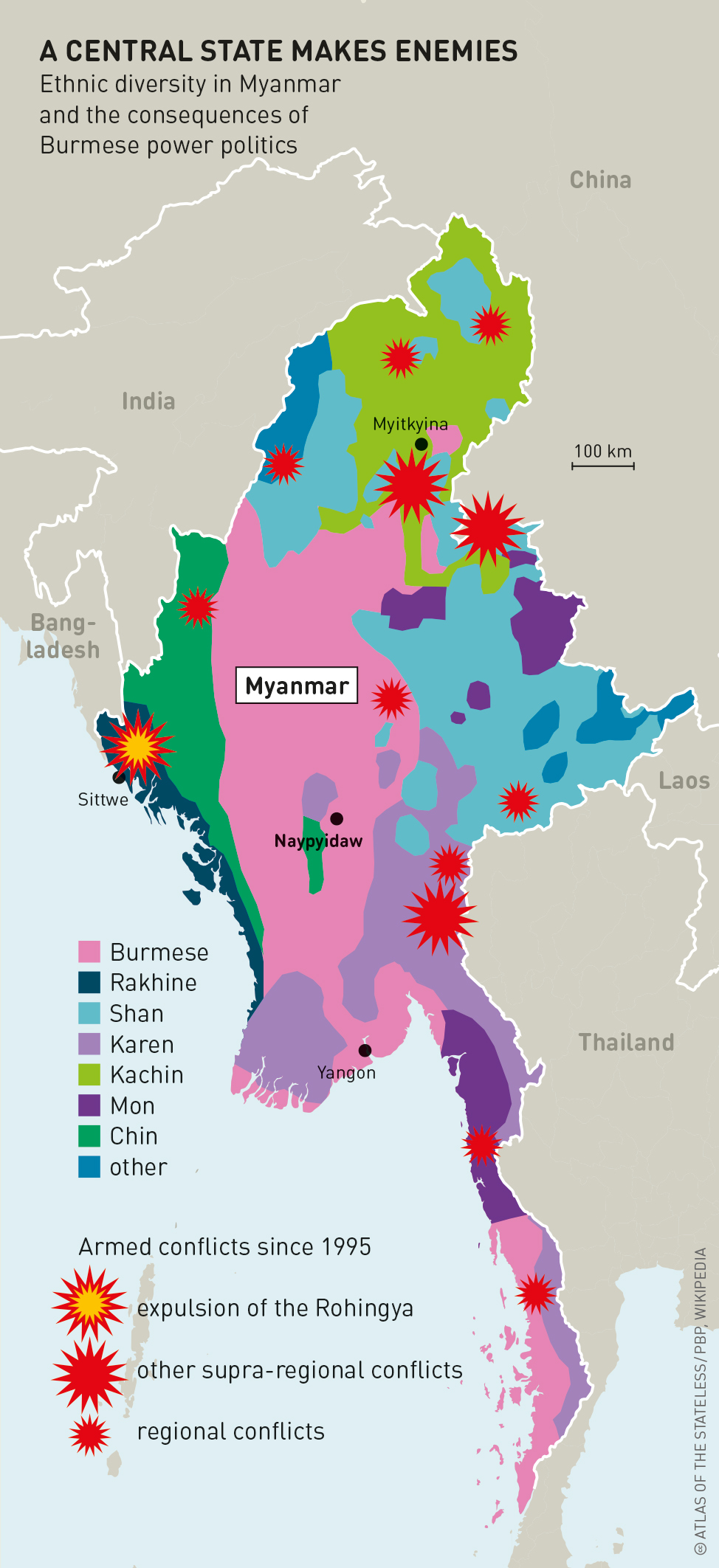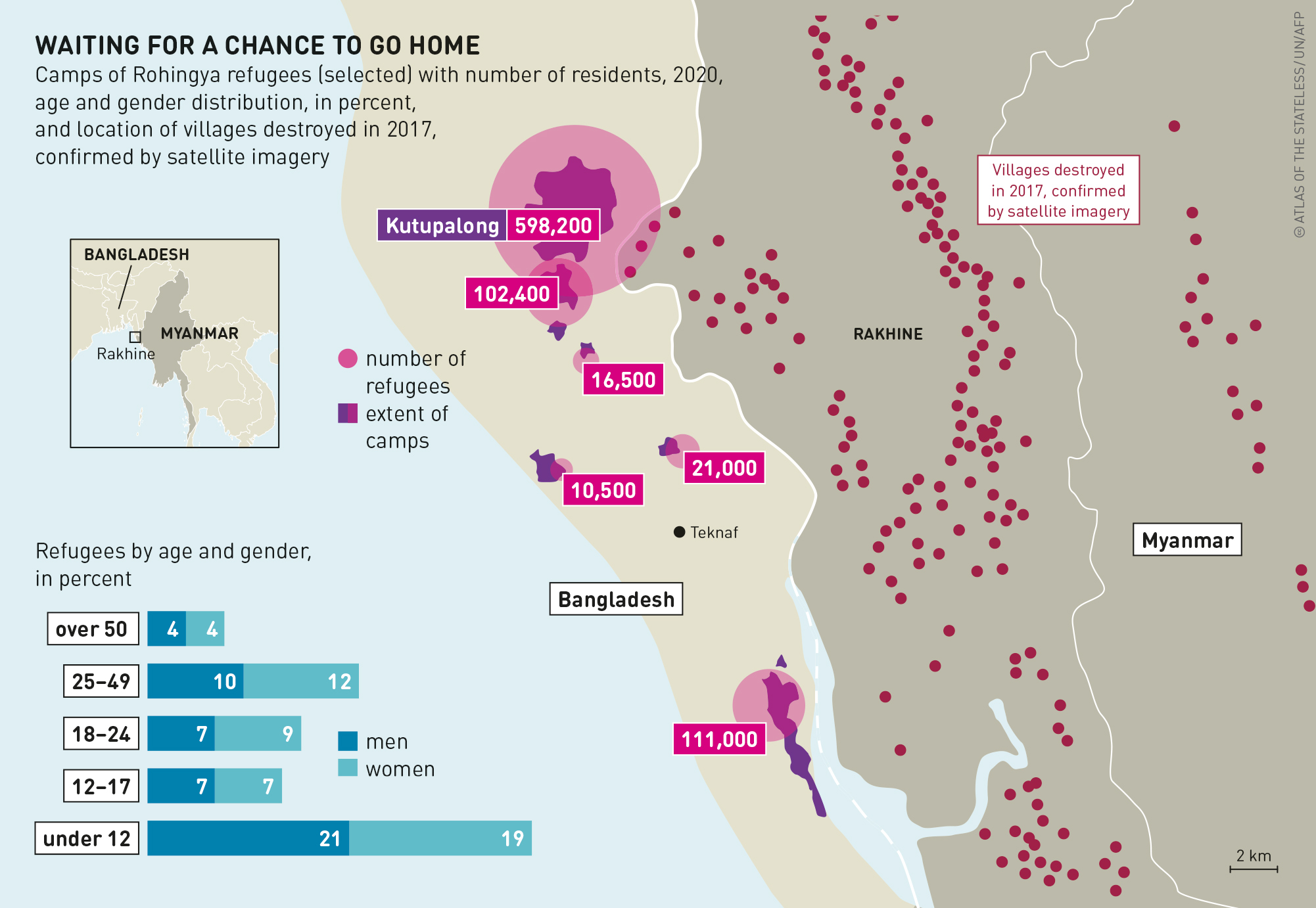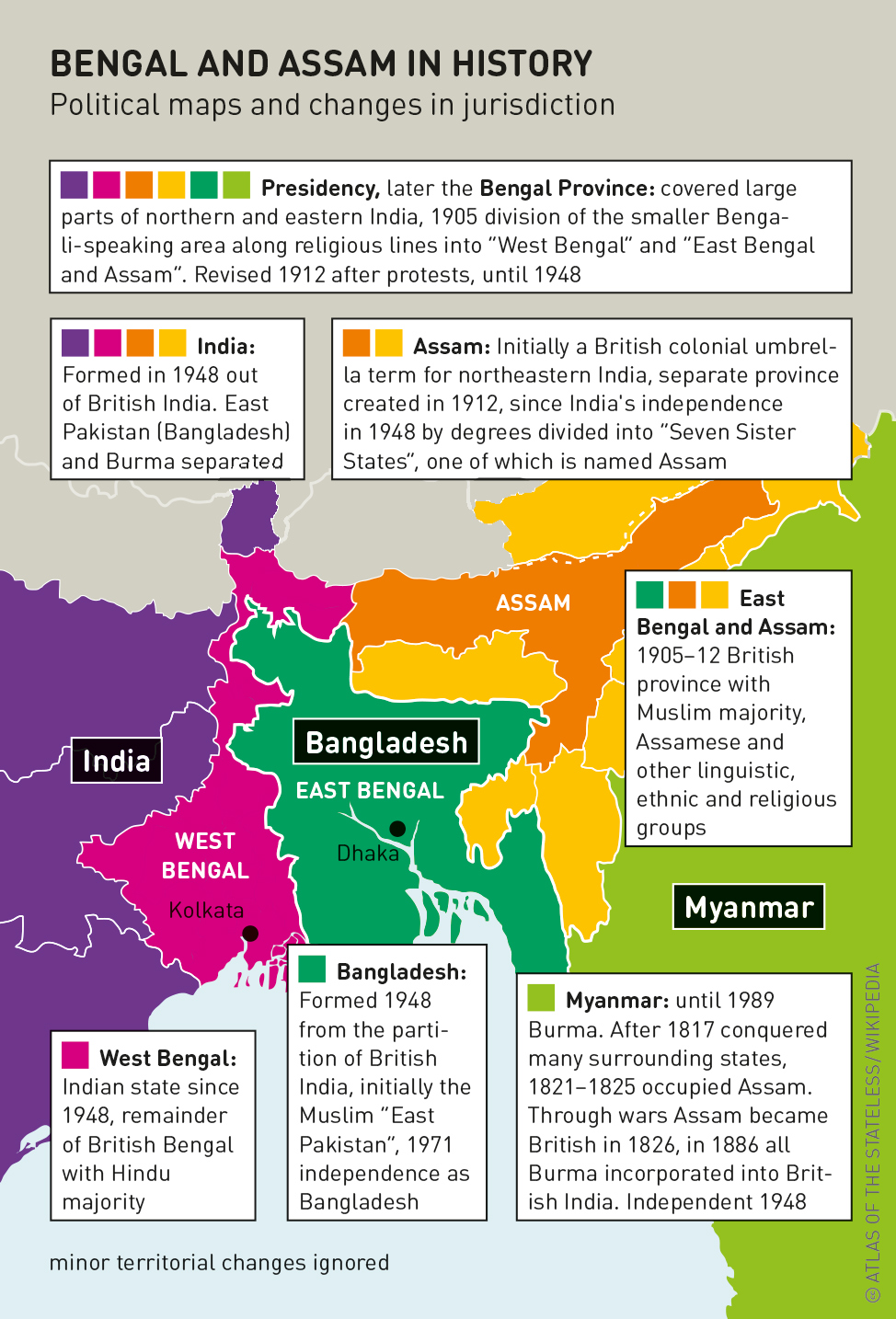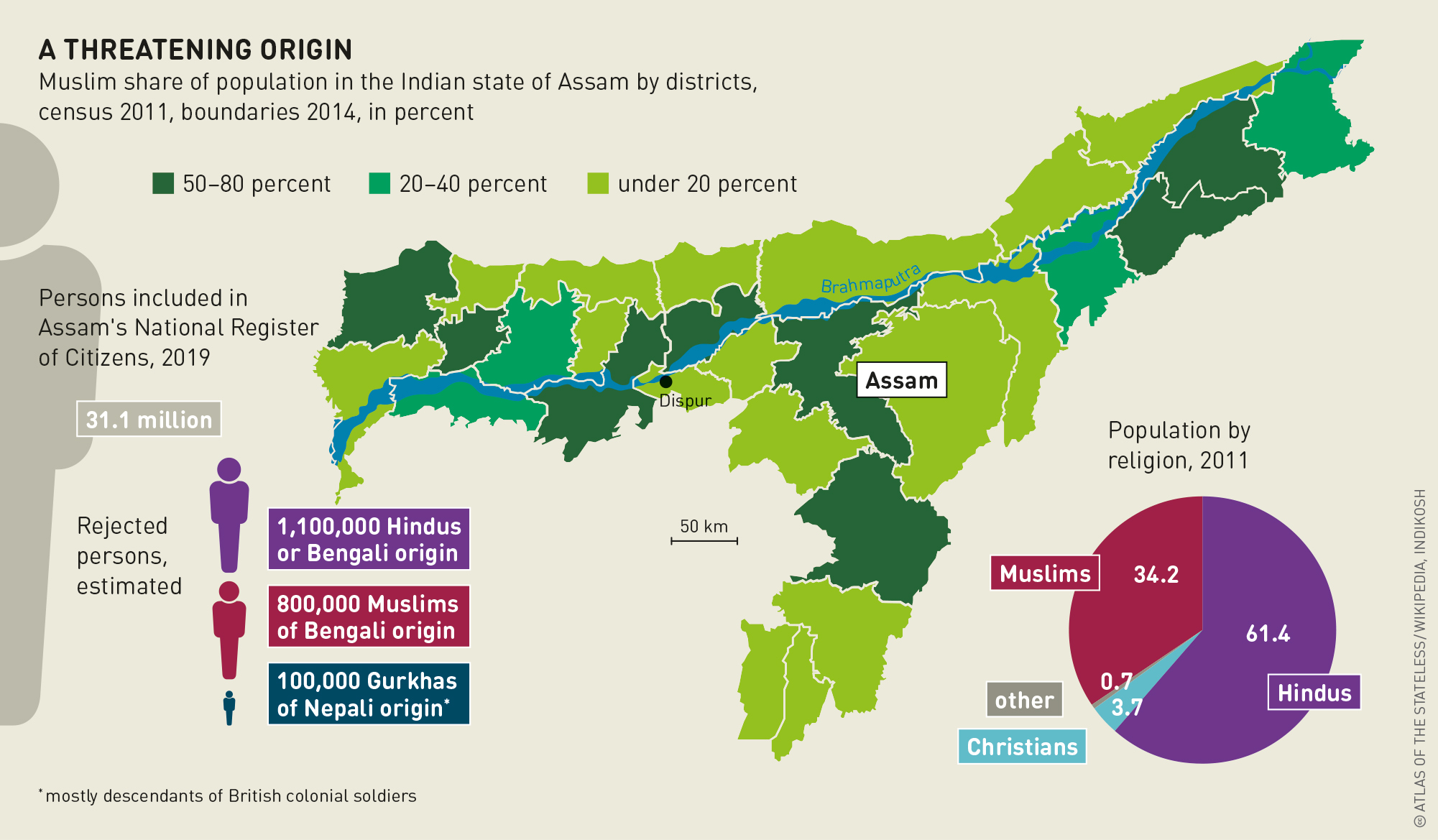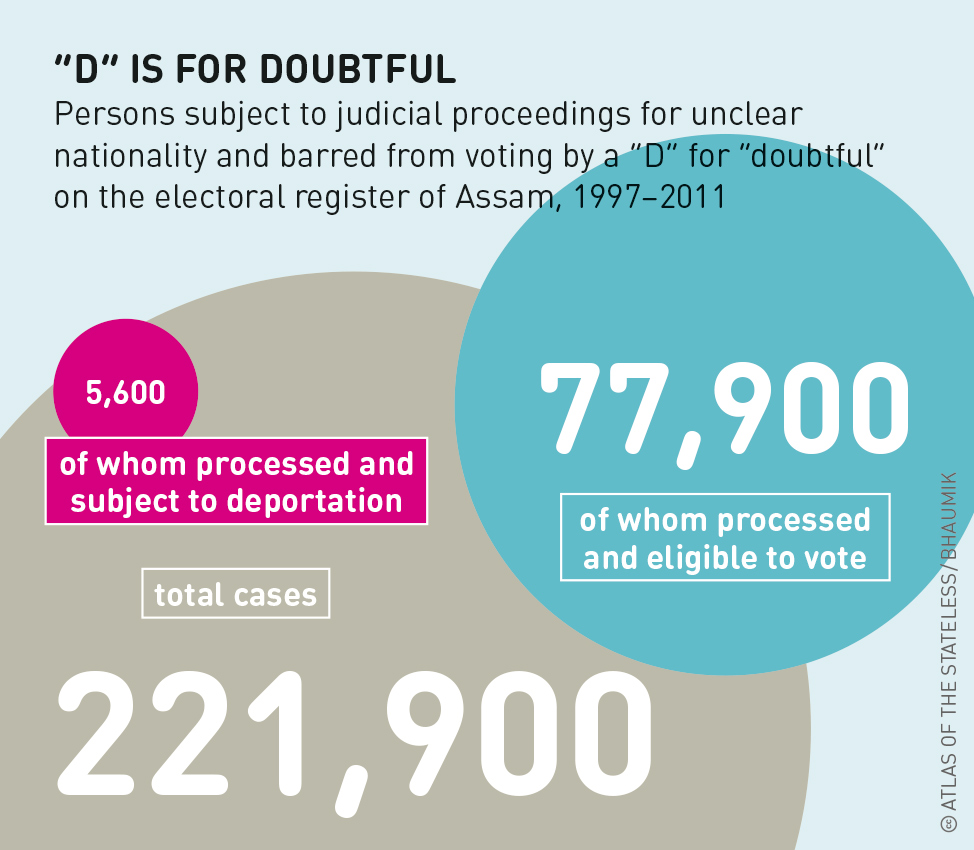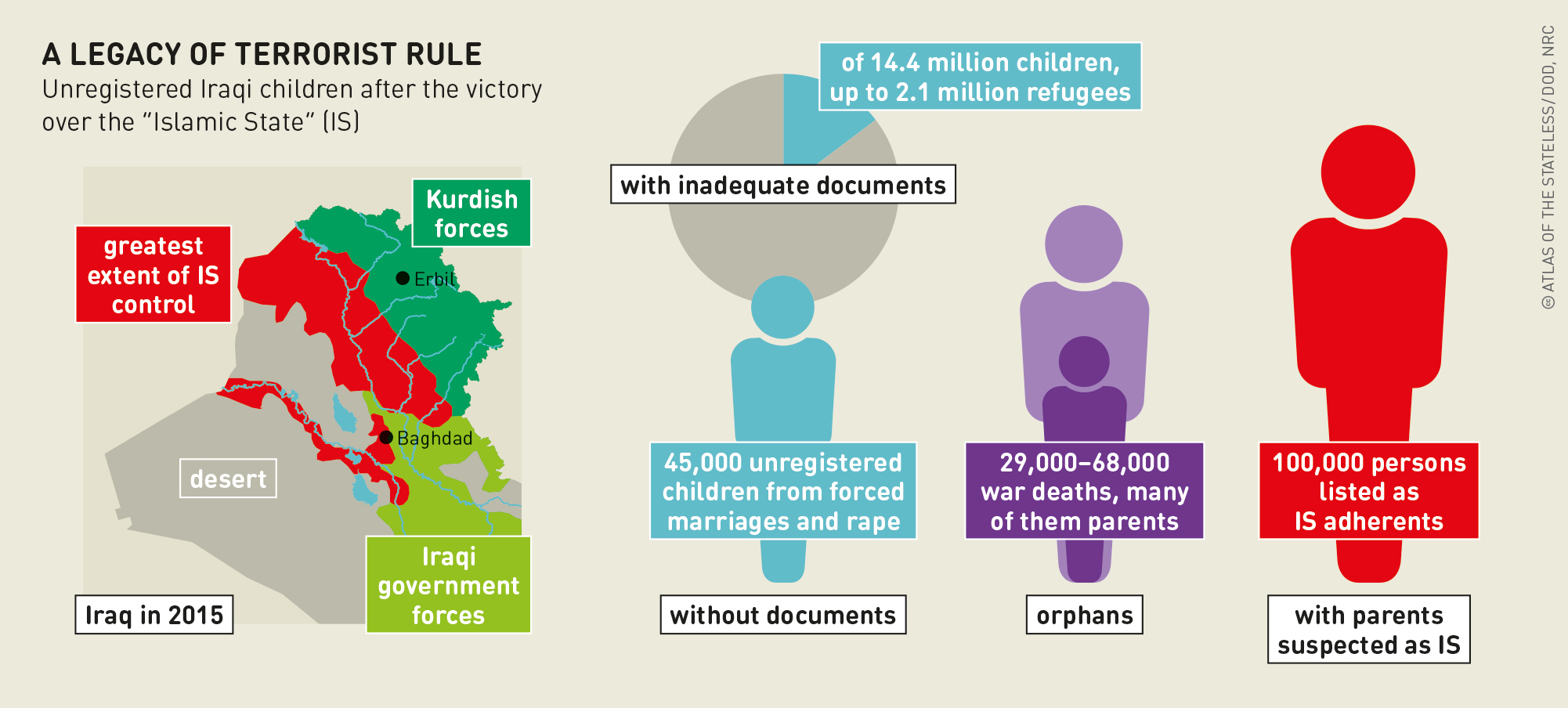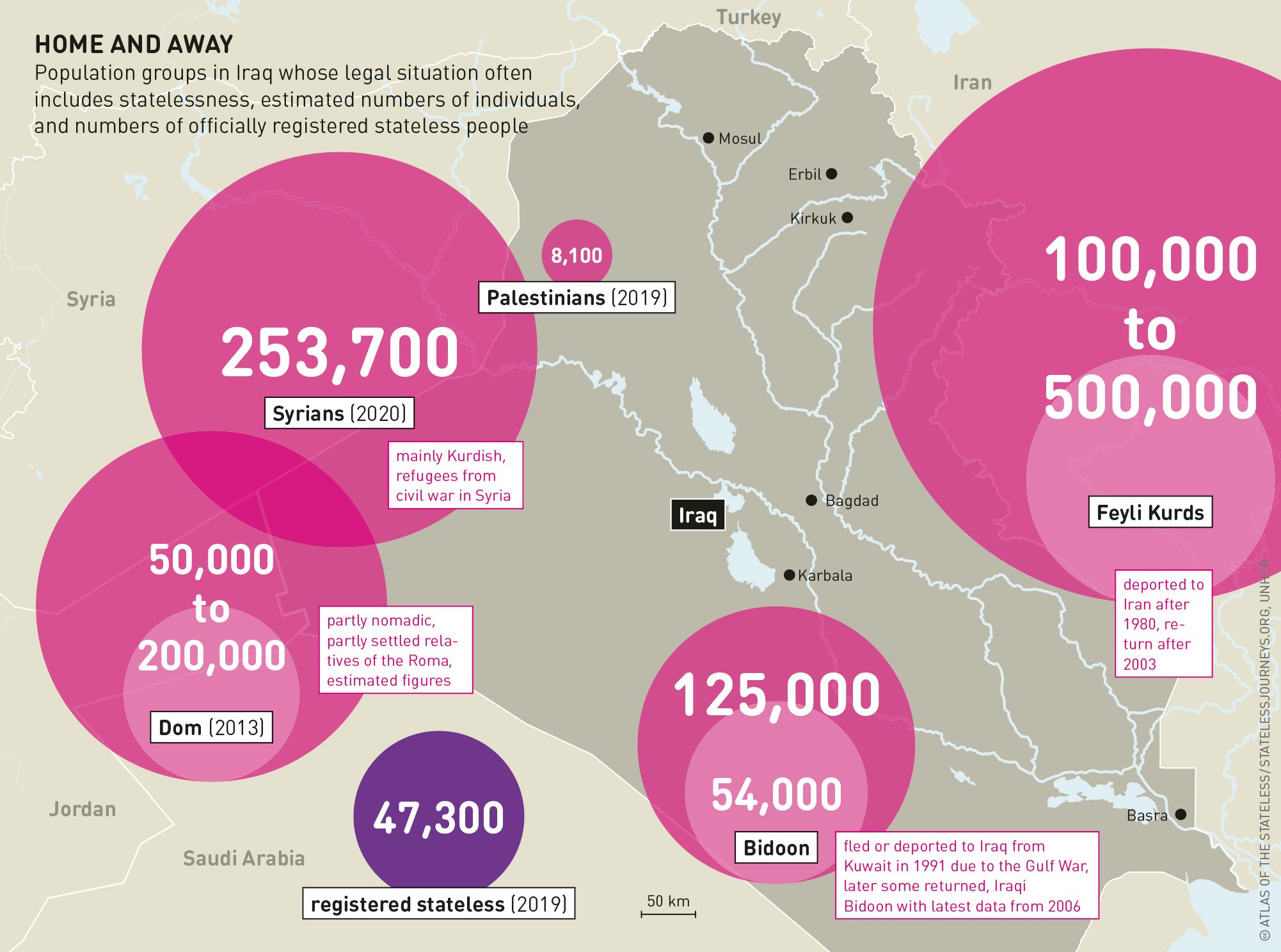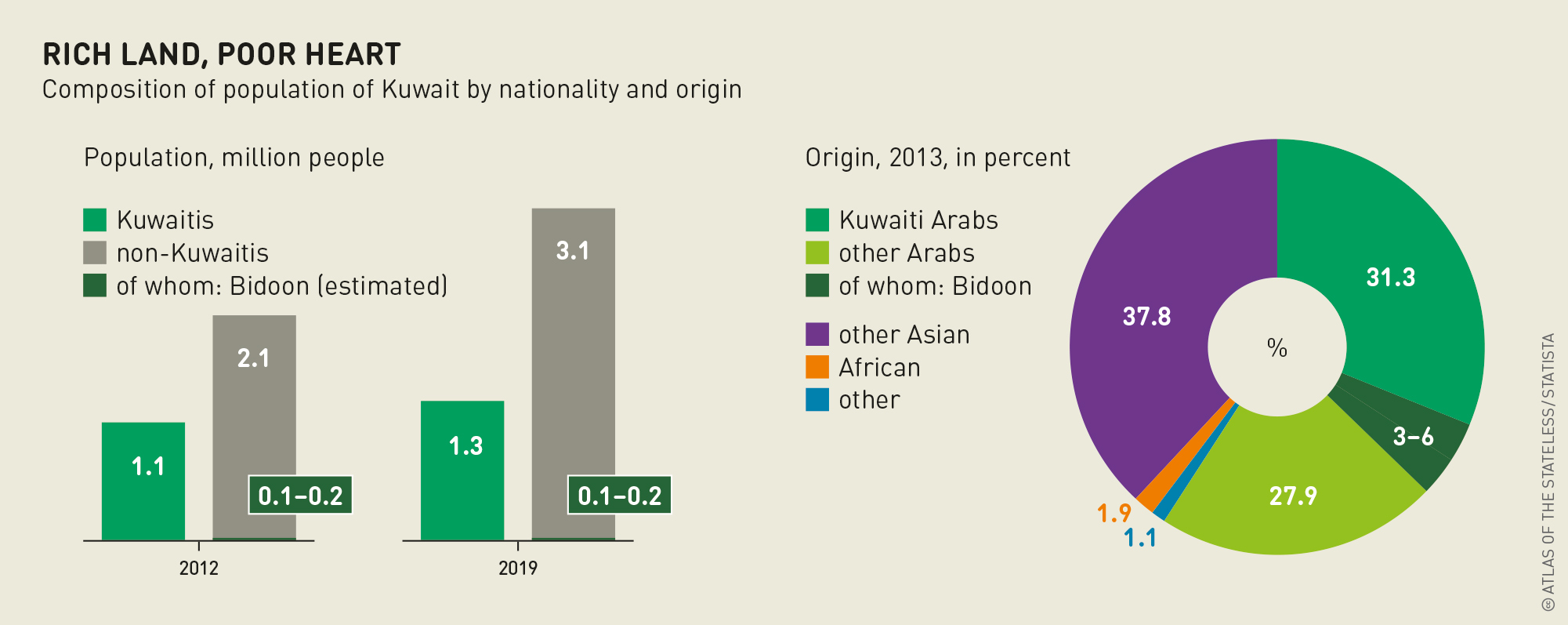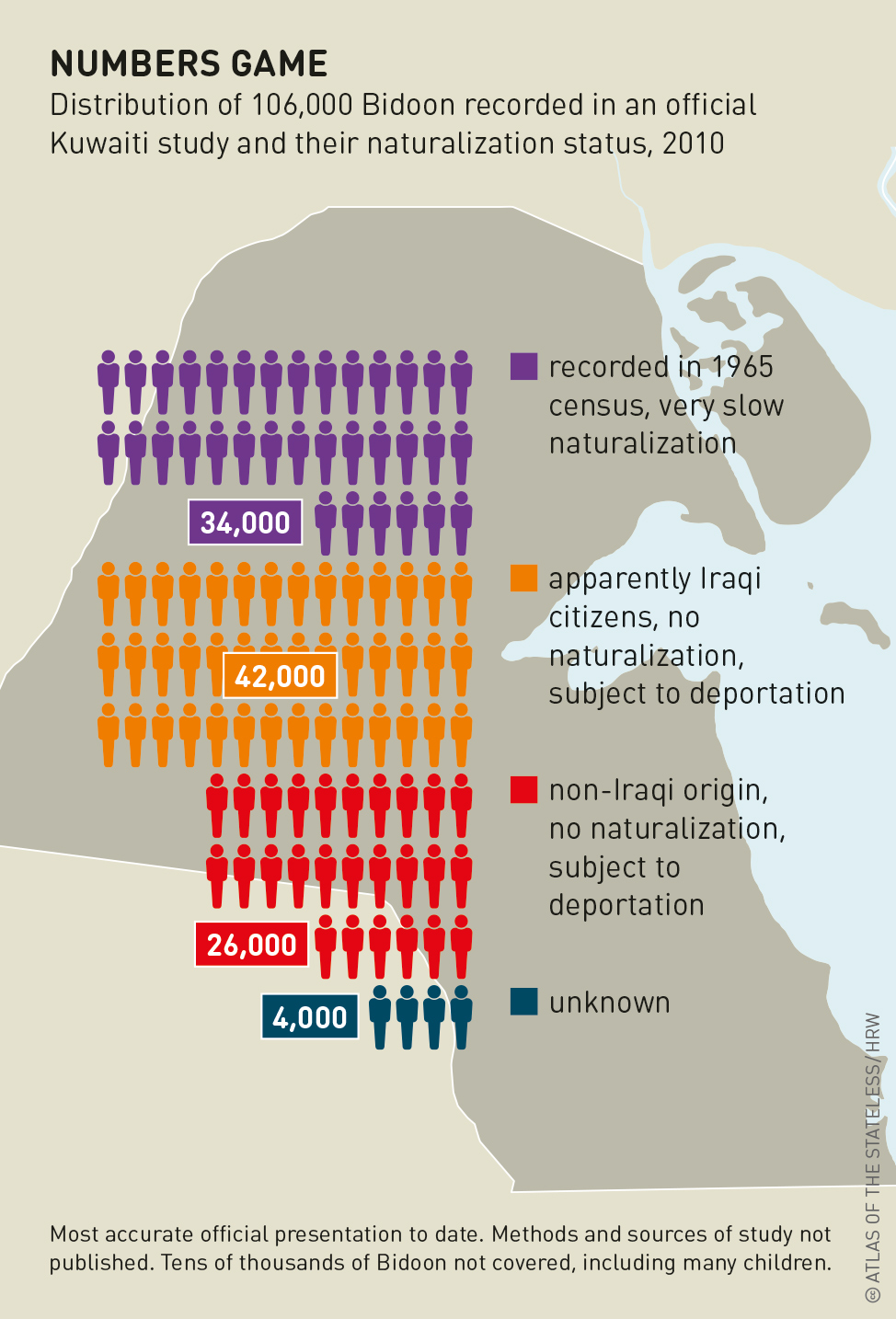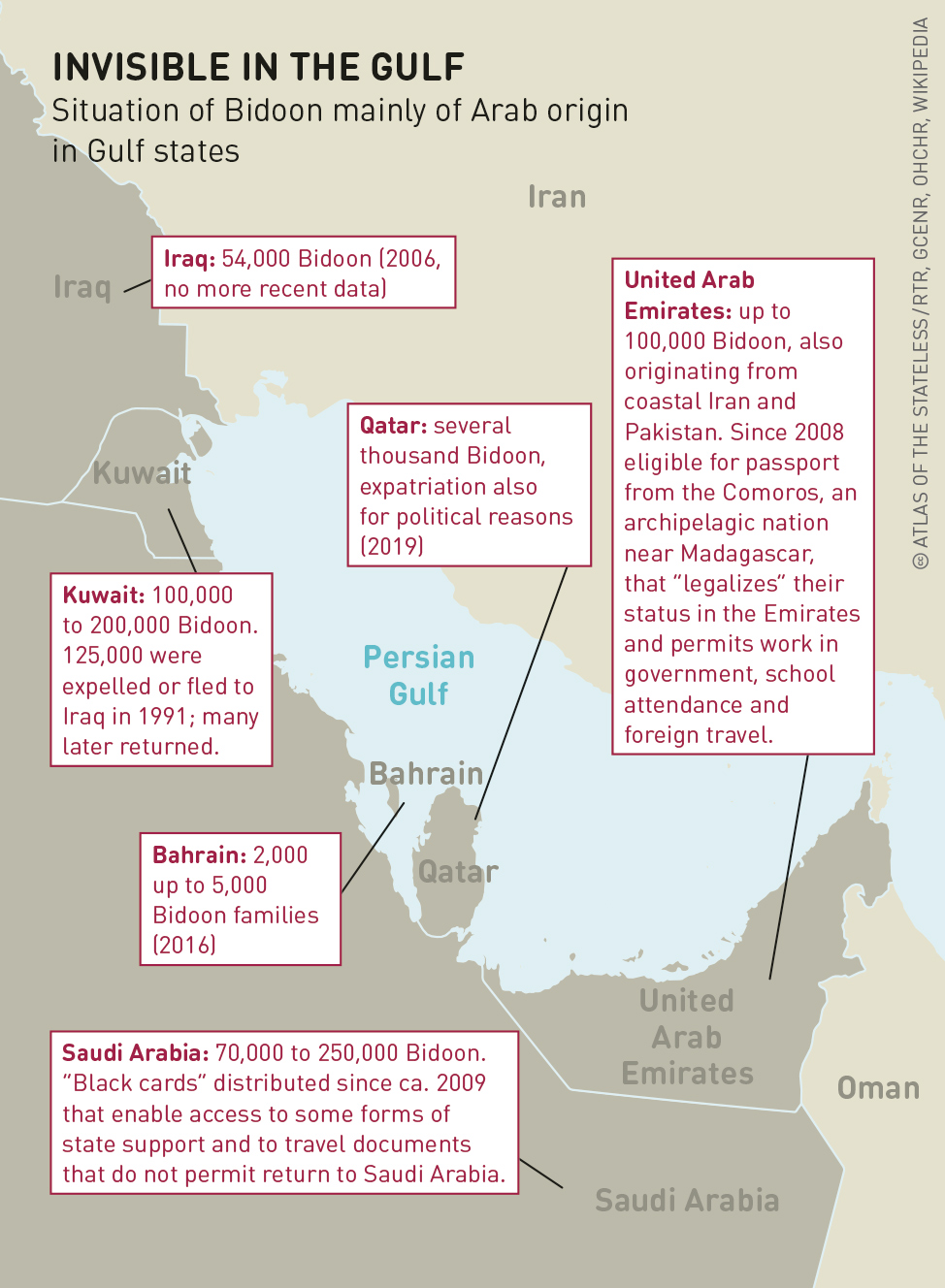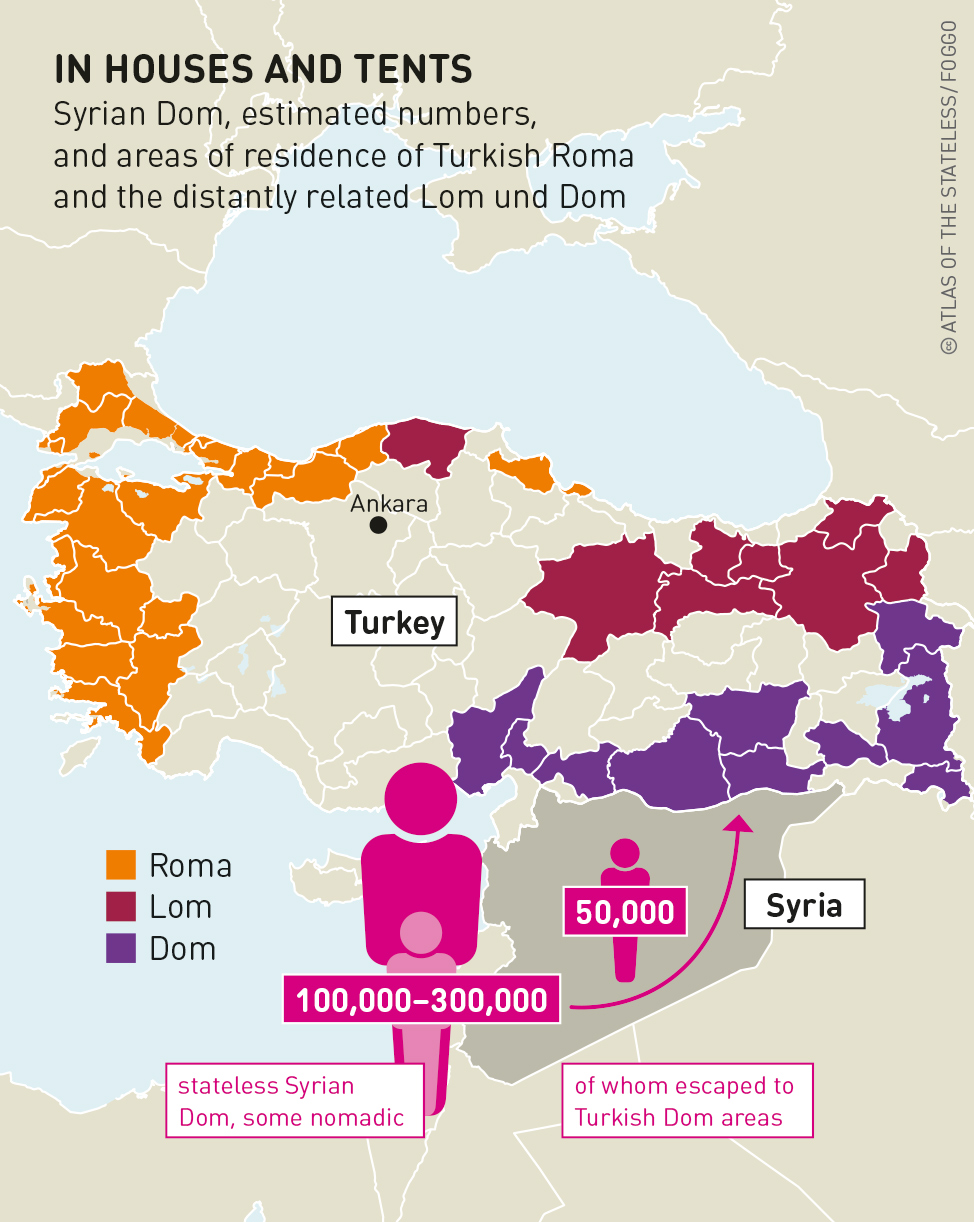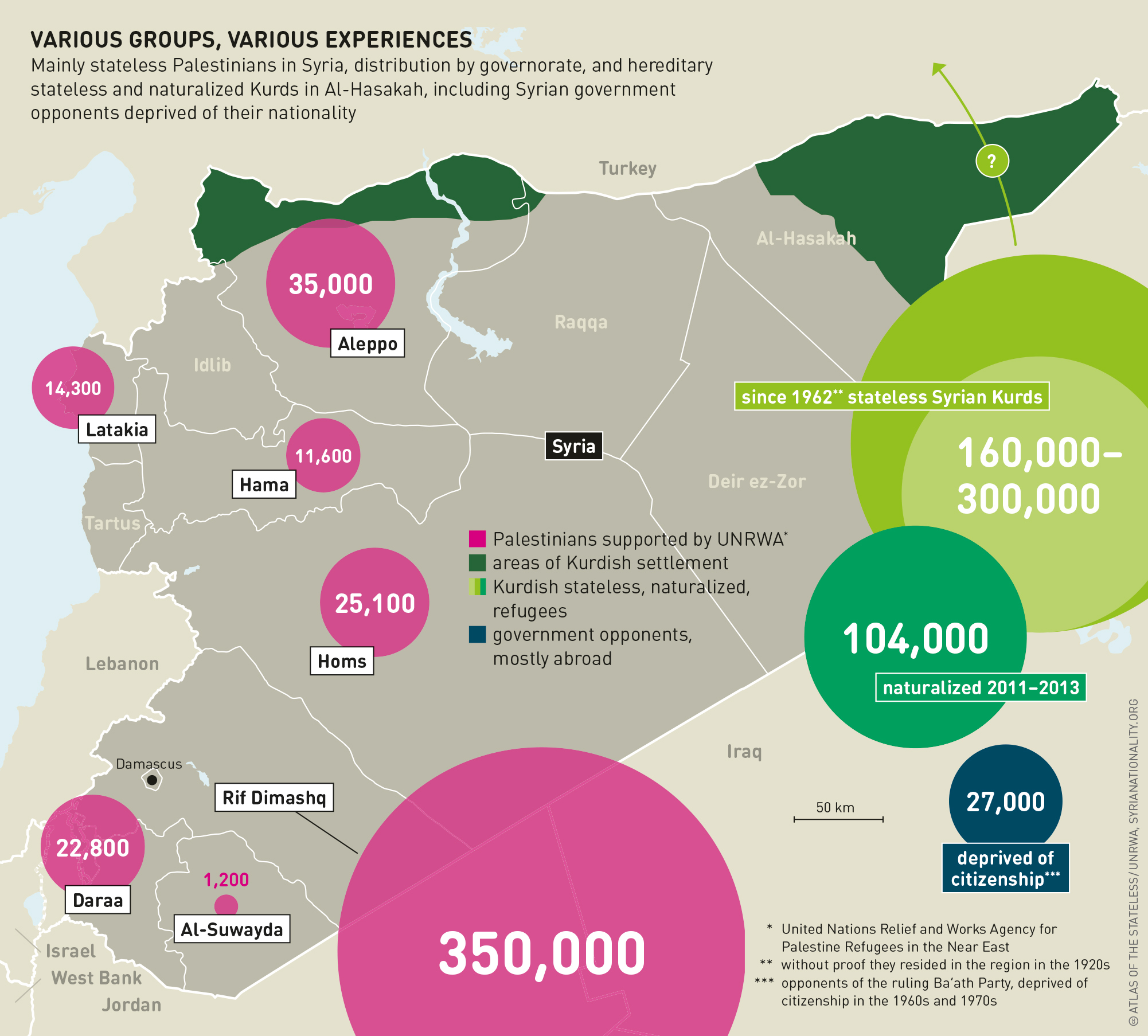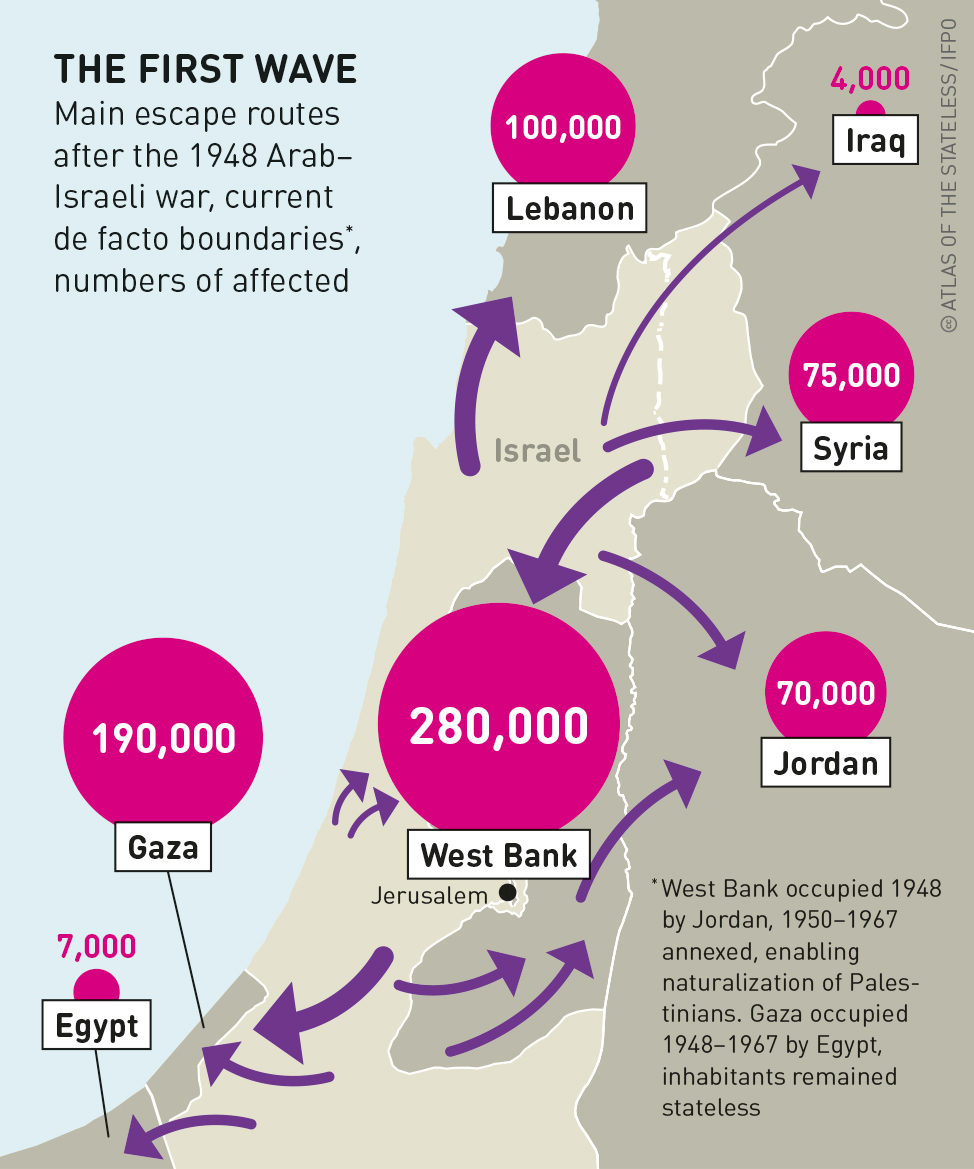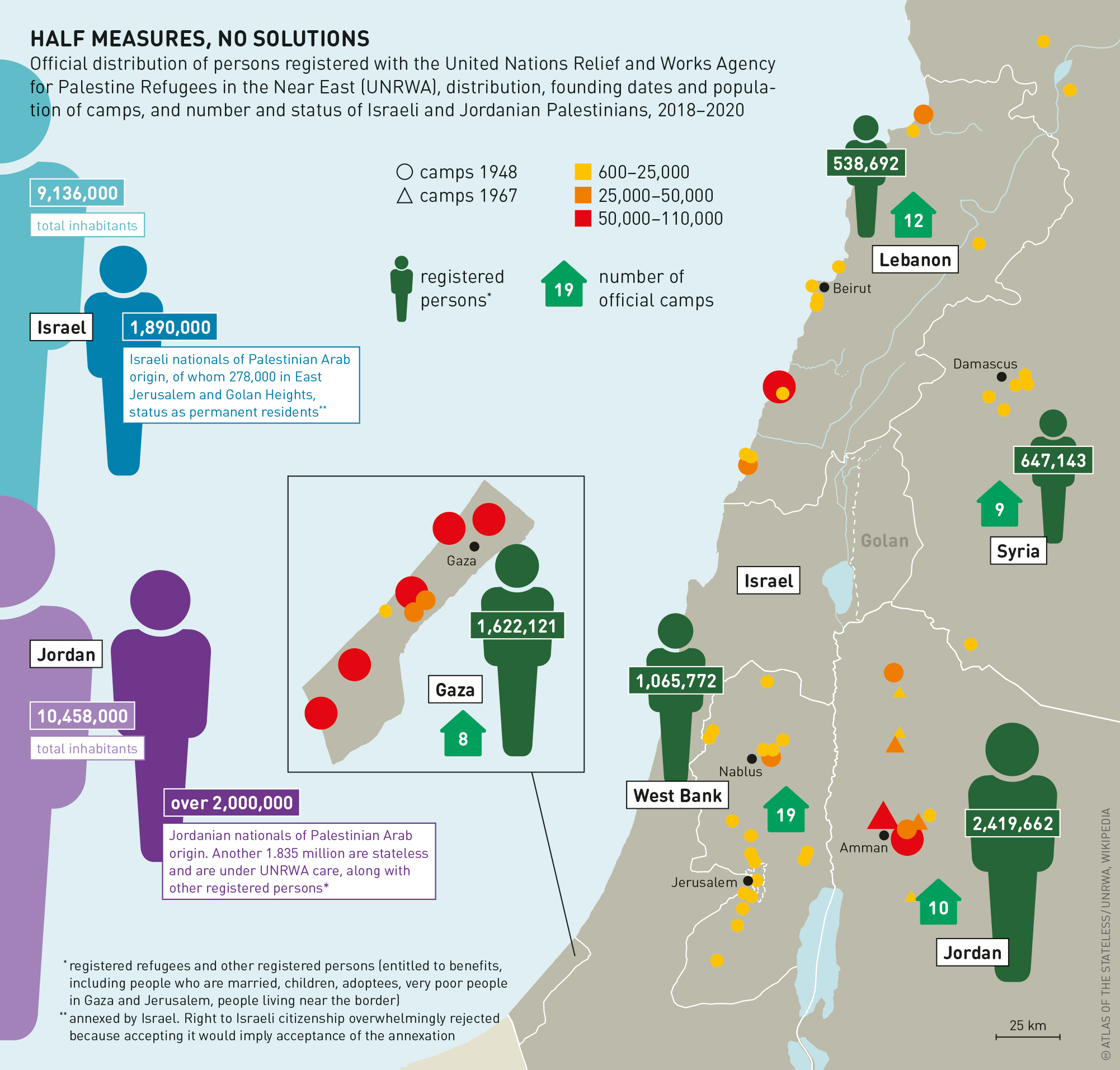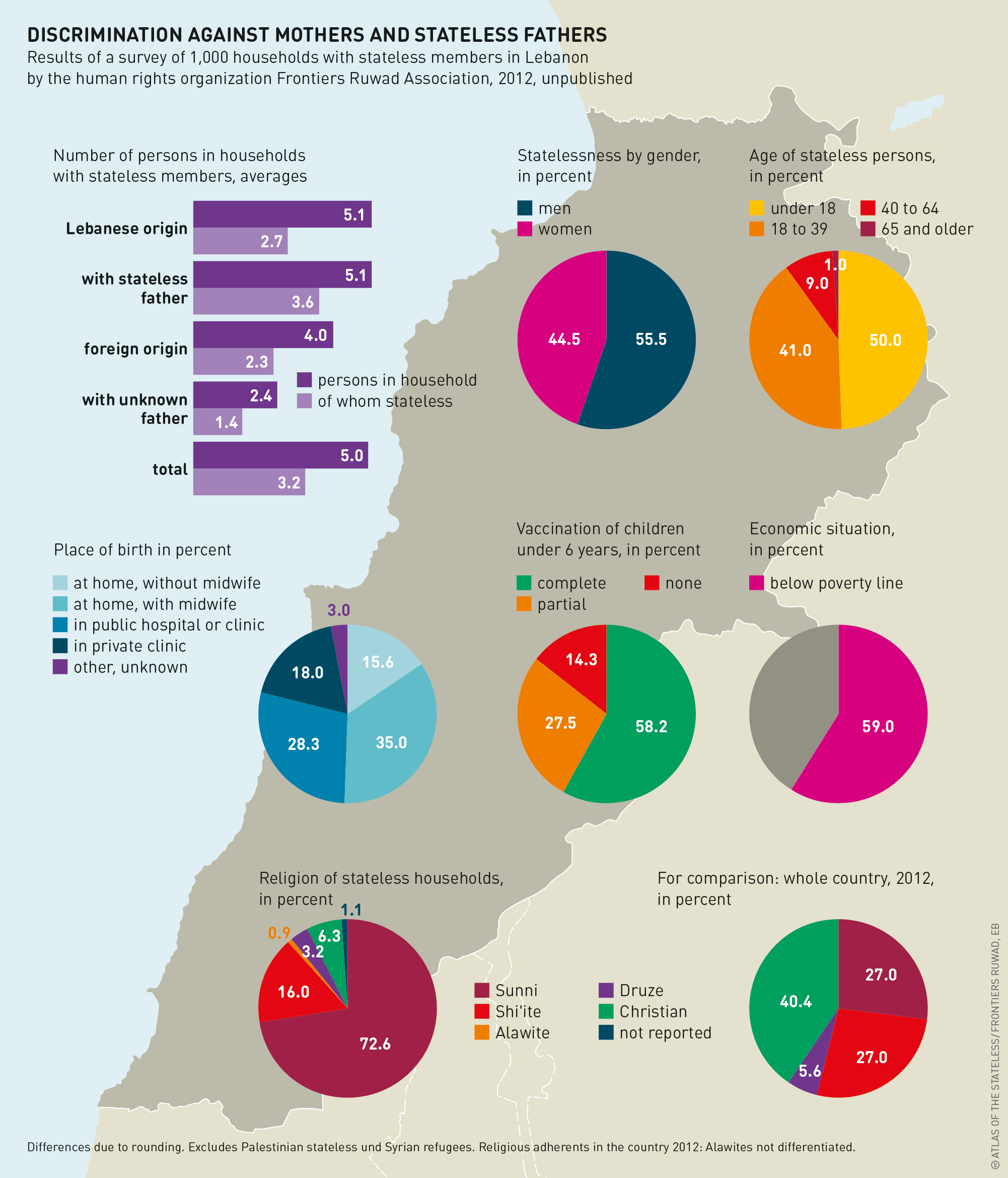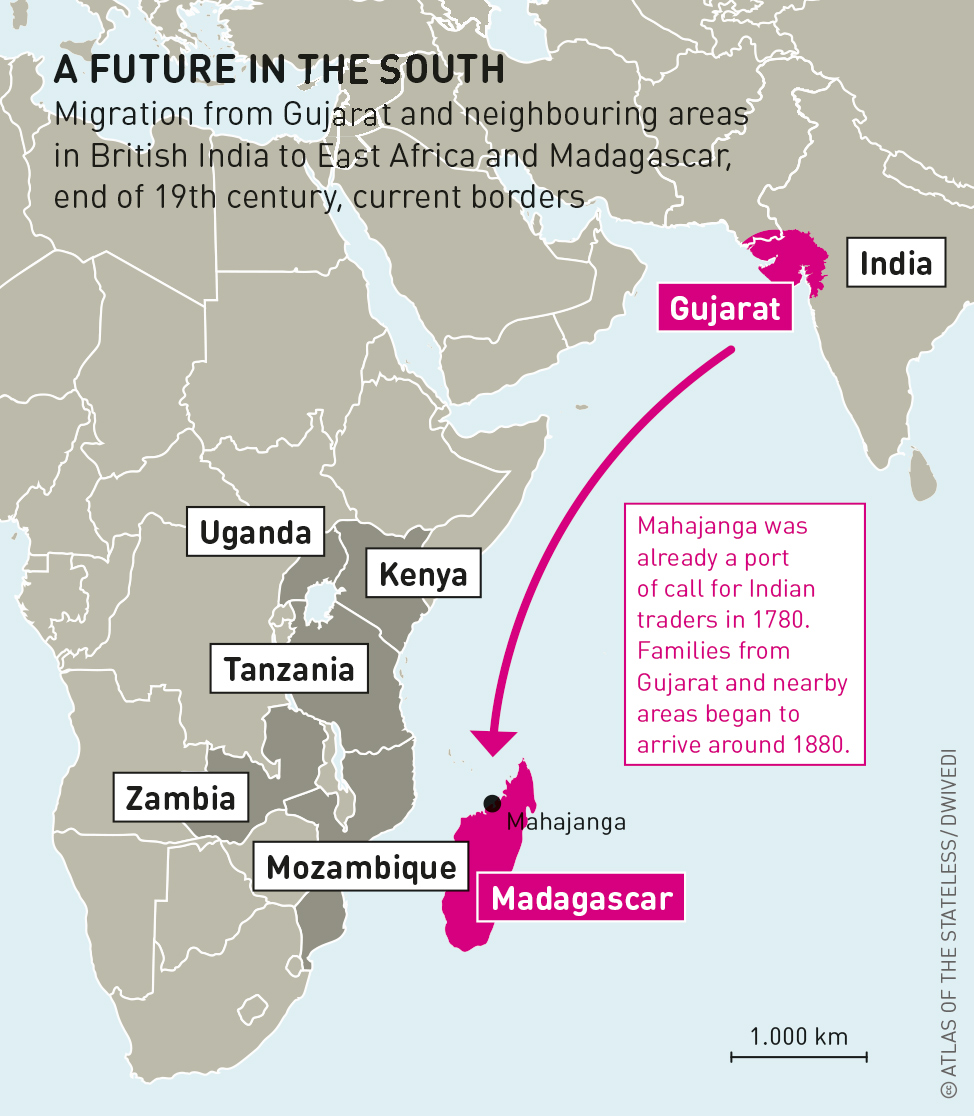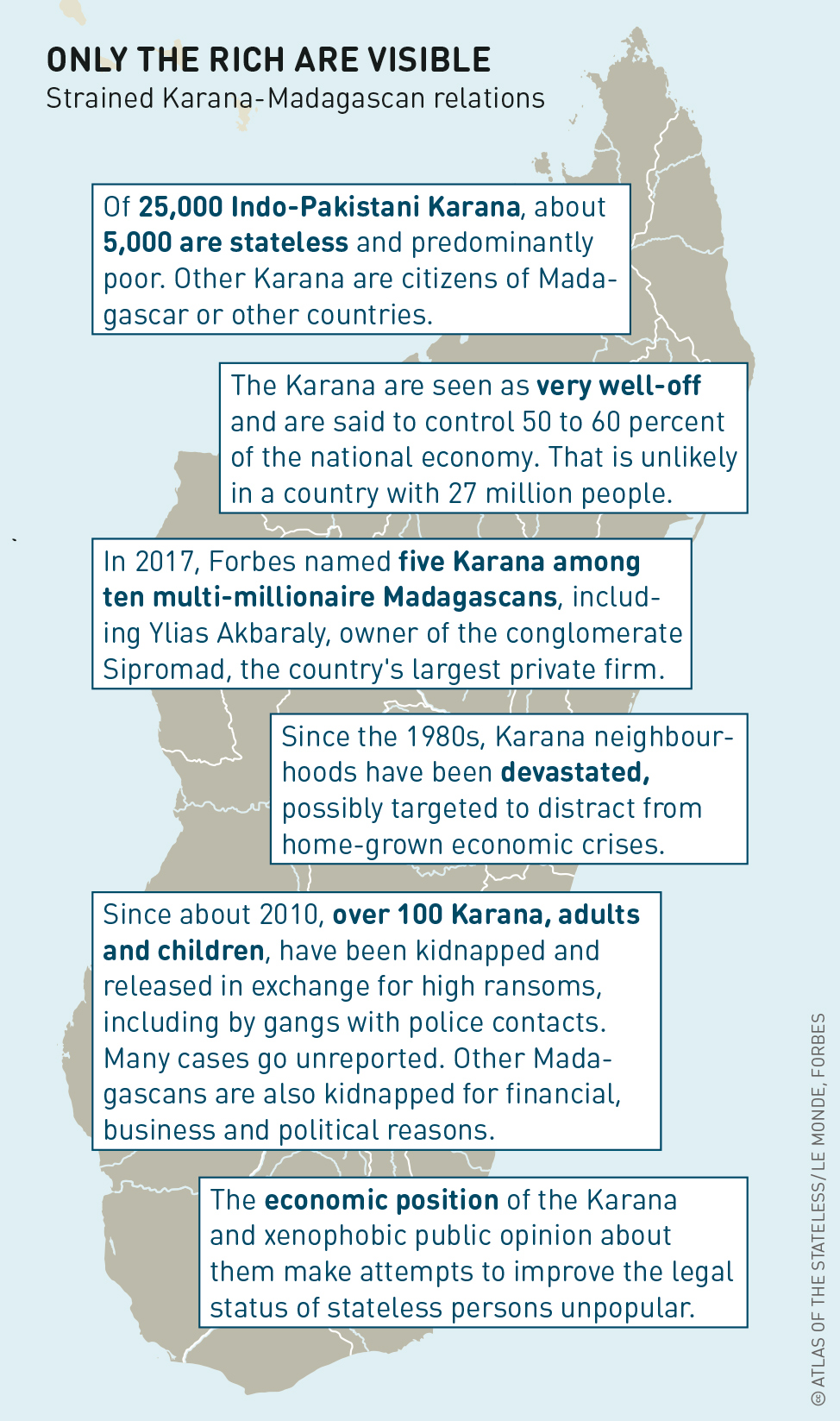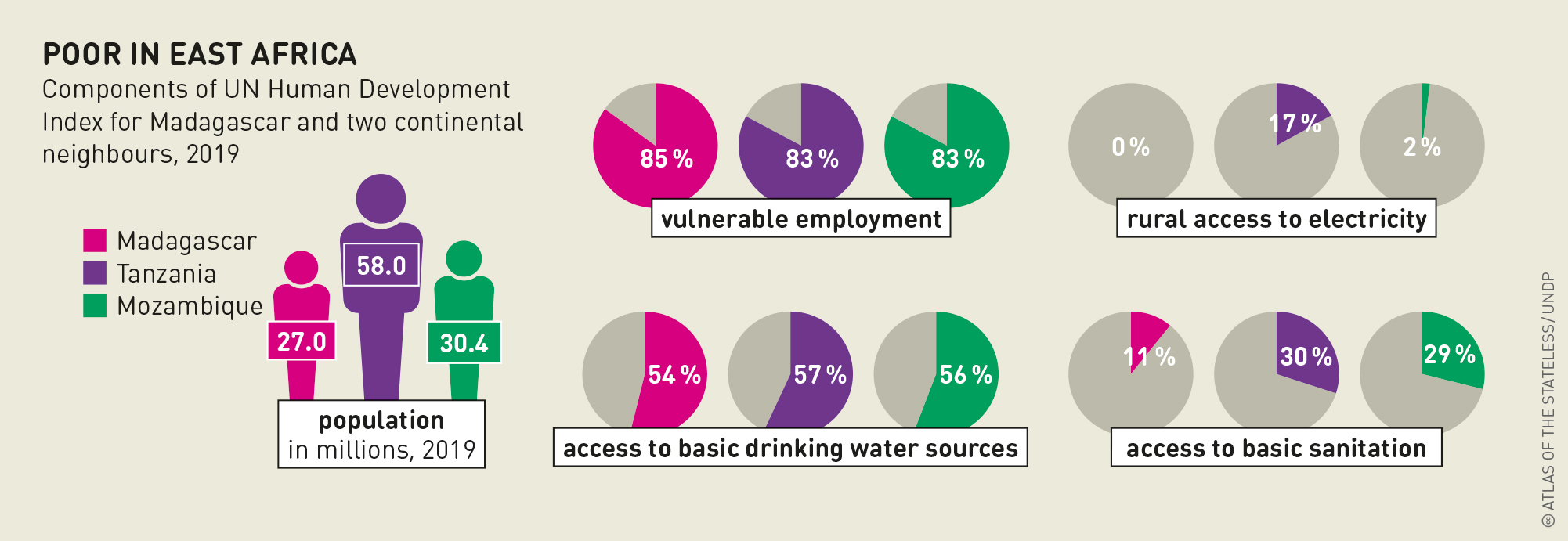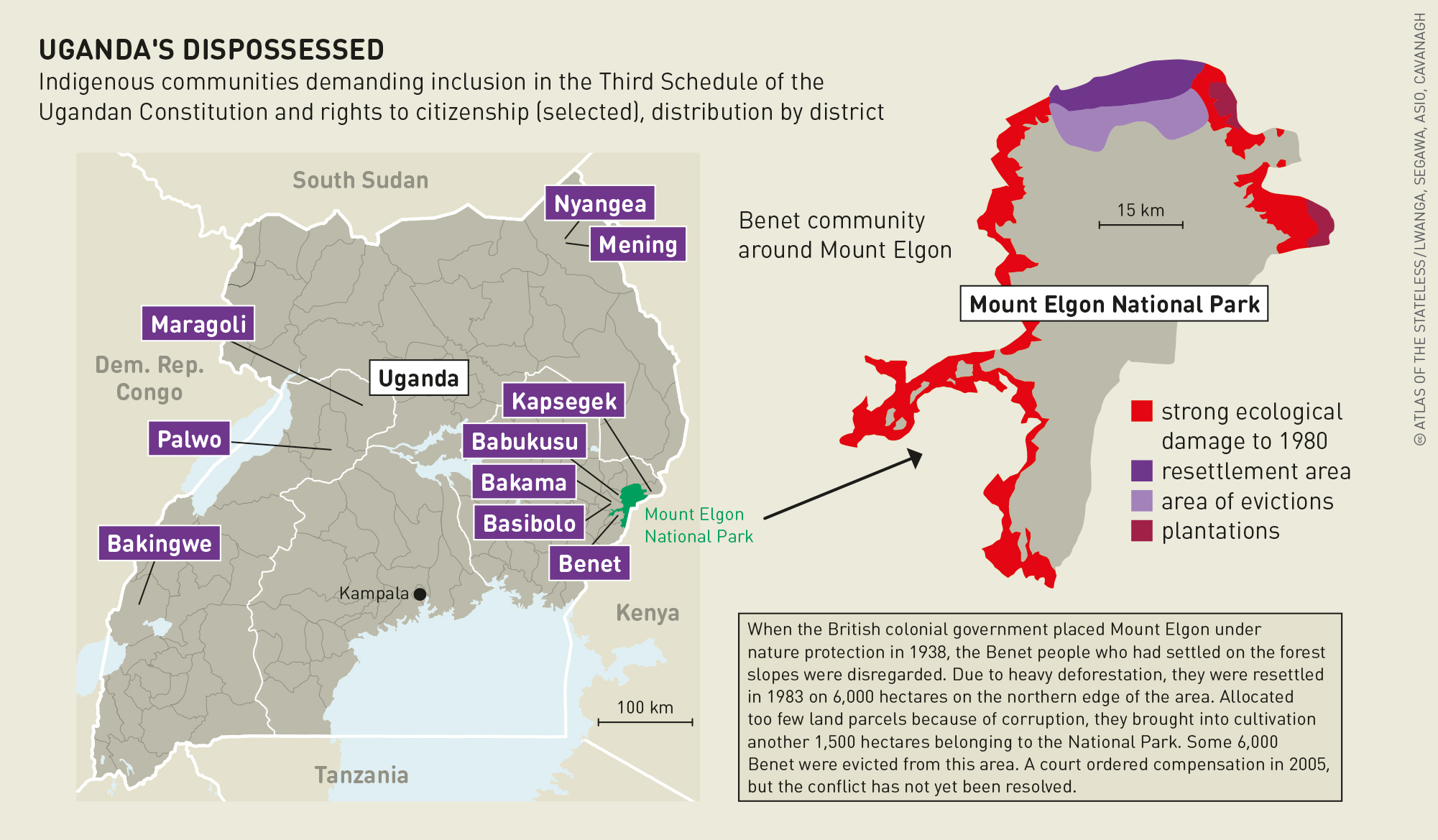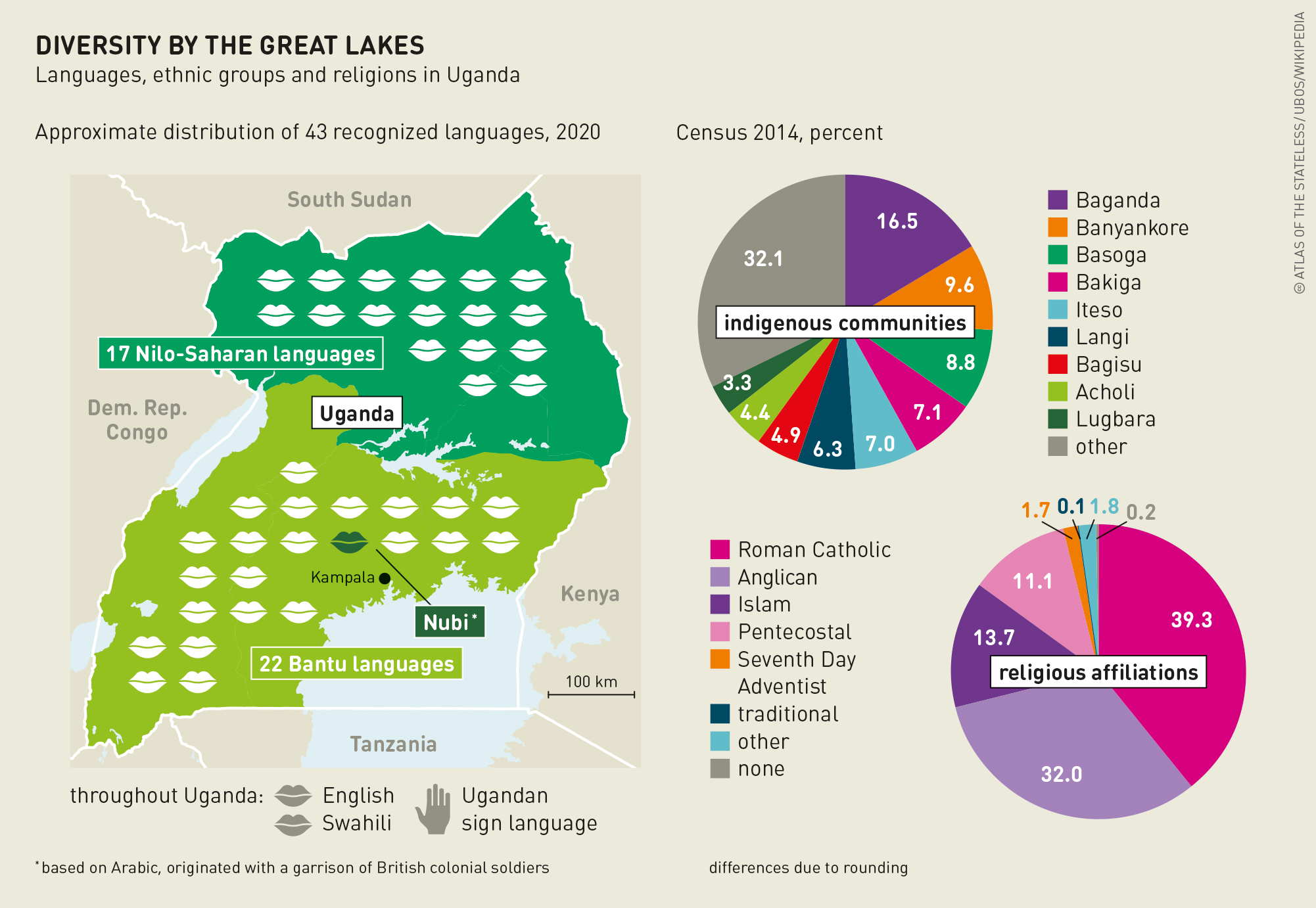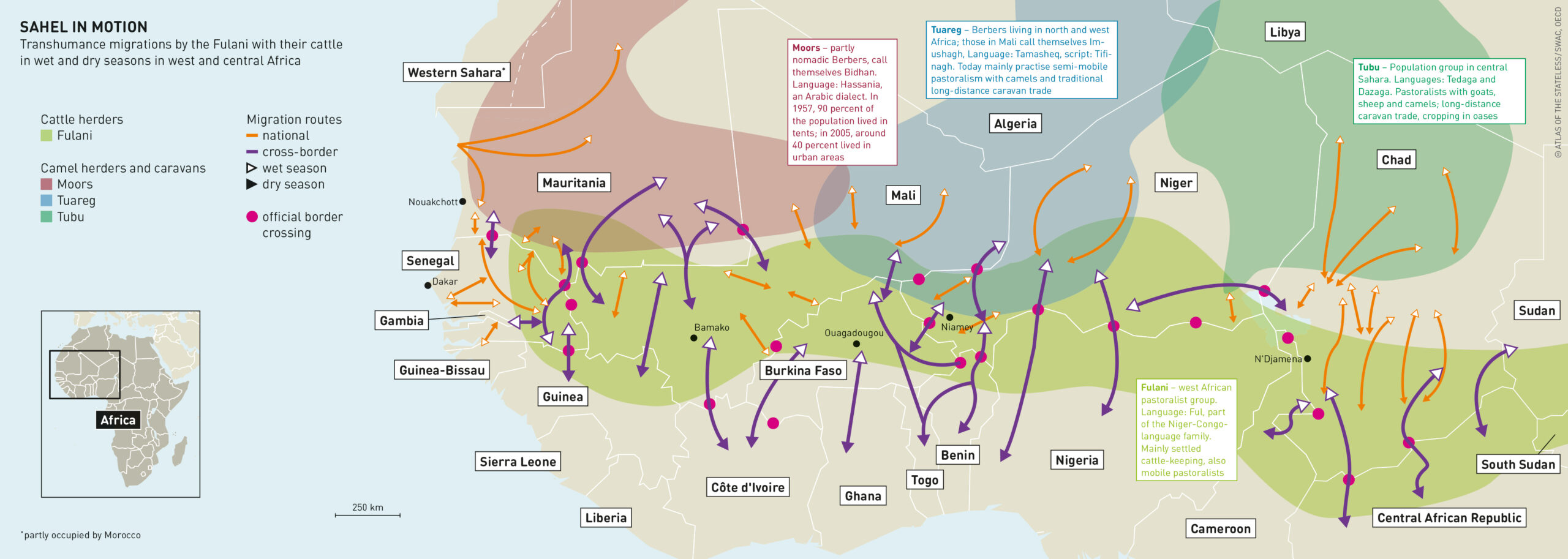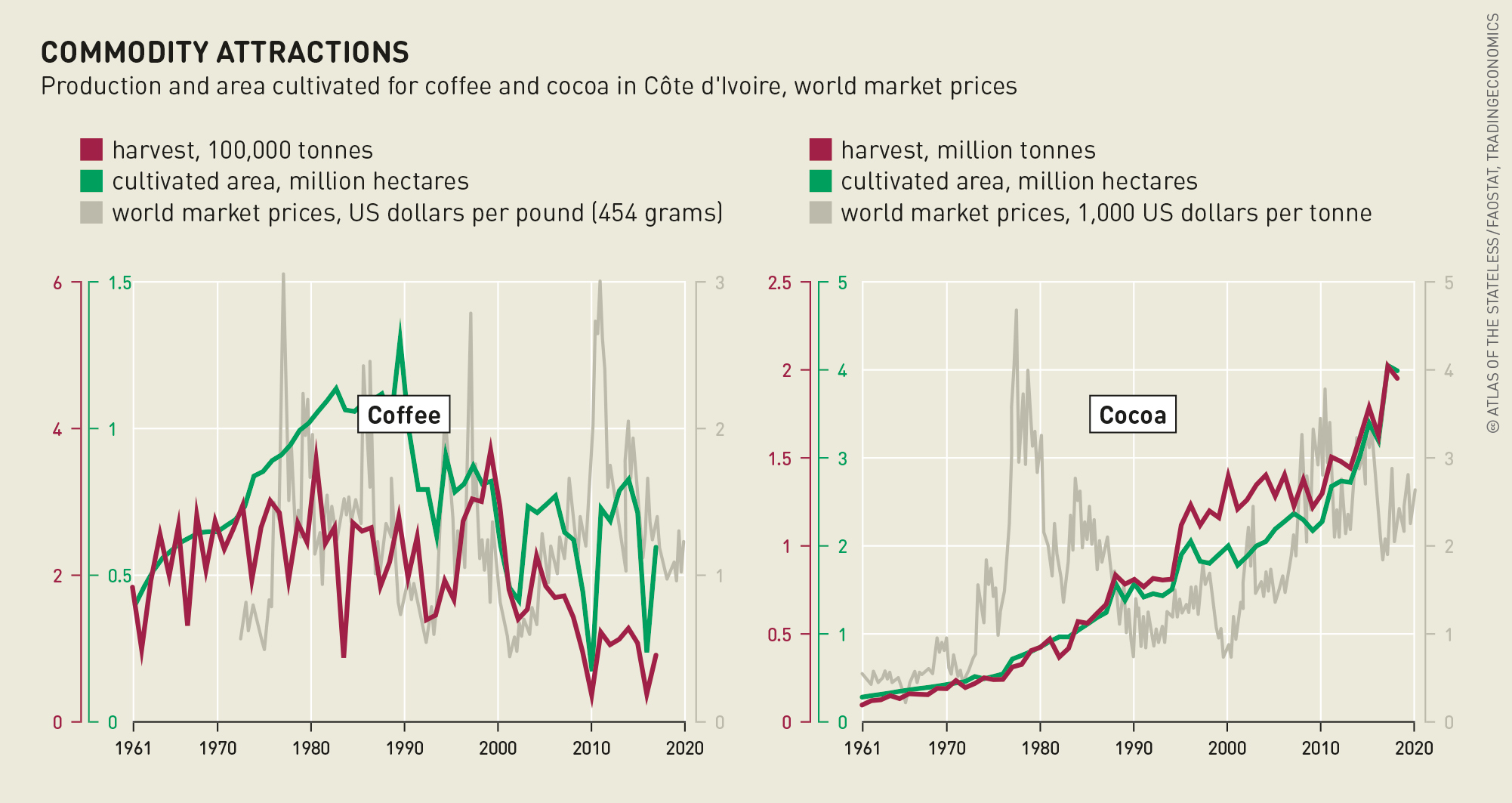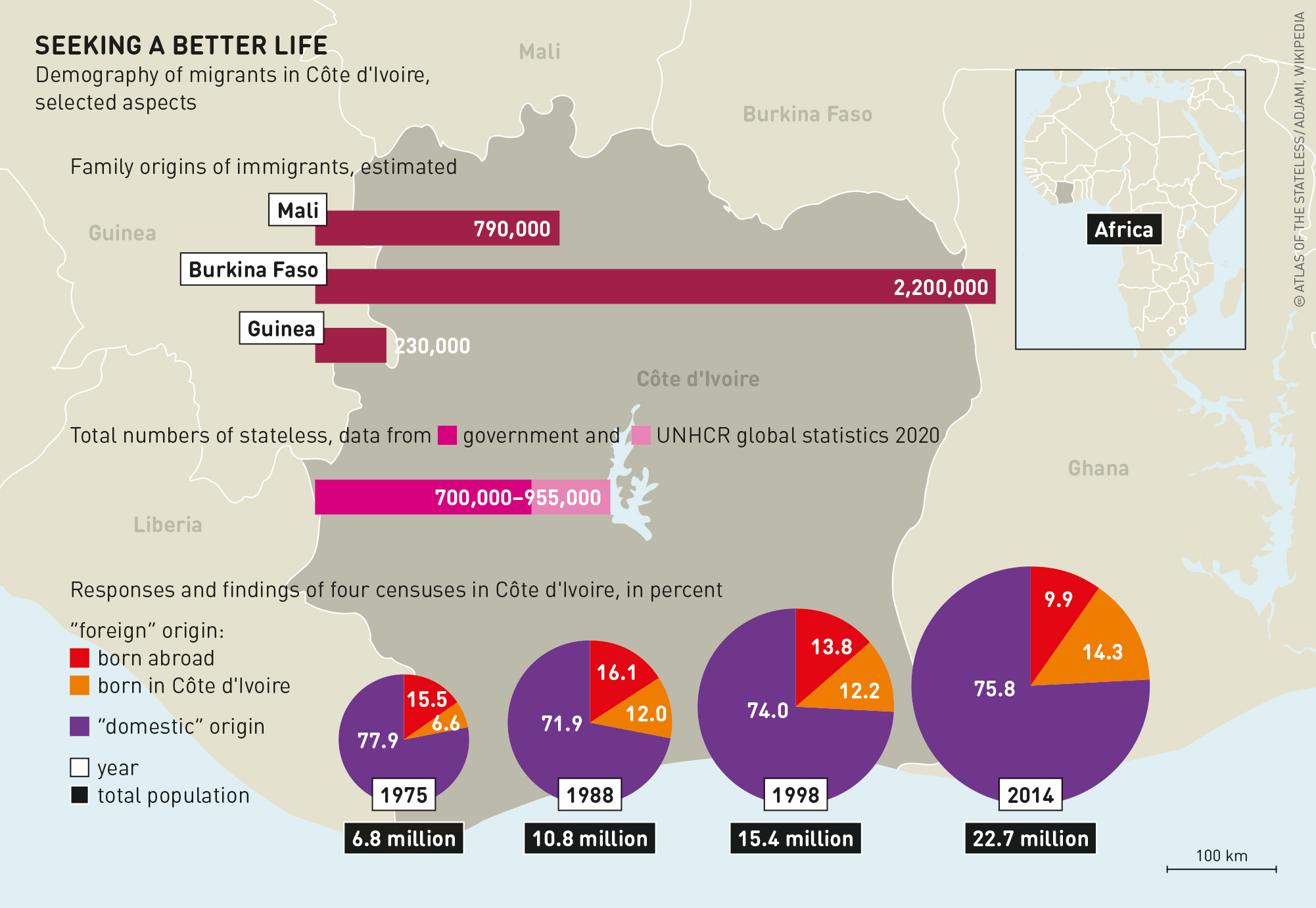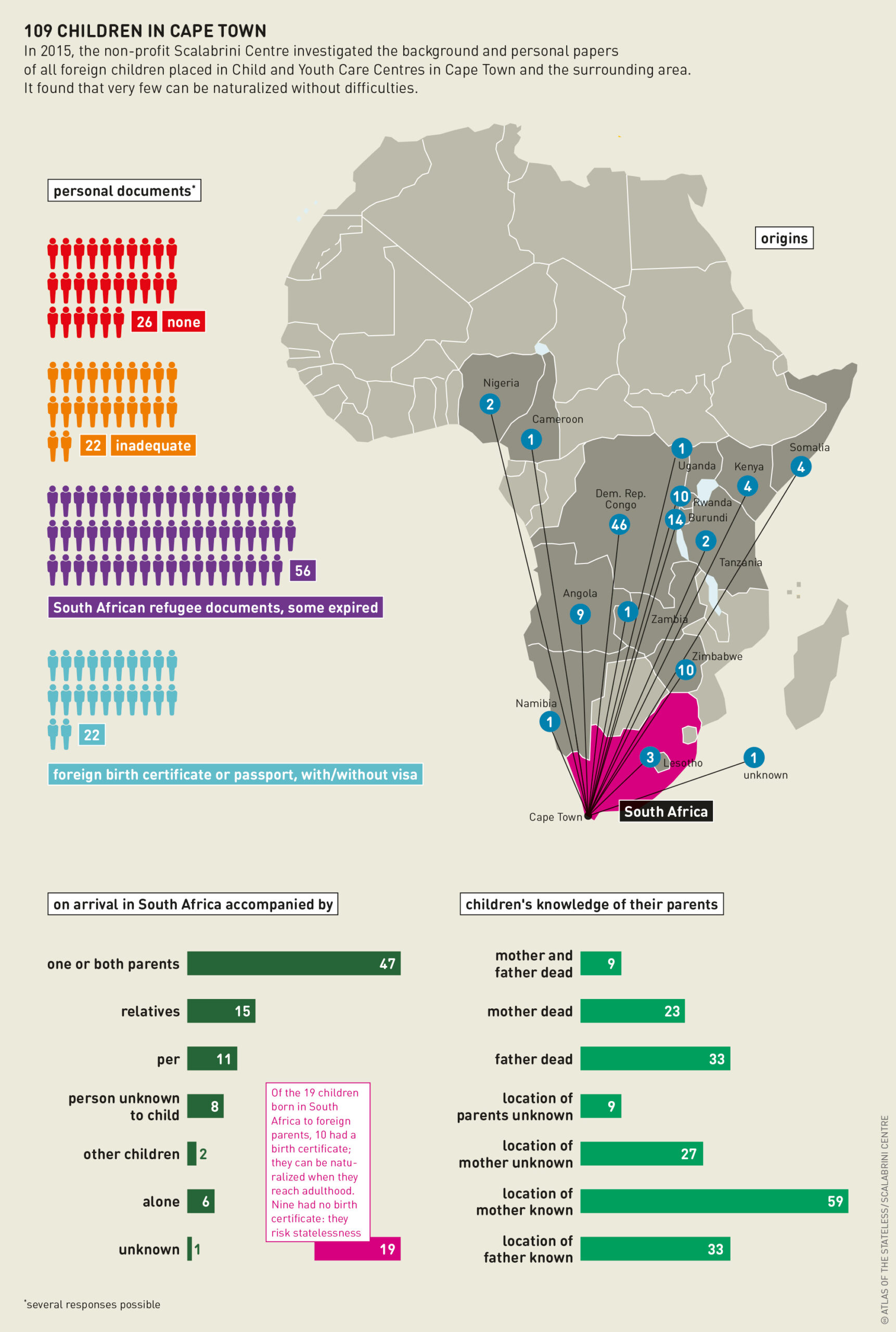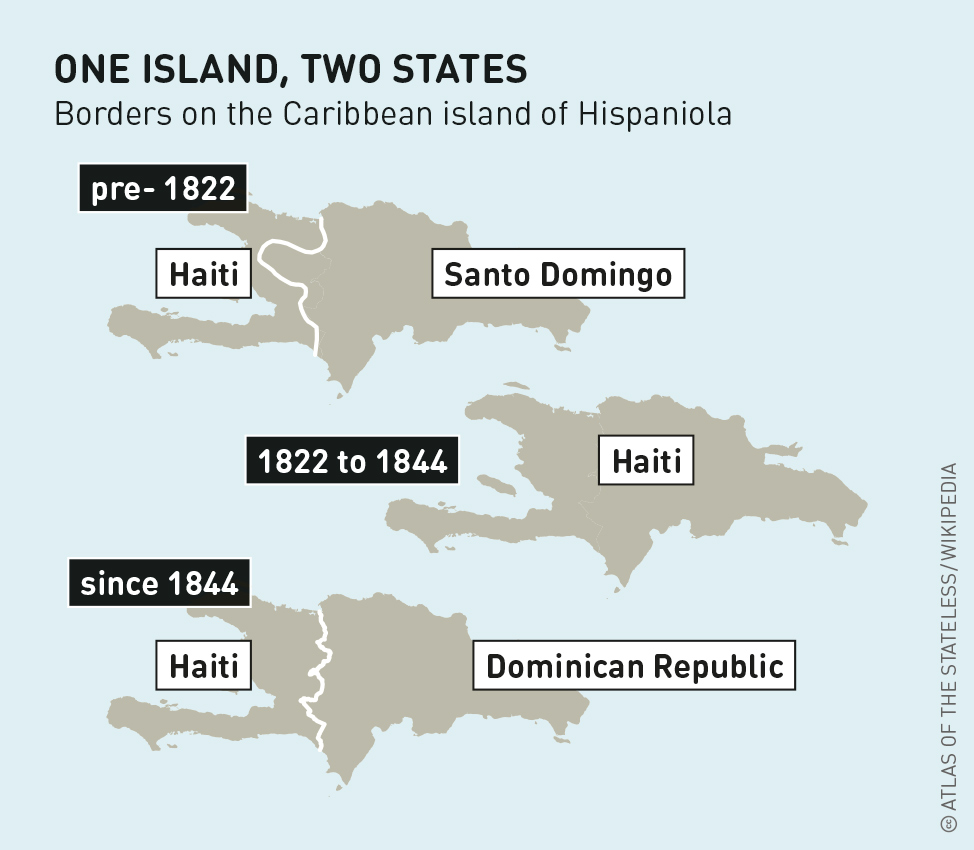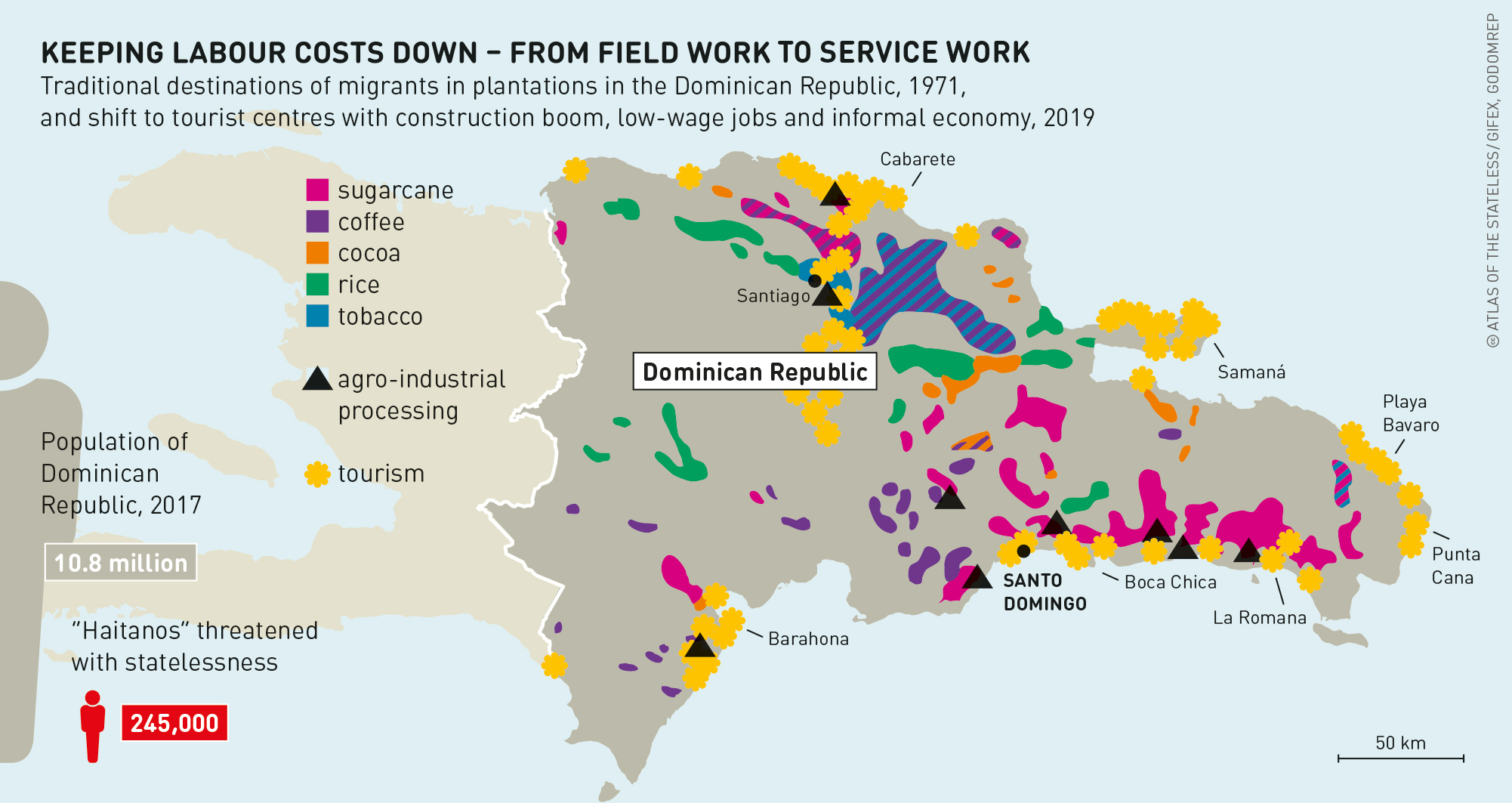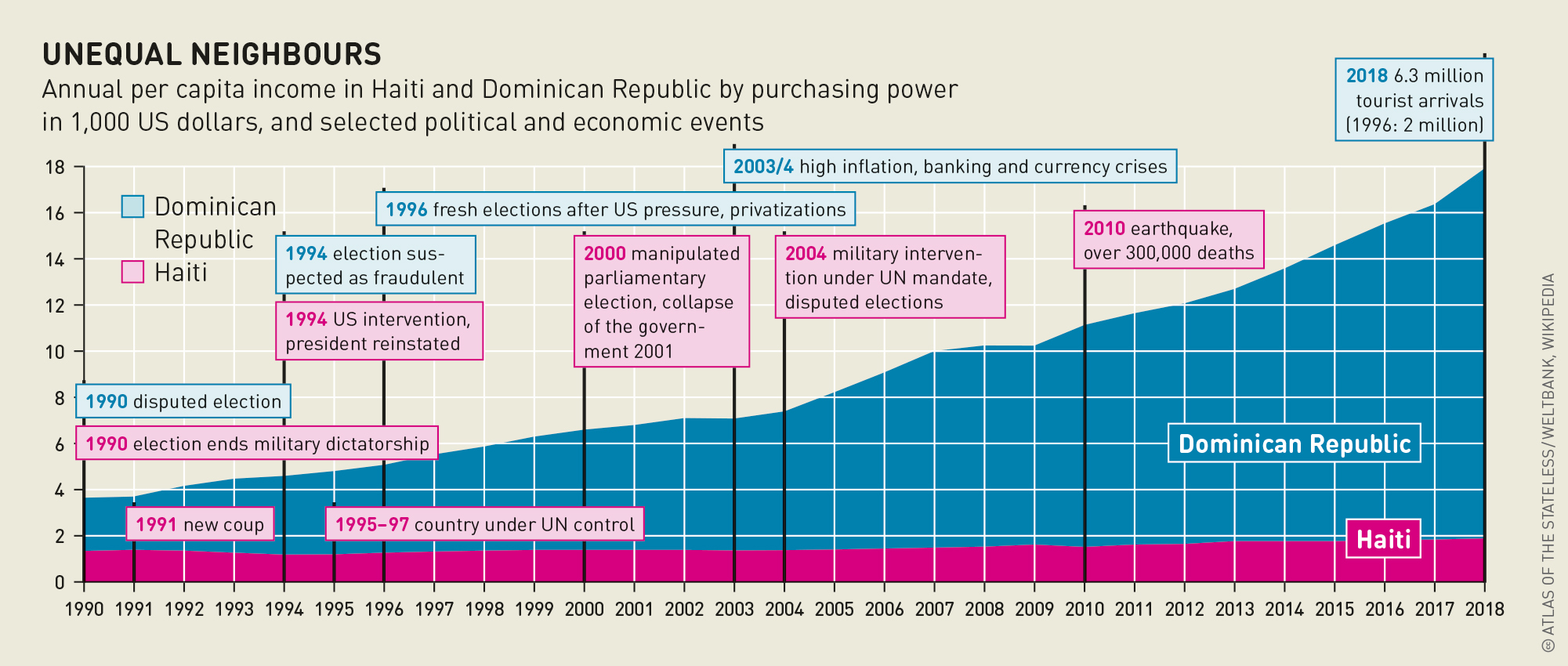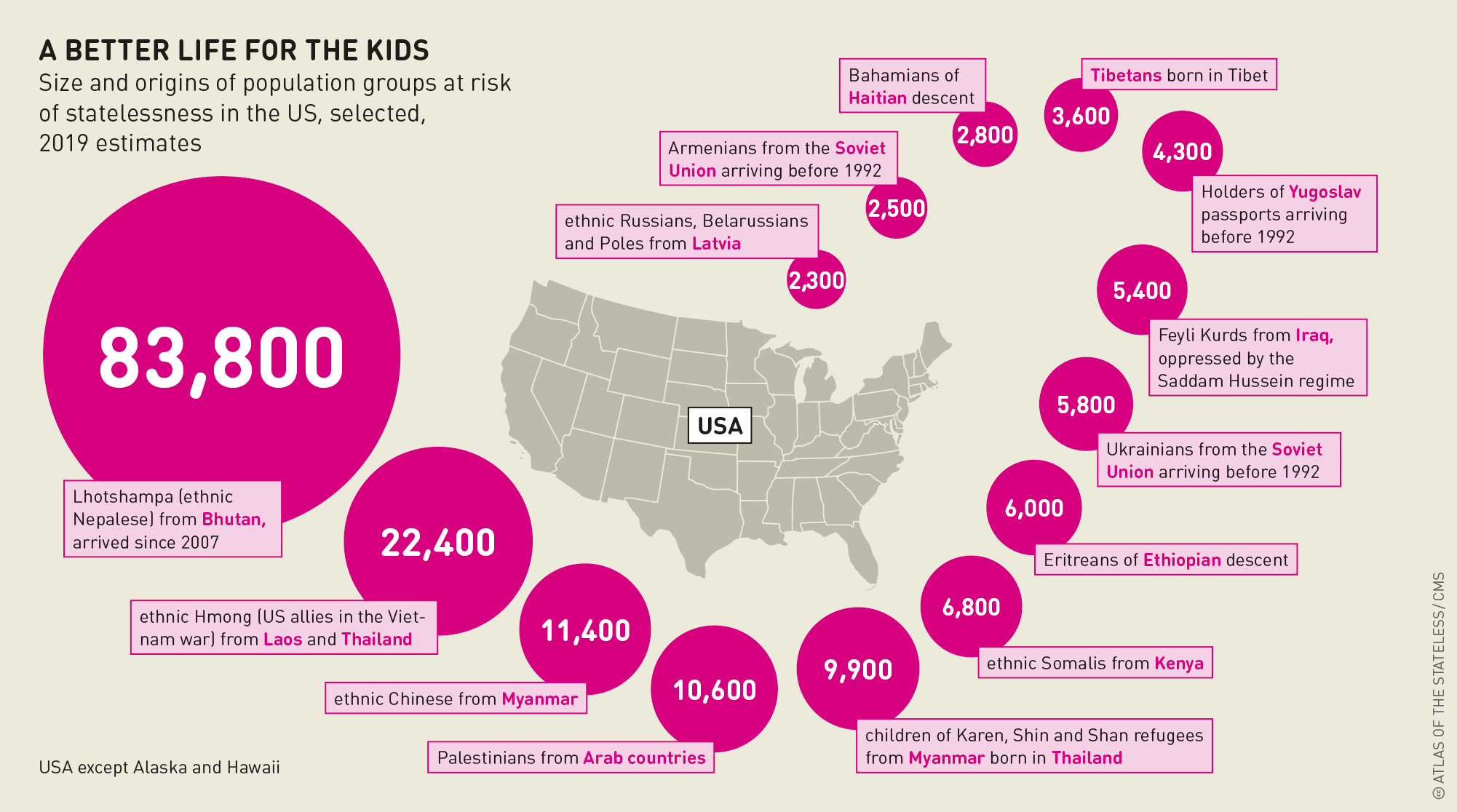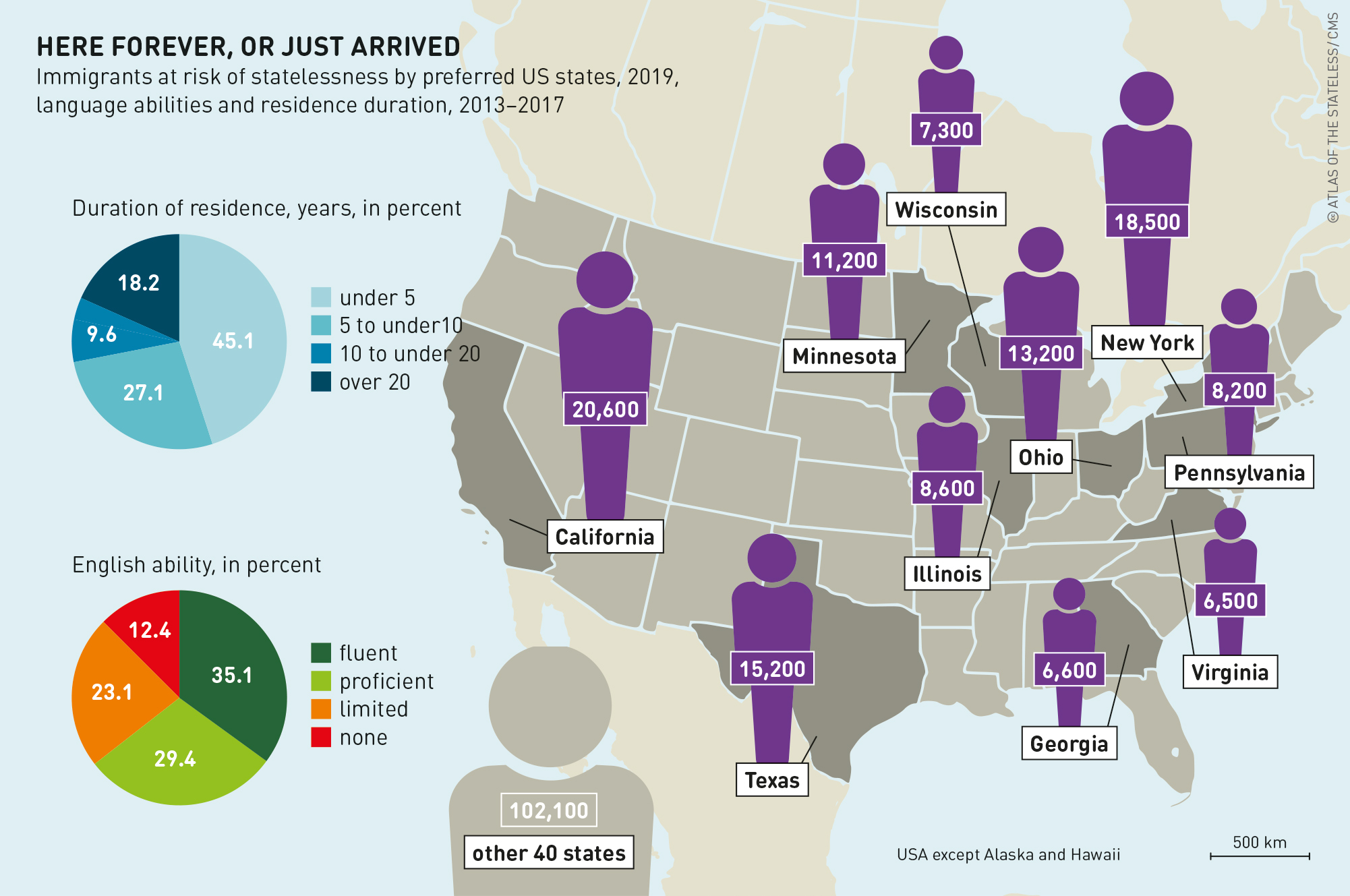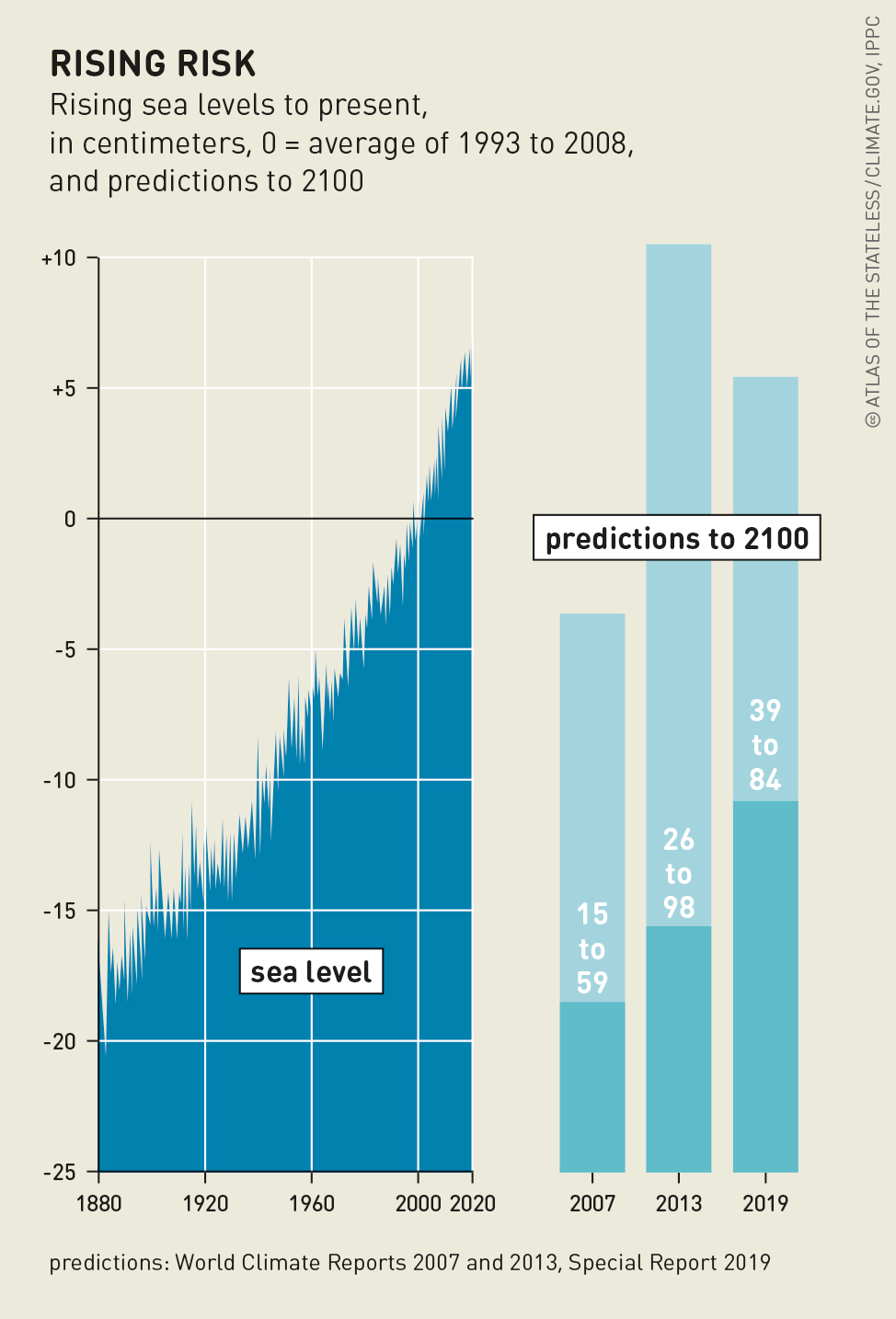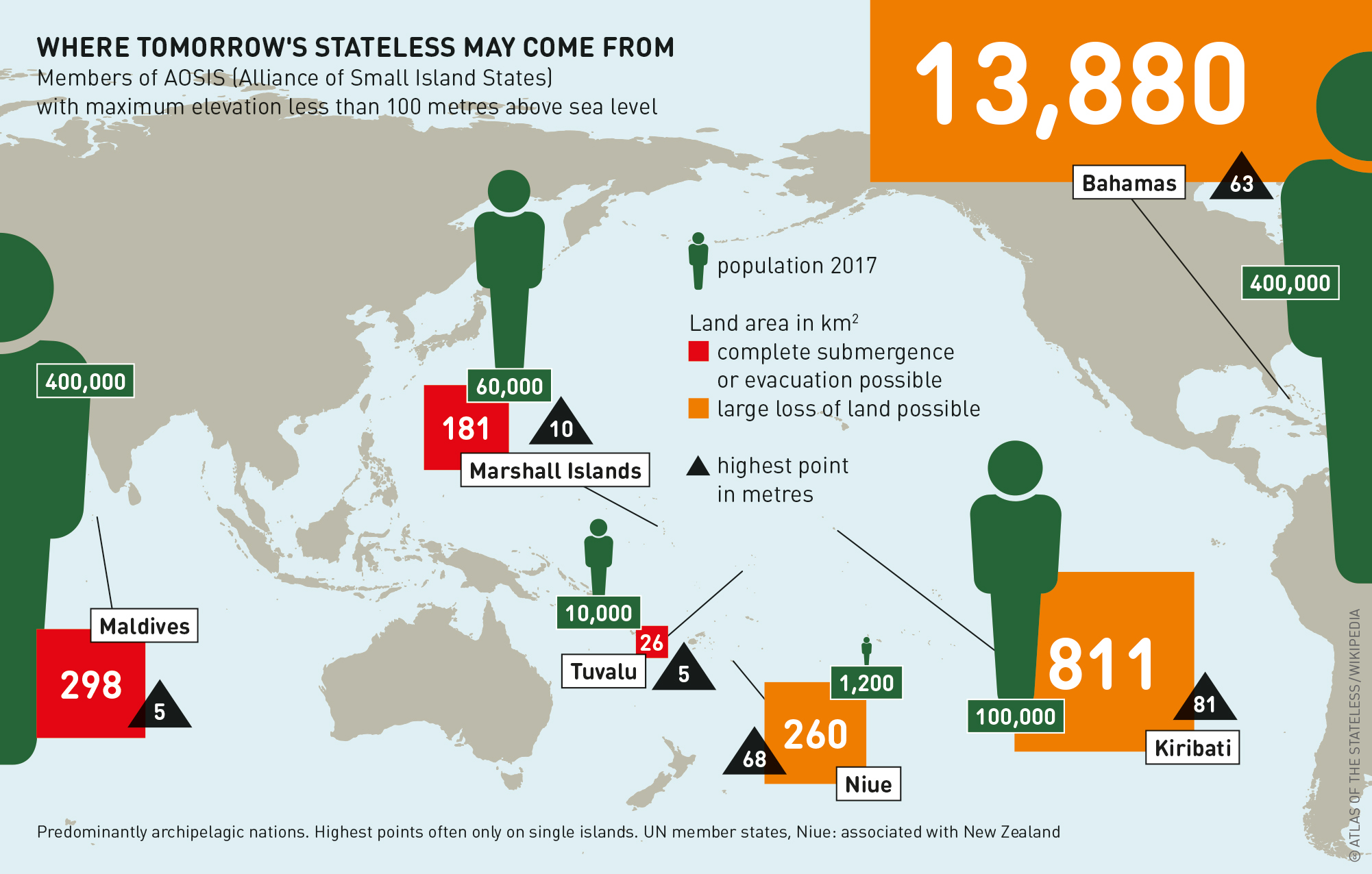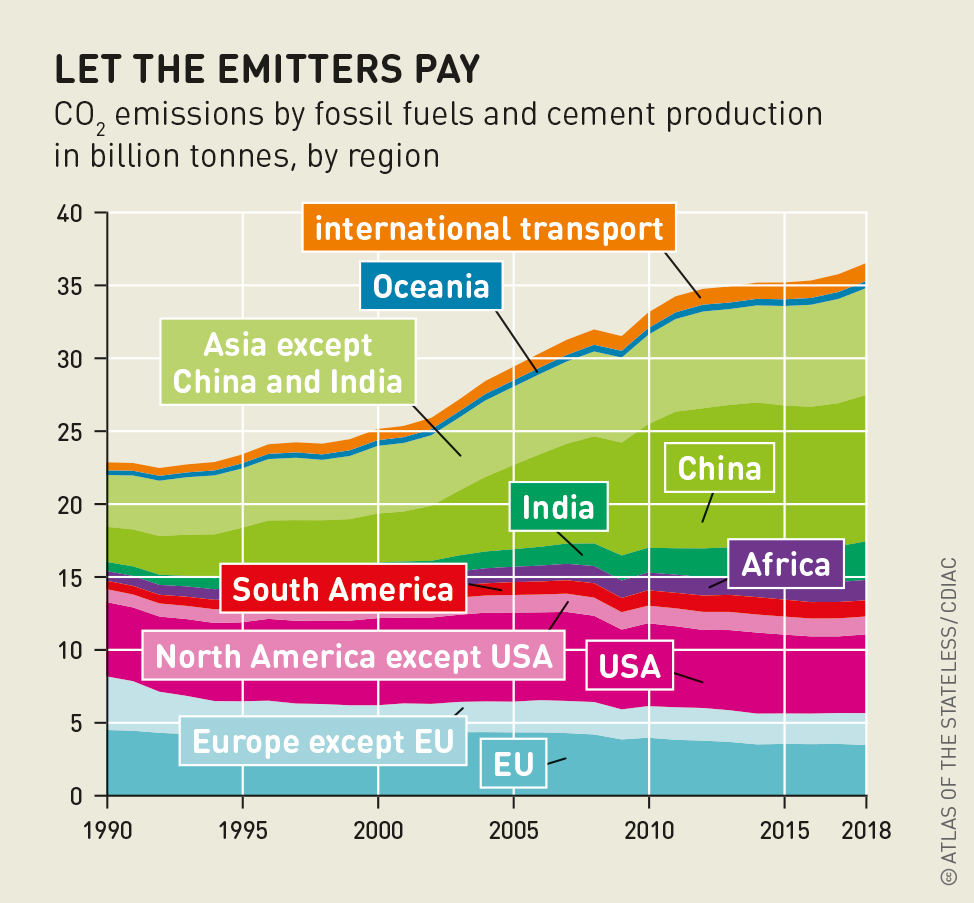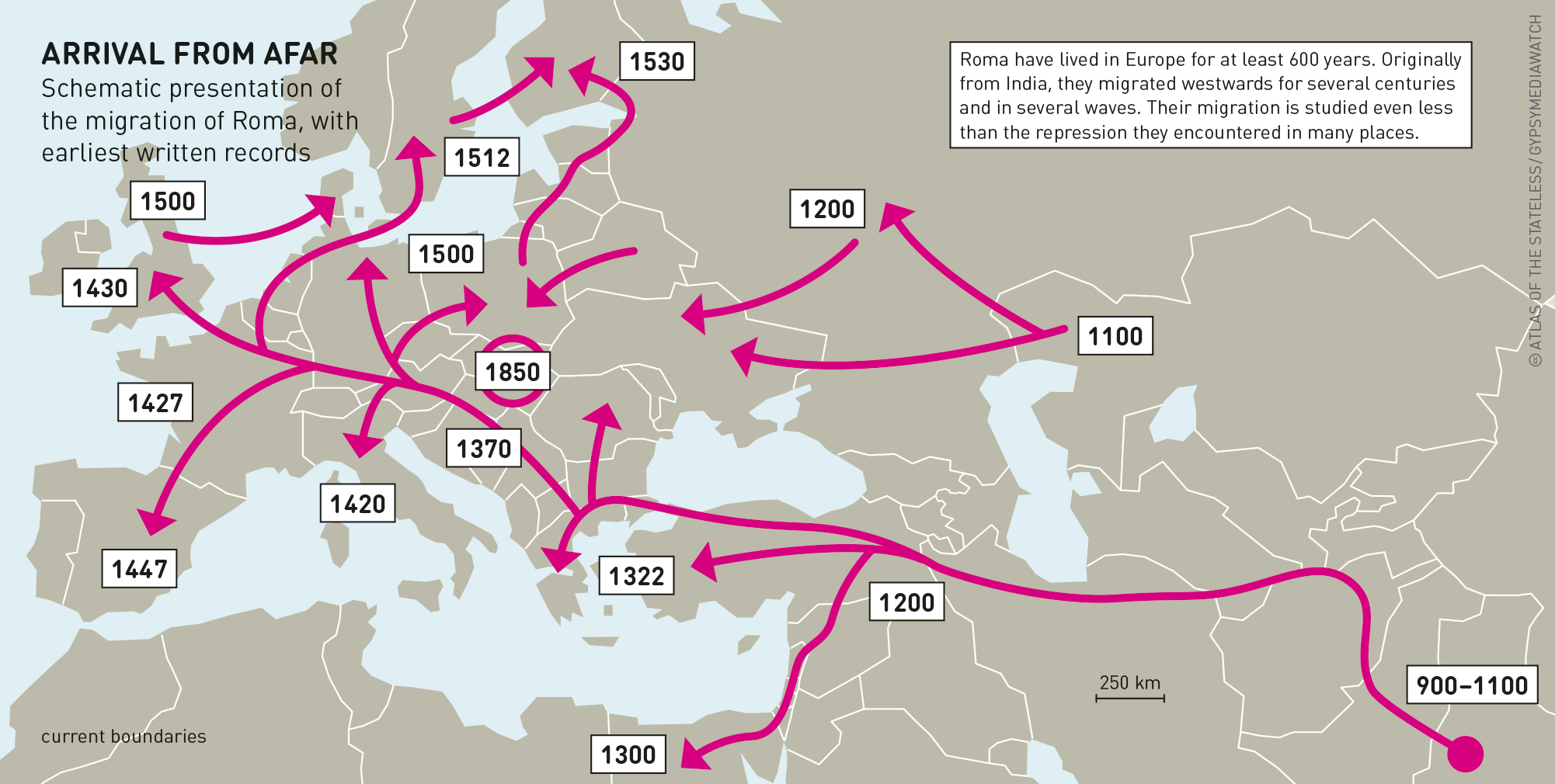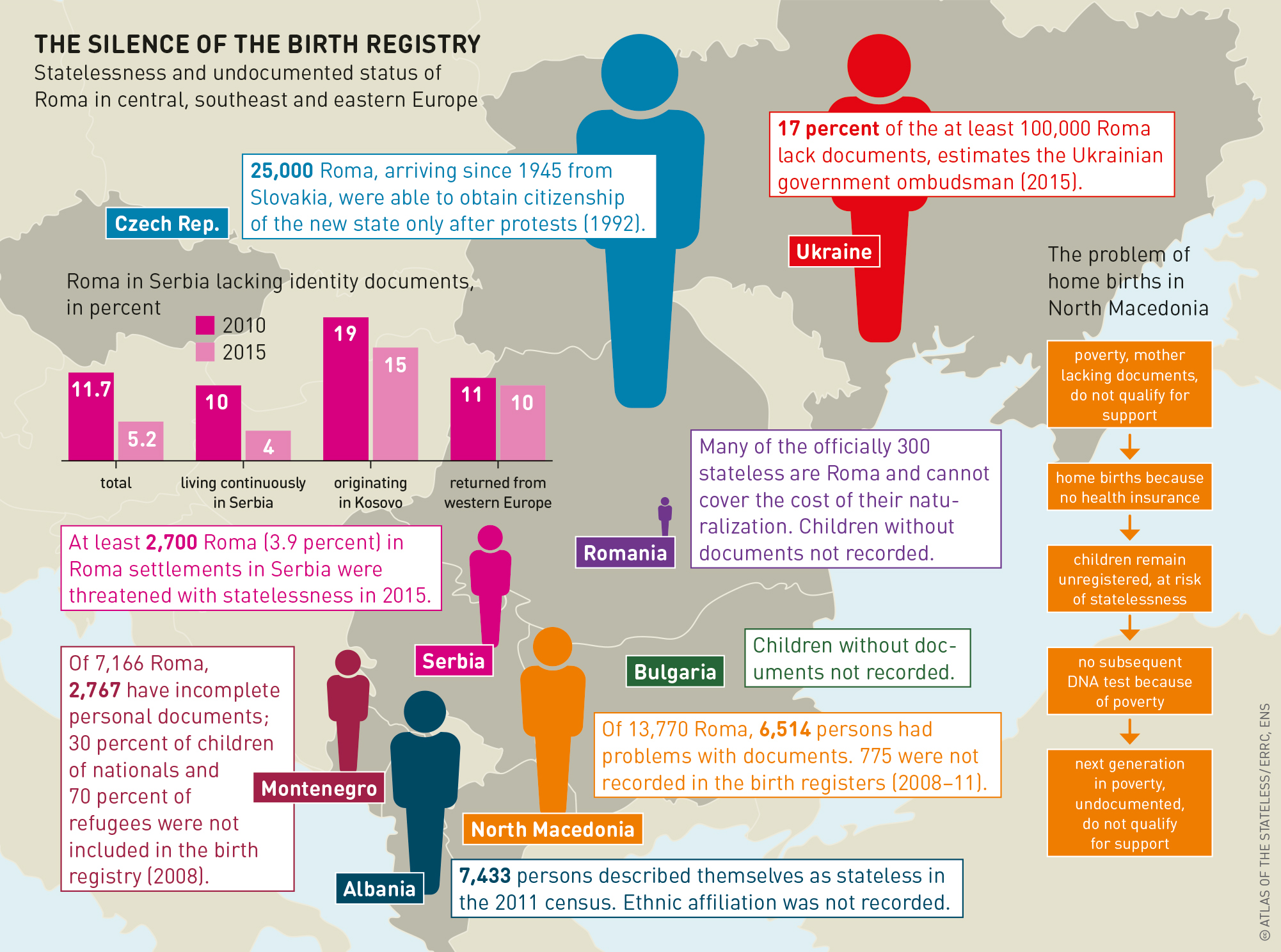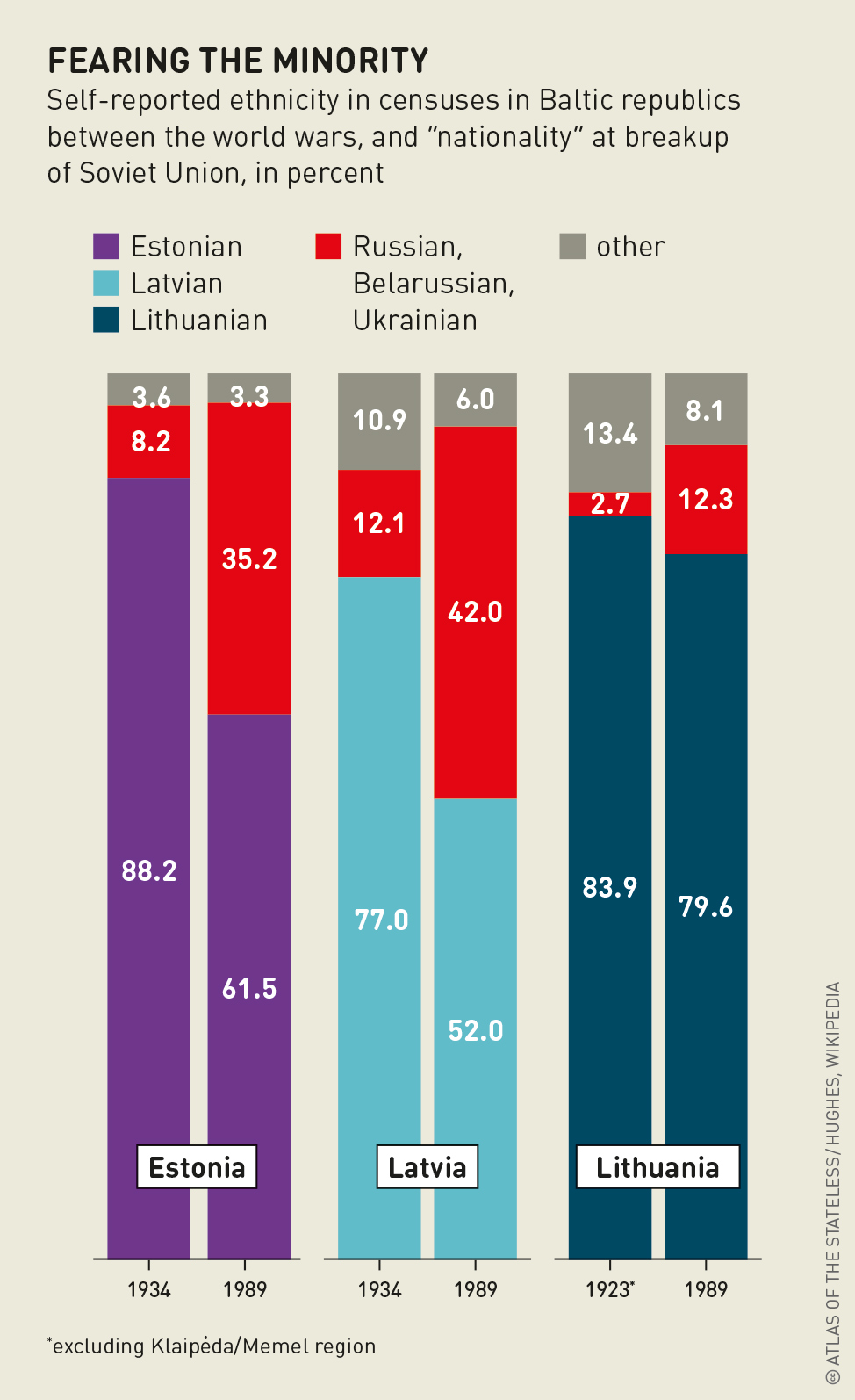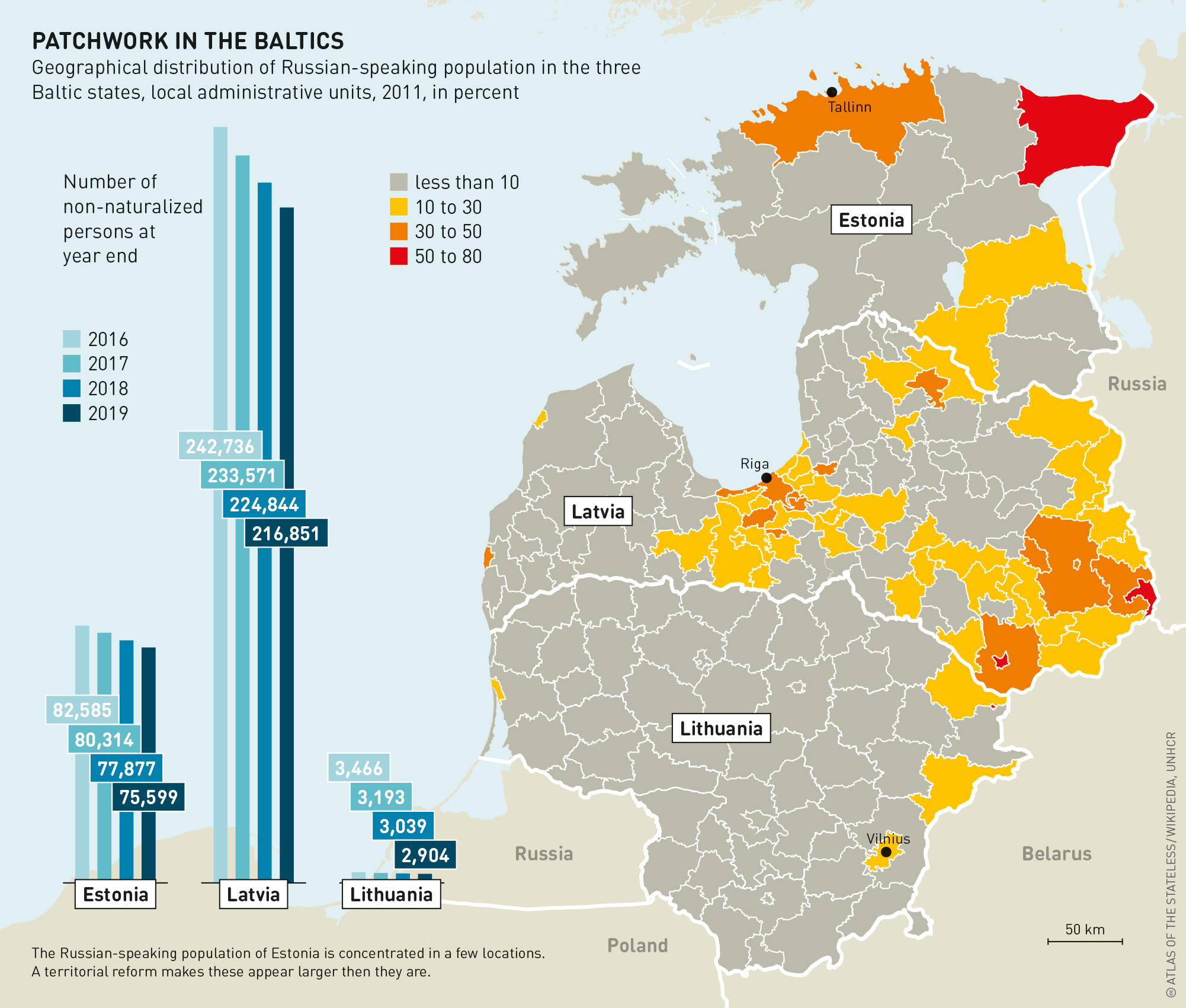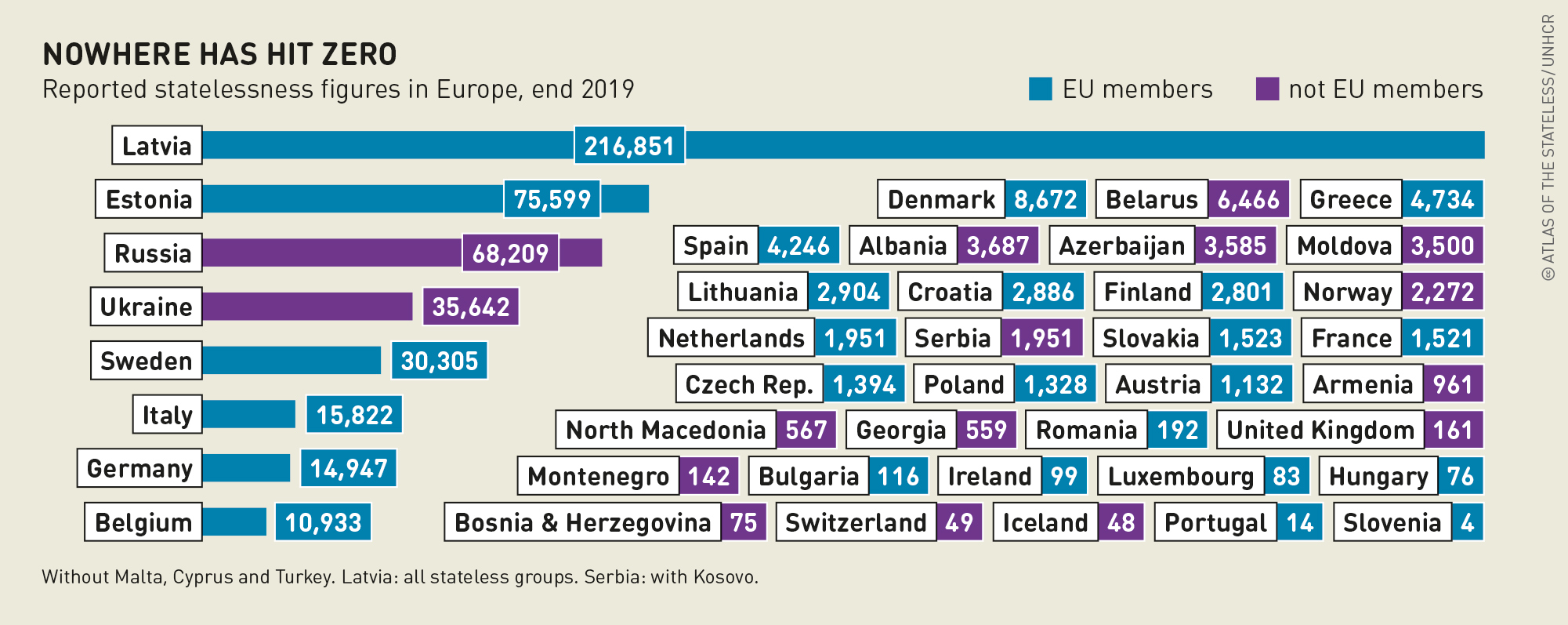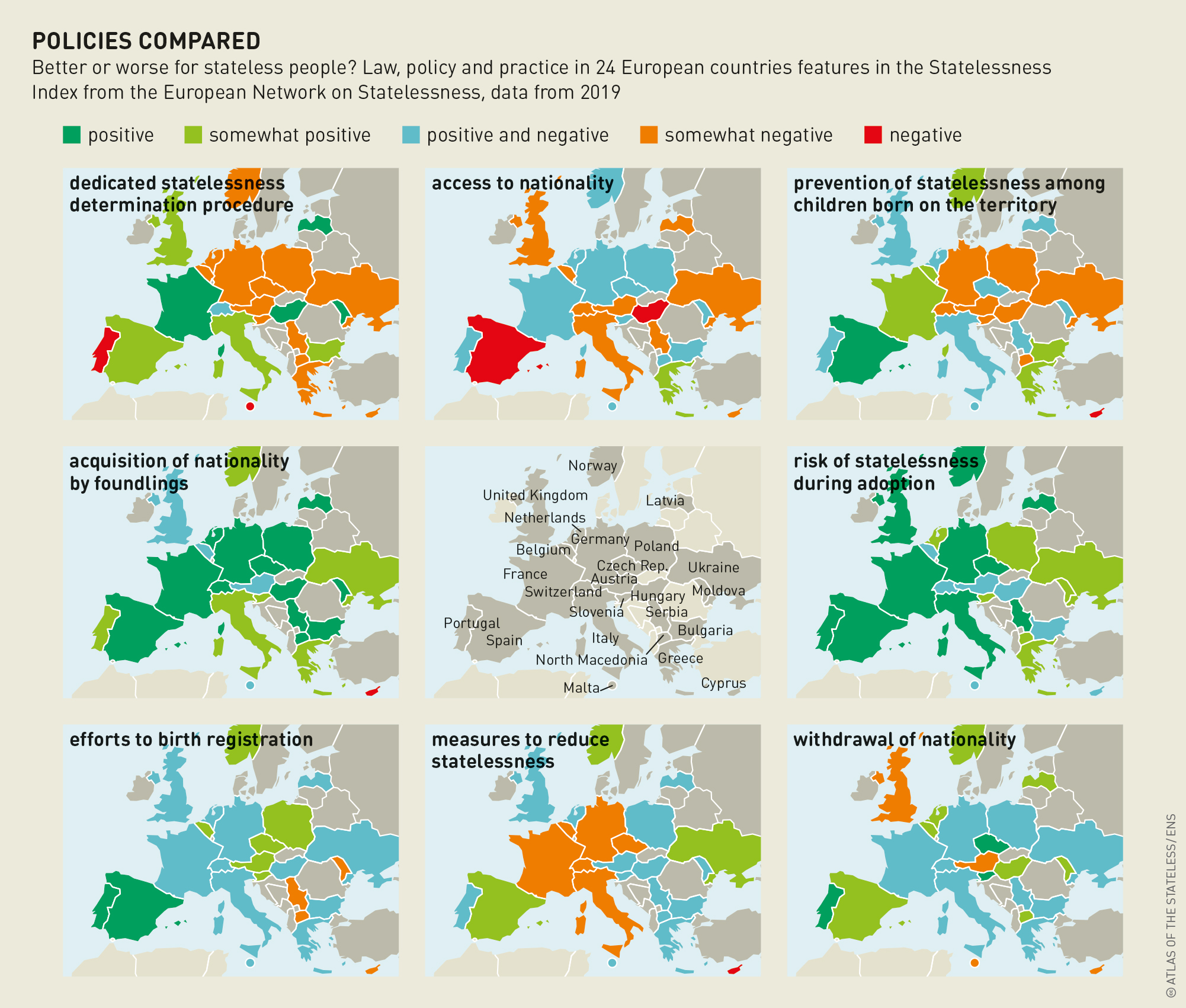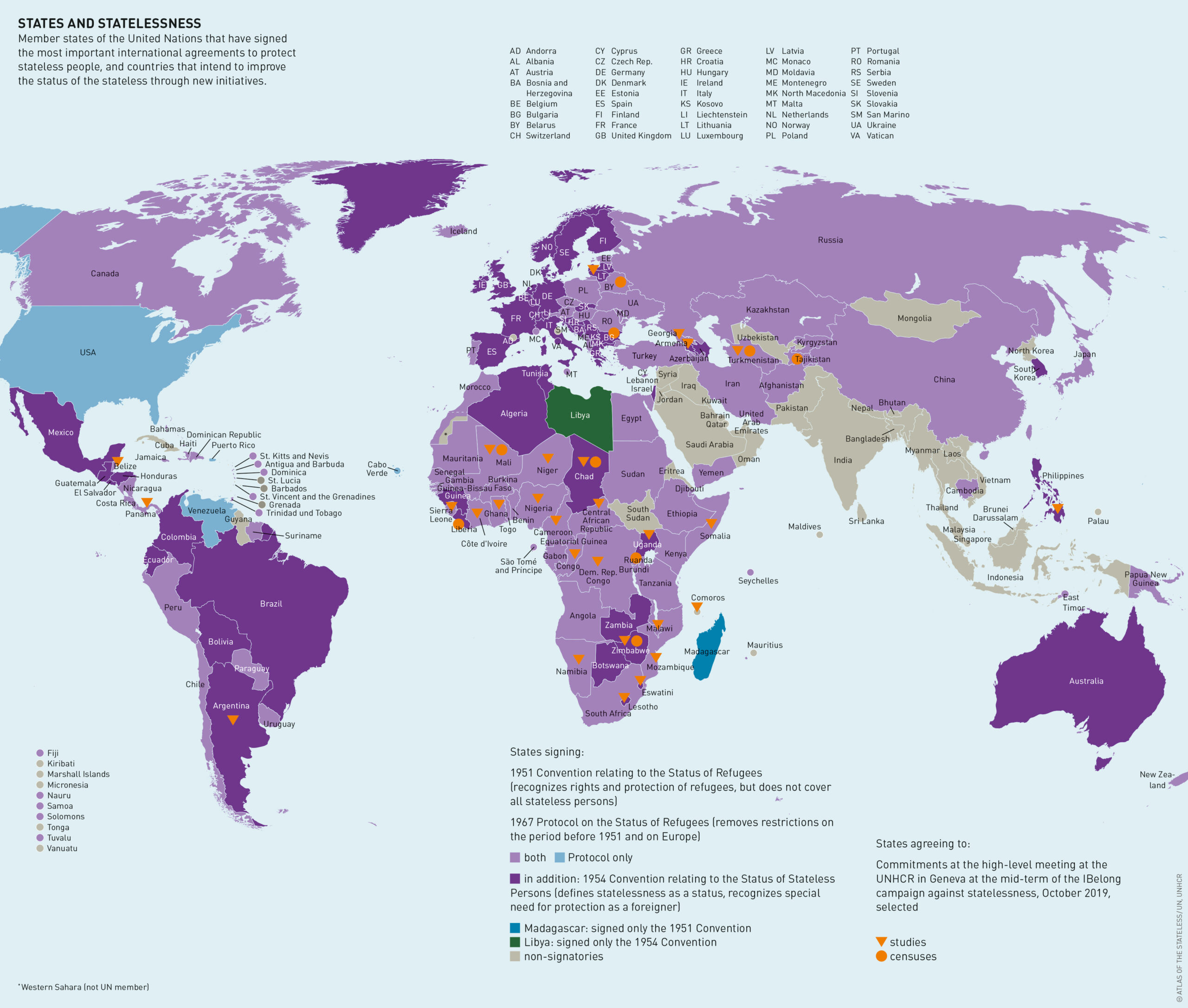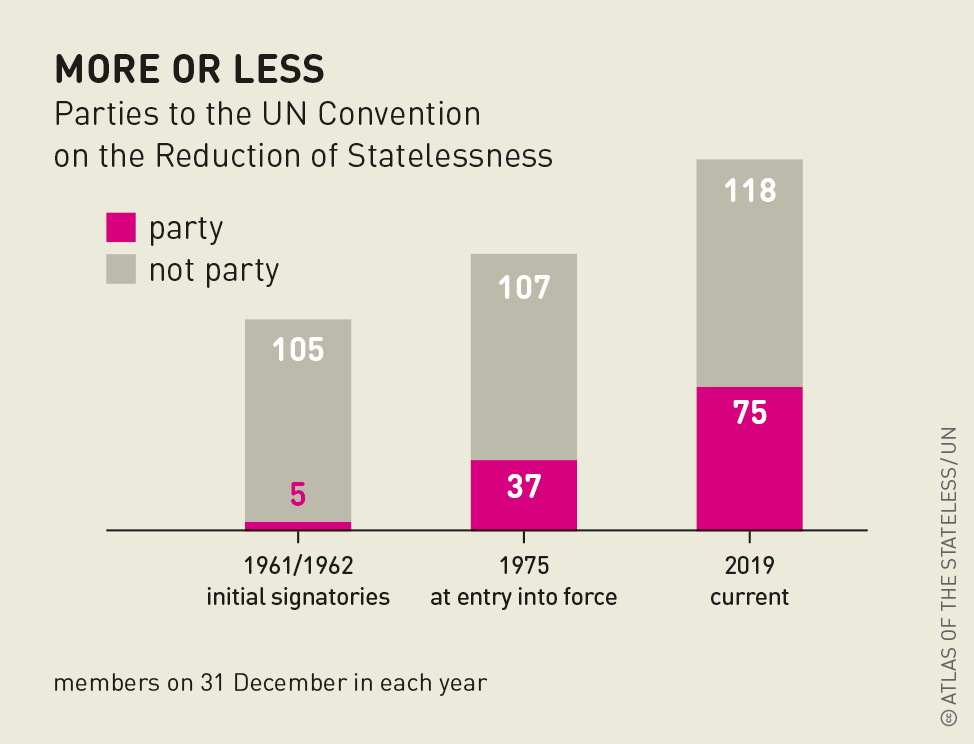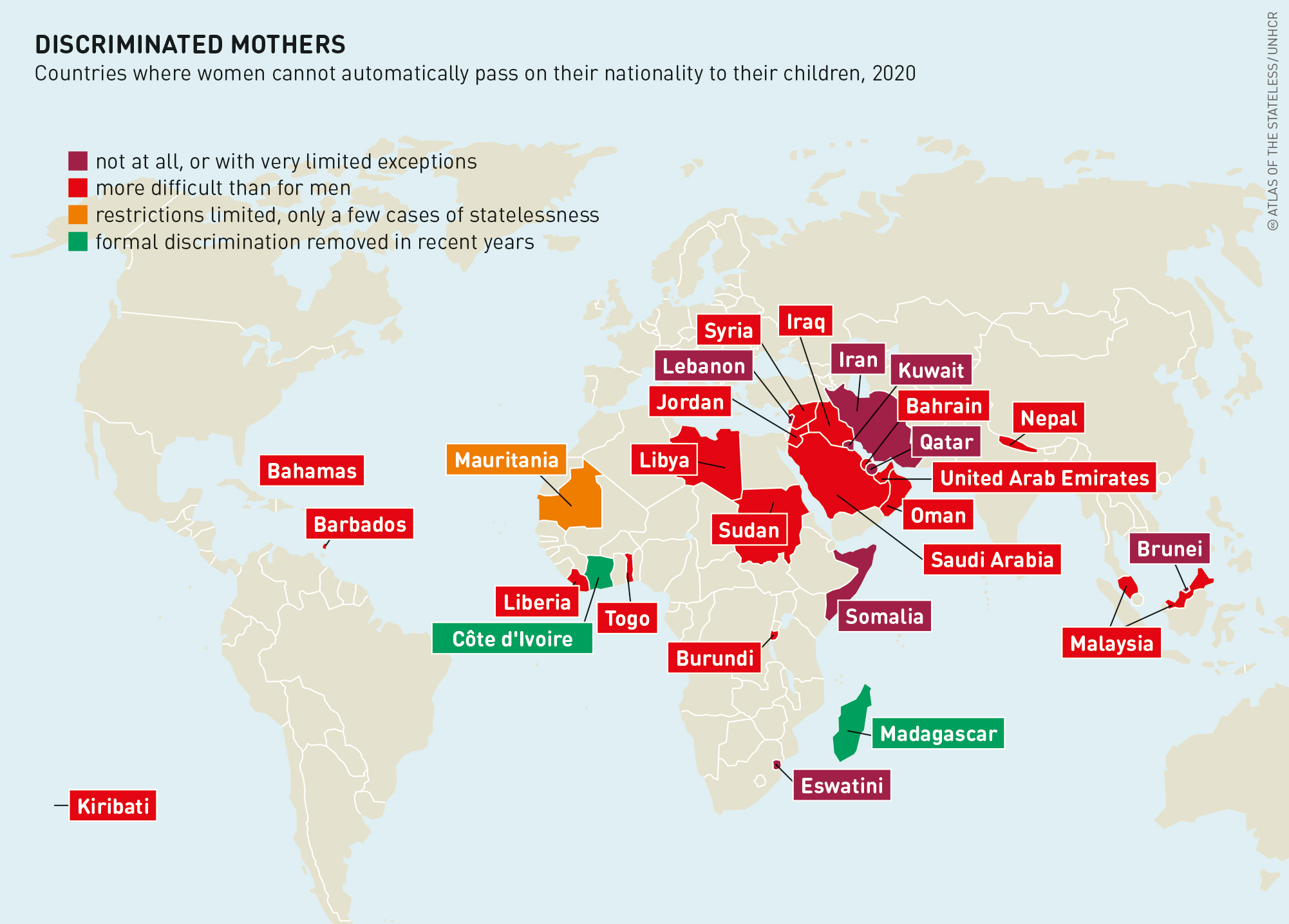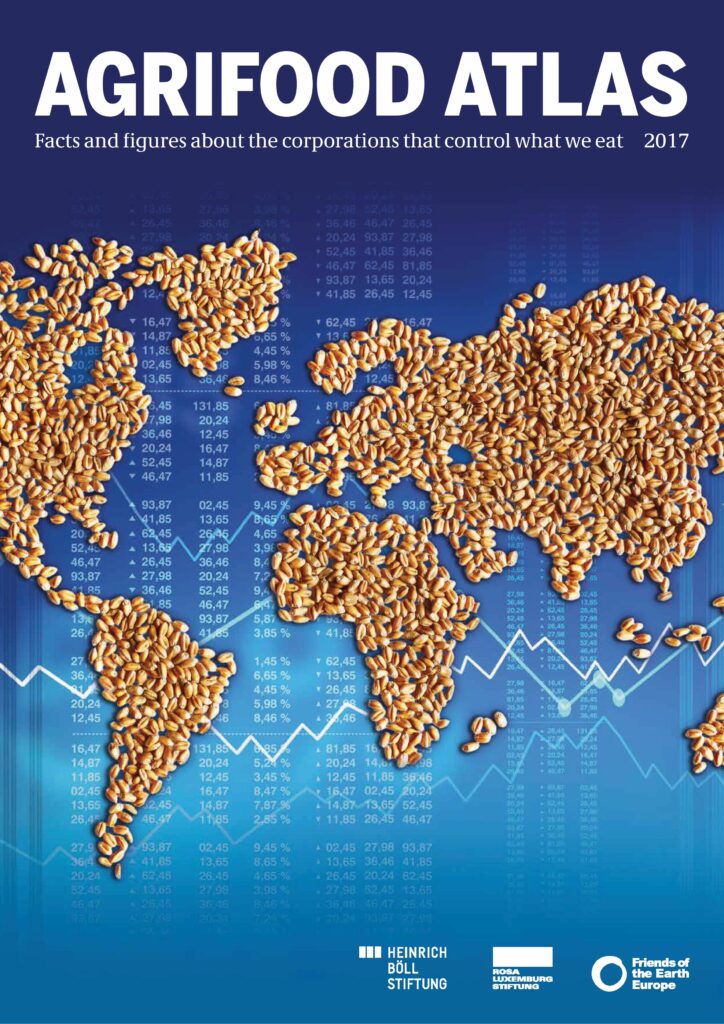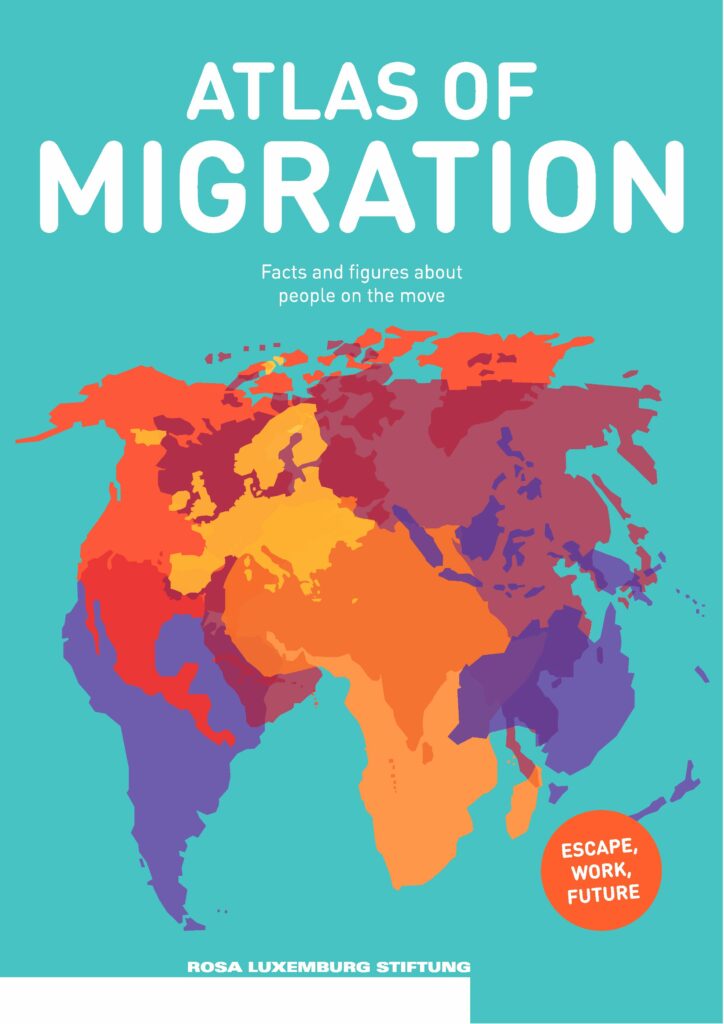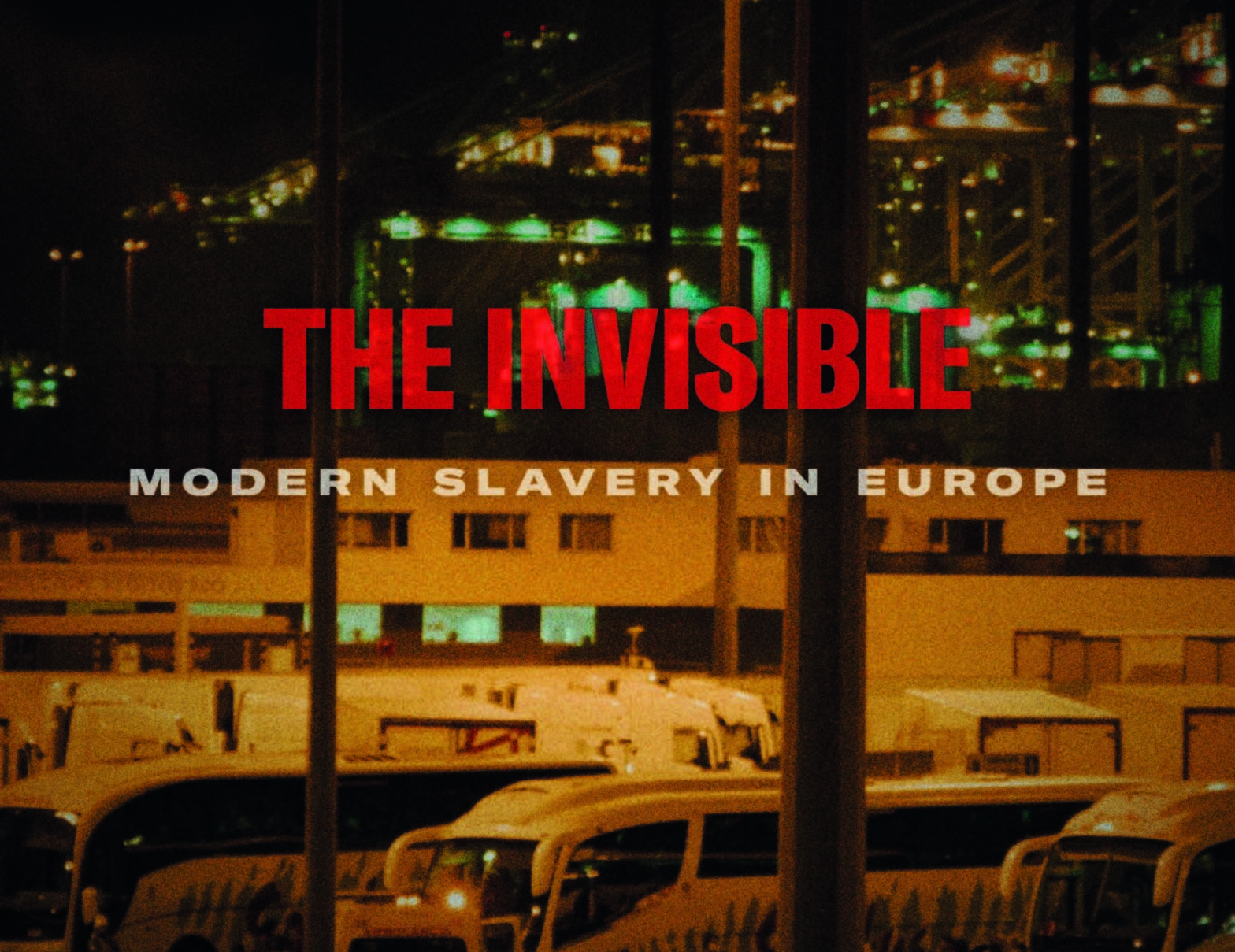Share Twitter Facebook Email Copy URL
Facts and figures about exclusion and displacement
Videos, Articles, Video Statements, Graphics
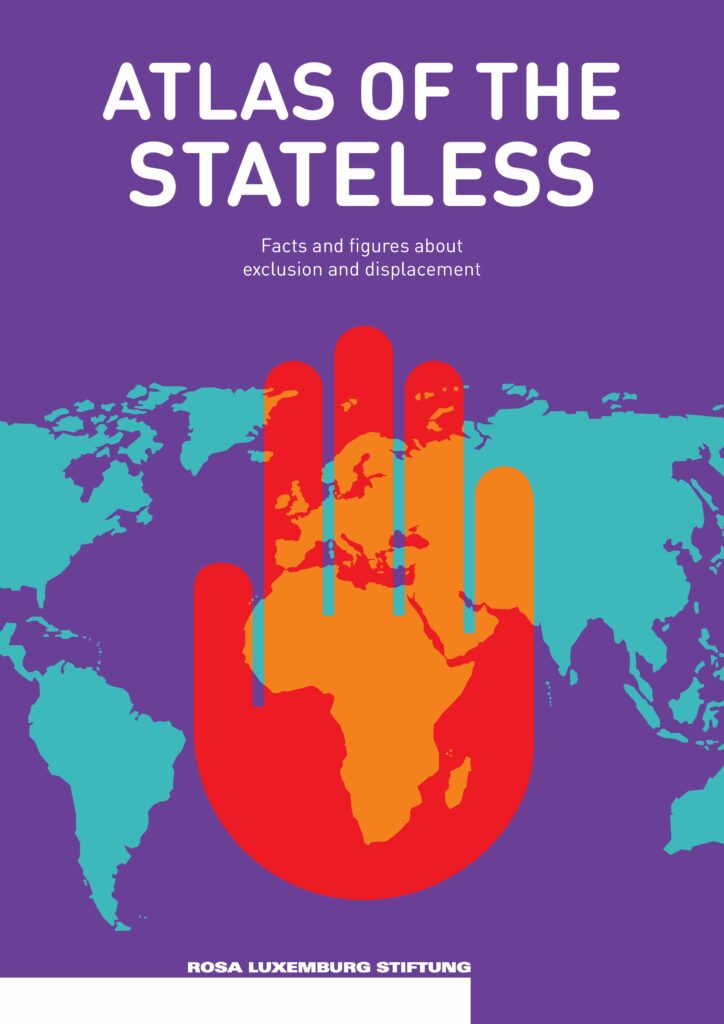
The Atlas of the Stateless provides information on the situation of stateless people worldwide in 53 graphics and 6 thematic articles as well as 19 country examples. You can download, order a print version (free of charge) or read online now!
Download the PDF or order your free print copy here:
$0.00Add to cart
The Atlas of the Stateless at a glance:
Interview with Eva Wuchold, Director of the Social Rights Programme of the Rosa-Luxemburg-Stiftung, in the November 2020 monthly newsletter of the Institute on Statelessness and Inclusion.
Think Tank Hub Geneva podcast Stateless: denied nationality with Eva Wuchold in November 2021.
Articles: Contributions from the Atlas of the Stateless
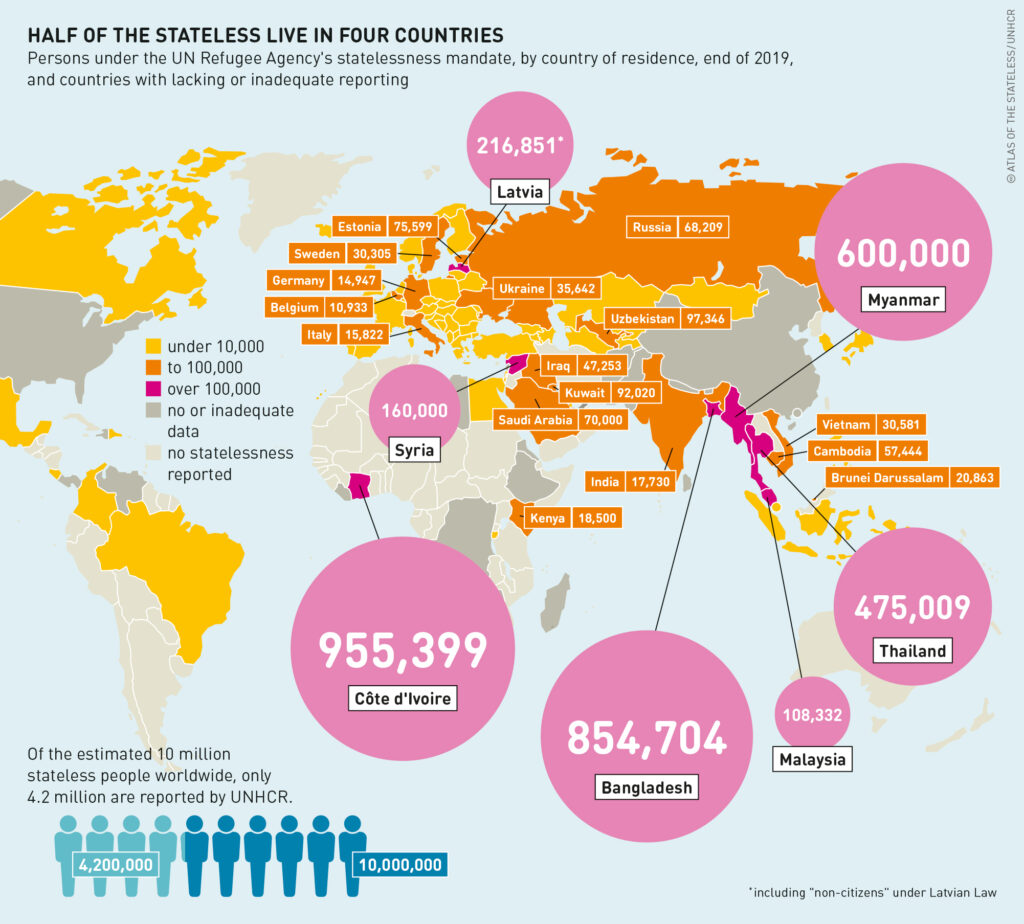
Rights: Citizens of nowhere
While most readers of this Atlas have the pieces of paper, booklets and plastic cards that permit them to get money from a cash machine, consult a doctor, travel, drive and vote, that is not the case for stateless persons and other marginalized groups.
By Kim Weidenberg
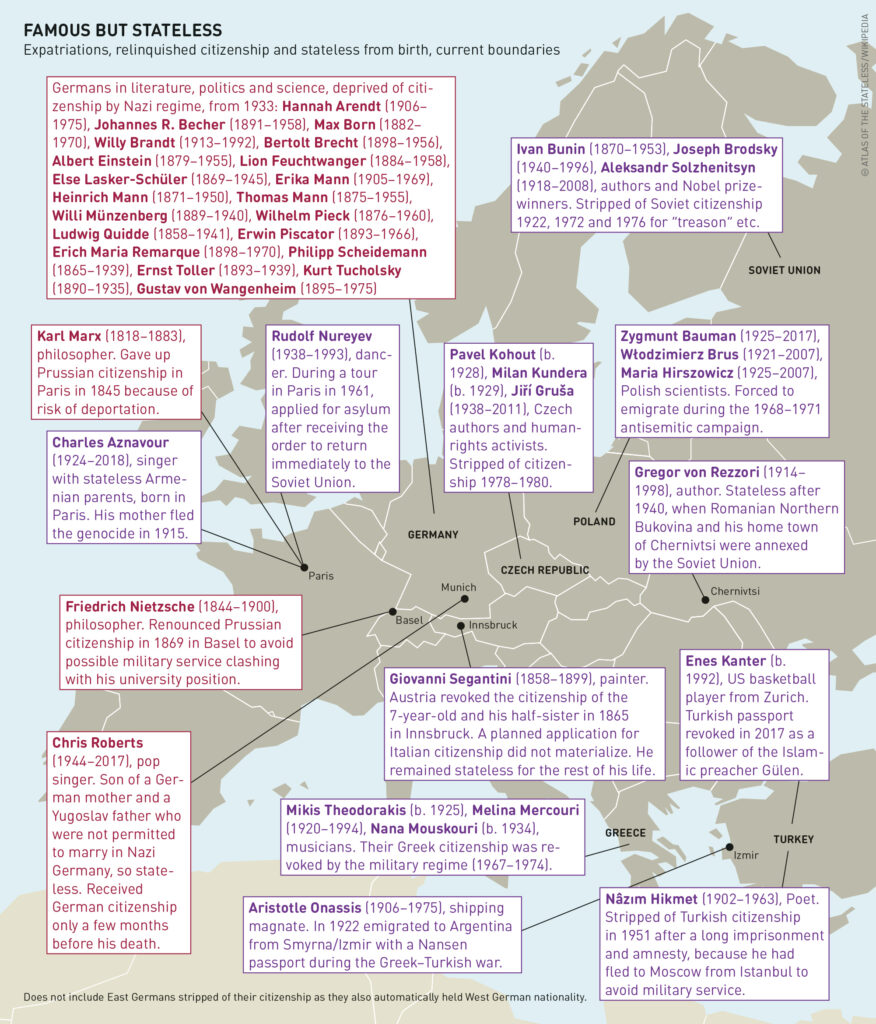
History: Weapons of mass discrimination
The emergence of nation-states in the nineteenth century led to the practice of denying citizenship to people living in those states. The First World War saw the start of actively depriving nationals of their citizenship. This was used both to punish individuals and to repress groups. The Nazis employed it as part of the Holocaust.
By Dietmar Bartz
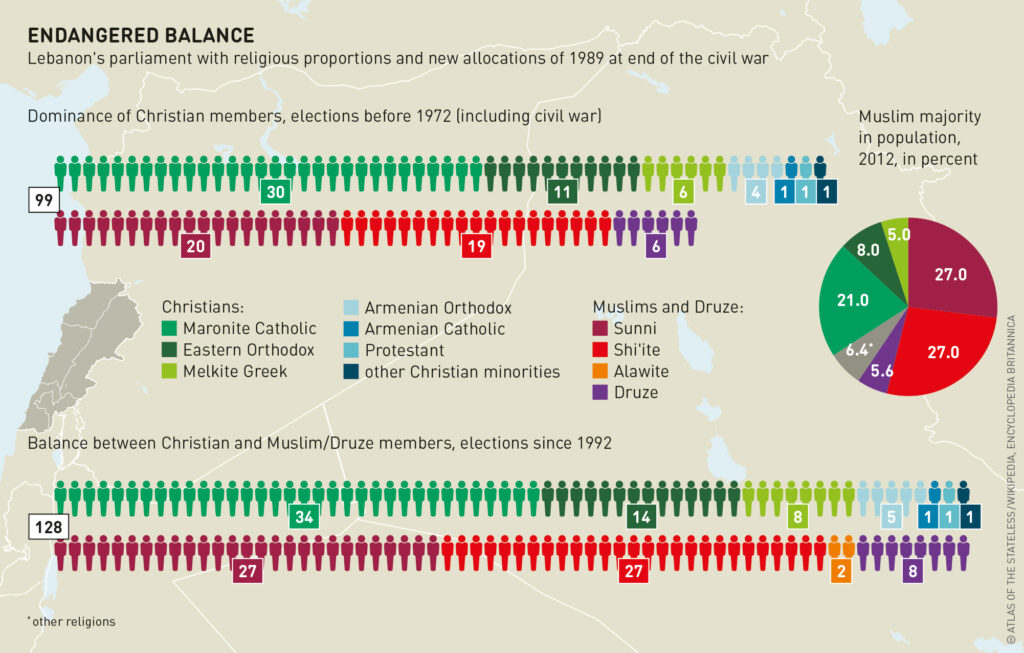
Data availability: Known unknowns
“If you can’t measure it, it doesn’t exist.” Stateless people often do not appear in official data. The state may be aware of their existence, but does not know how many there are, where they are, or what they need. They are invisible, and thus are easily overlooked or deliberately ignored. Lebanon is a prime example of this problem.
By Samira Trad
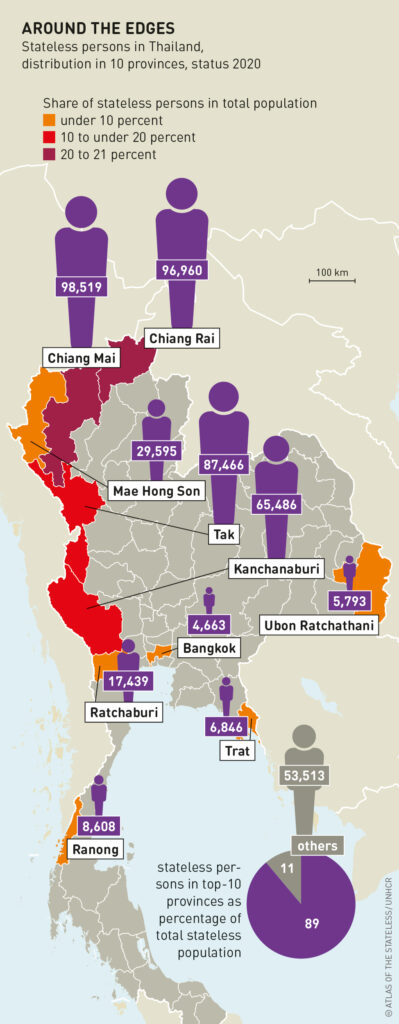
Health: Treating symptoms, not the cause
Health and human rights are inextricably intertwined. Without the right papers, people may be denied government health services. They may be forced to pay for more expensive private doctors and clinics, or have to do without healthcare altogether. As a result, they tend to be less healthy than the general population. That is bad for everyone: sick people are less productive, and society has to pick up the bill.
By Proloy Barua
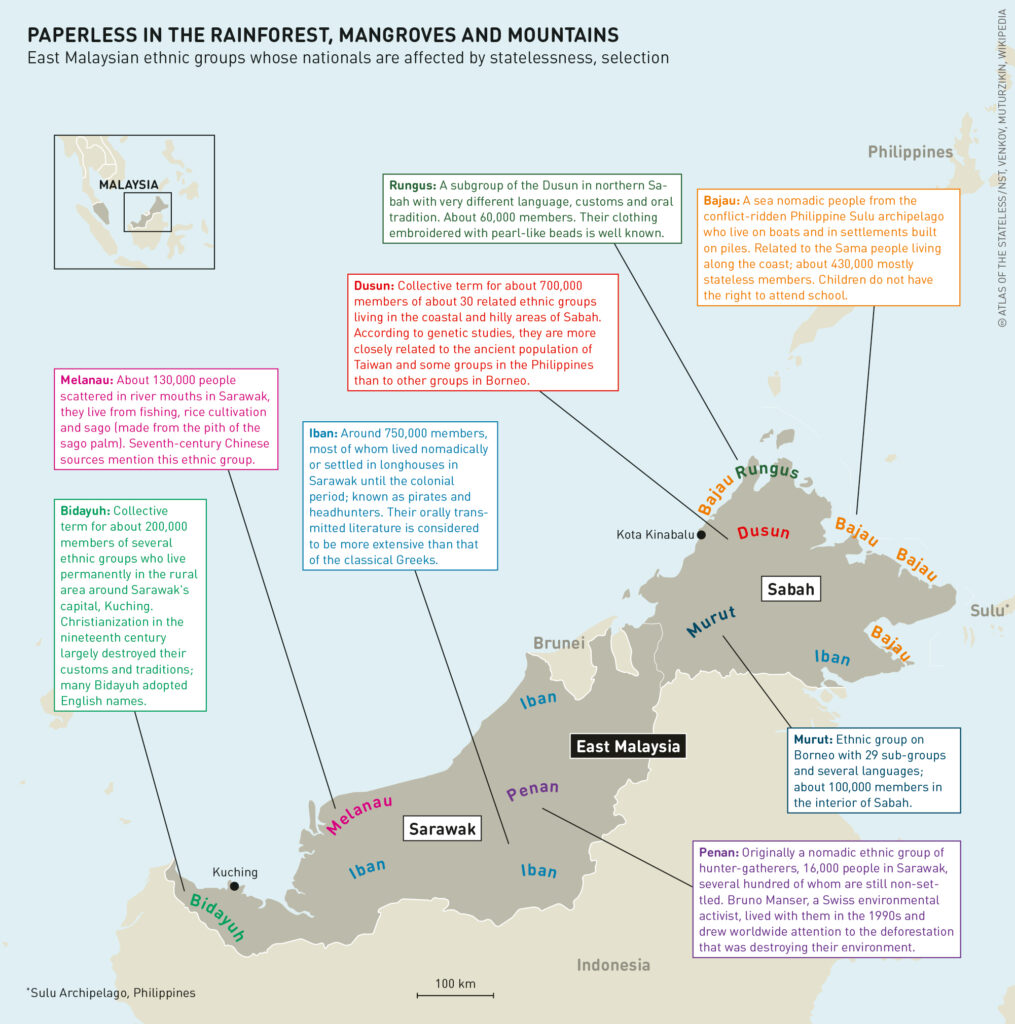
Malaysia: The indignity of the indigenous
The Malaysian term bumiputera, or “son of the soil” refers to people whose ancestors are native to Malaysia. But a large number of bumiputera – especially non-Malay indigenous people – are in fact stateless, because the state fails to recognize their marriage and other customs.
By Linda Lumayag
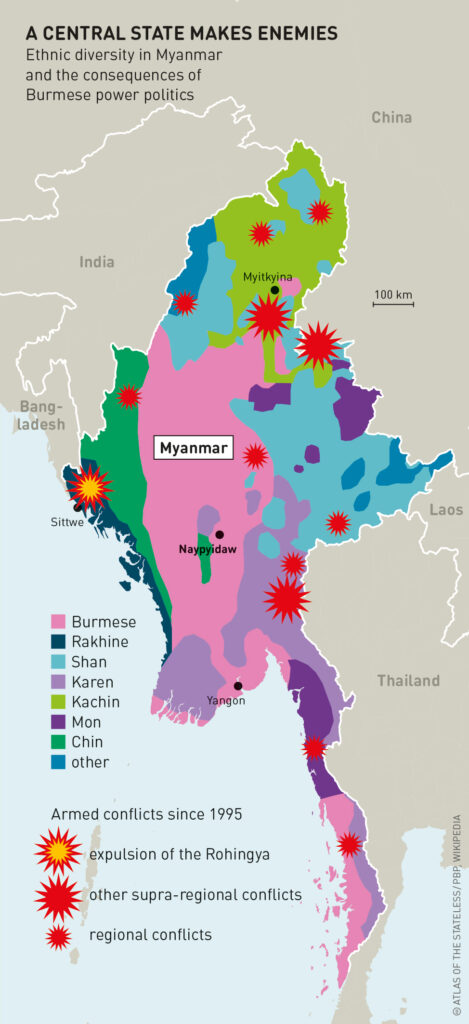
Rohingya: Rejected and disowned
Violences, discriminations, contrôles arbitraires… l’histoire des Rohingyas est toujours inscrite dans l’actualité mortifère de l’humanité. Même si certaines instances juridiques mondiales ont été saisies, il y a urgence à s’emparer de ce dossier complexe.
By Katherine Southwick
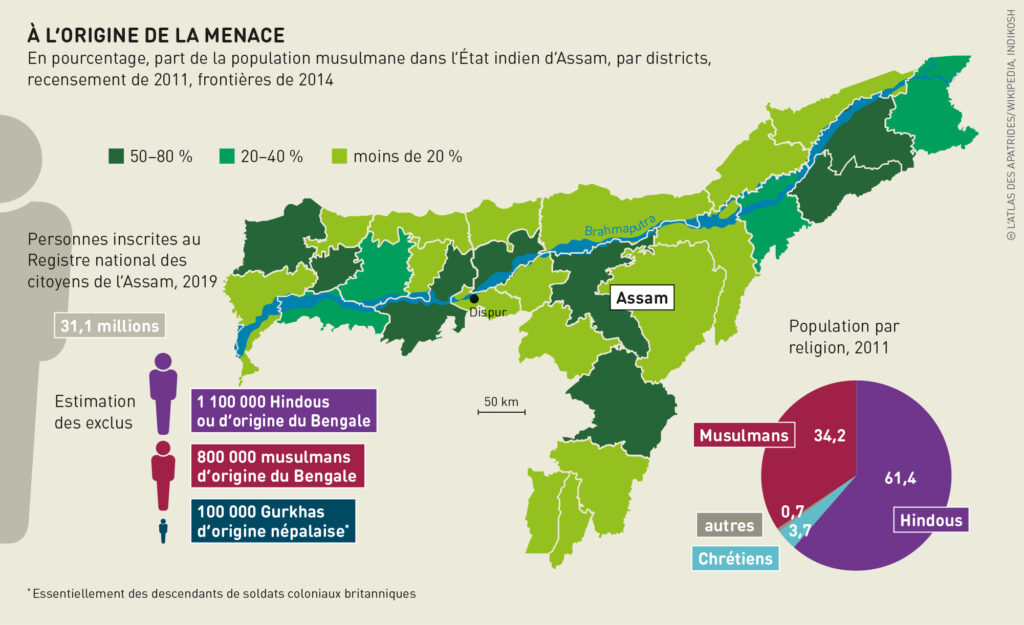
Assam: Along the Brahmaputra
Anti-Muslim politicians in the northeast Indian state of Assam wanted to use a new register of citizens to trigger the mass deportation of Muslims to neighbouring Bangladesh. But most of the people affected turned out to be Hindus.
By Subir Bhaumik
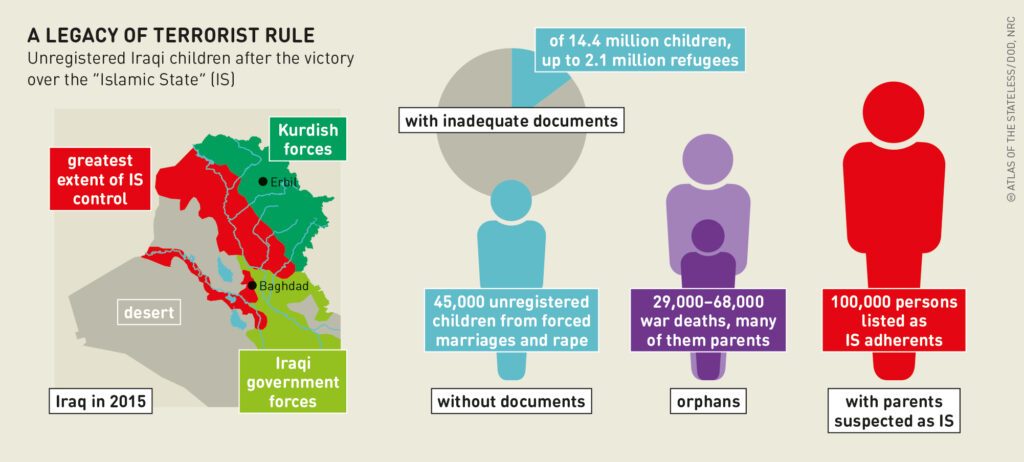
Iraq: Many groups and many causes
In Iraq, people have been left stateless because of successive waves of conflicts and injustices. Some groups have suffered a long history of discrimination; others have been rendered stateless by more recent events. Laws that discriminate against women are a special problem – but would be easy to fix.
By Zahra Albarazi
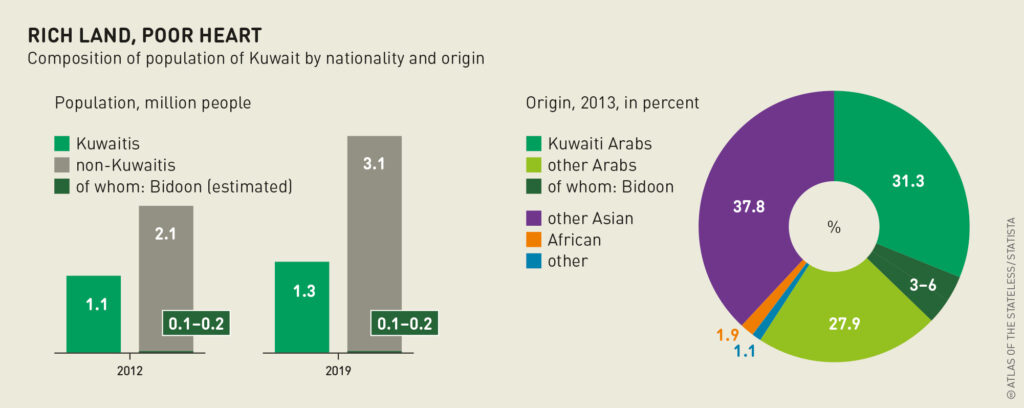
Kuwait: Just wanting to belong
The drawing of boundaries early in the last century left bitter legacies. Thousands of people who were born in Kuwait and have lived there all their lives cannot claim Kuwaiti nationality. They are deprived of basic rights – to vote, enrol in a public school, or travel. And they are fated to pass on their statelessness to their children and children’s children.
By Christian Jakob
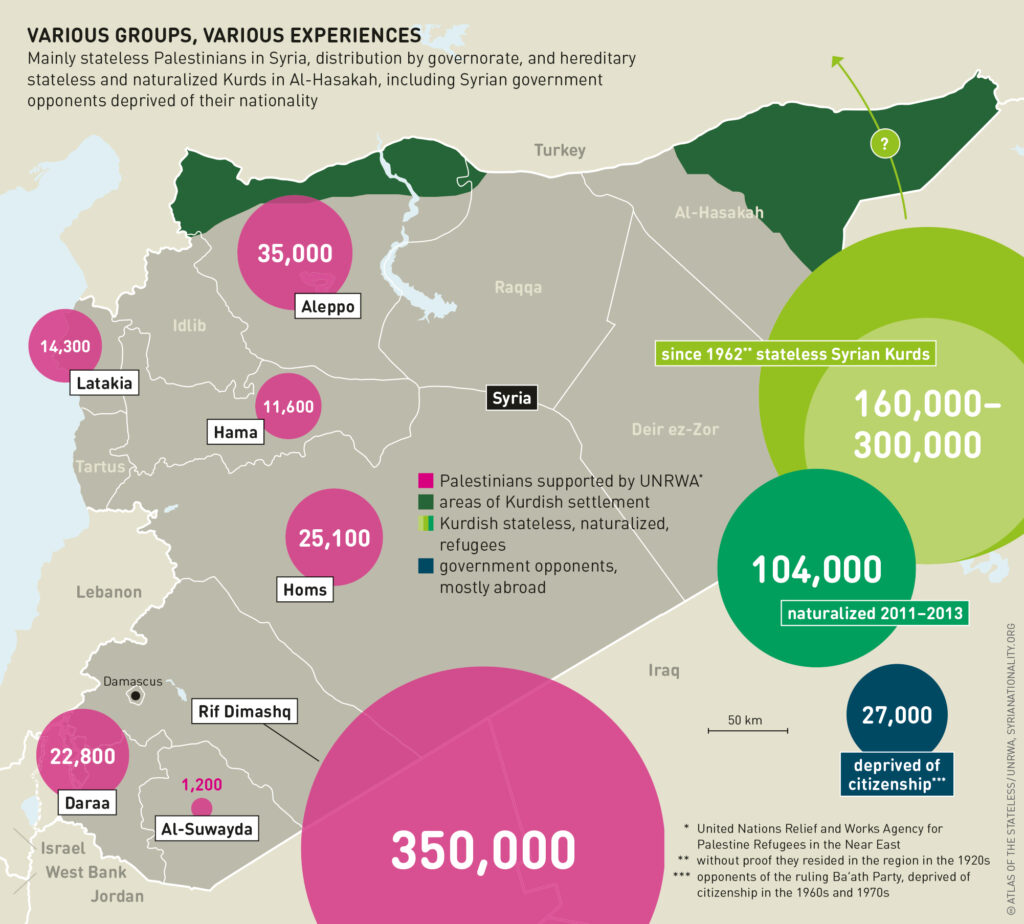
Syria: Lacking citizenship and seeking protection
Stateless people can be especially vulnerable when they find themselves in an armed conflict, because they are suspected and persecuted from all sides. Conflict-induced displacement creates yet more risks of statelessness. But paradoxically, a conflict may also reduce the number of stateless people as governments try to appease certain groups.
By Thomas McGee
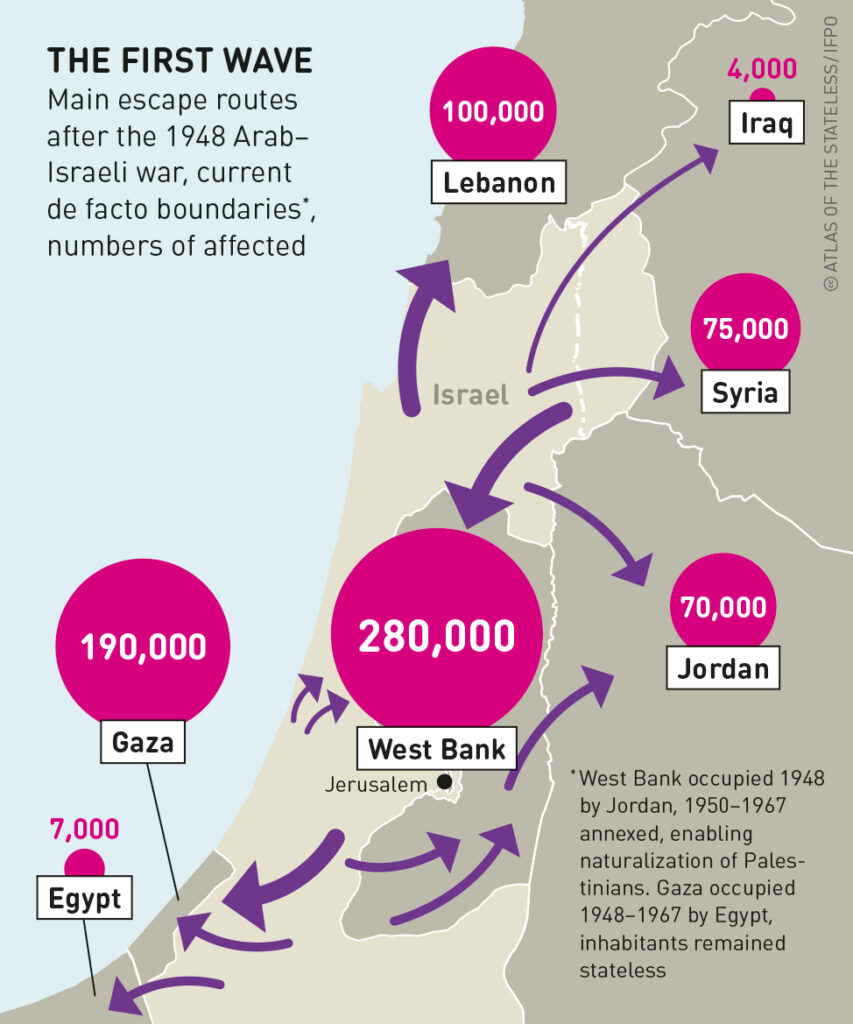
Palestinians: A land without promise
One sequence of historical wrongs – antisemitism in Europe, culminating in the horrors of the Holocaust – led to the creation of Israel. But that gave birth to another set of wrongs: the displacement of Palestinians from their homes and their homeland. The Palestinian diaspora still has no hope of return, and many are still not accepted in the places where they live.
By Jaber Suleiman
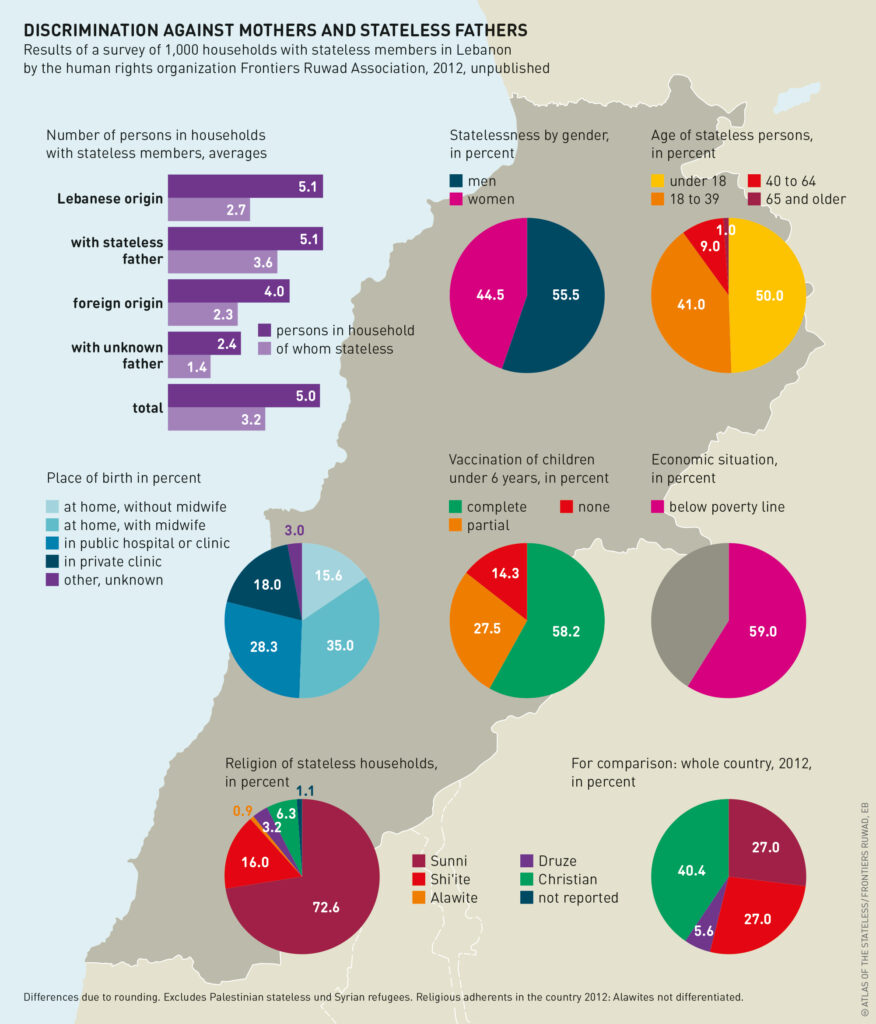
Lebanon: Gender discrimination down the generations
Laws in many countries discriminate against women in numerous ways: in health, education, marriage, employment, parenthood, inheritance and property rights. Citizenship is no exception: women often cannot pass on their citizenship to their children. The situation is particularly acute in Lebanon, where the Nationality Law of 1925 condemns many people to statelessness today. It would be easy to solve such problems, but the country’s delicate religious and political balance prevents this.
By Samira Trad
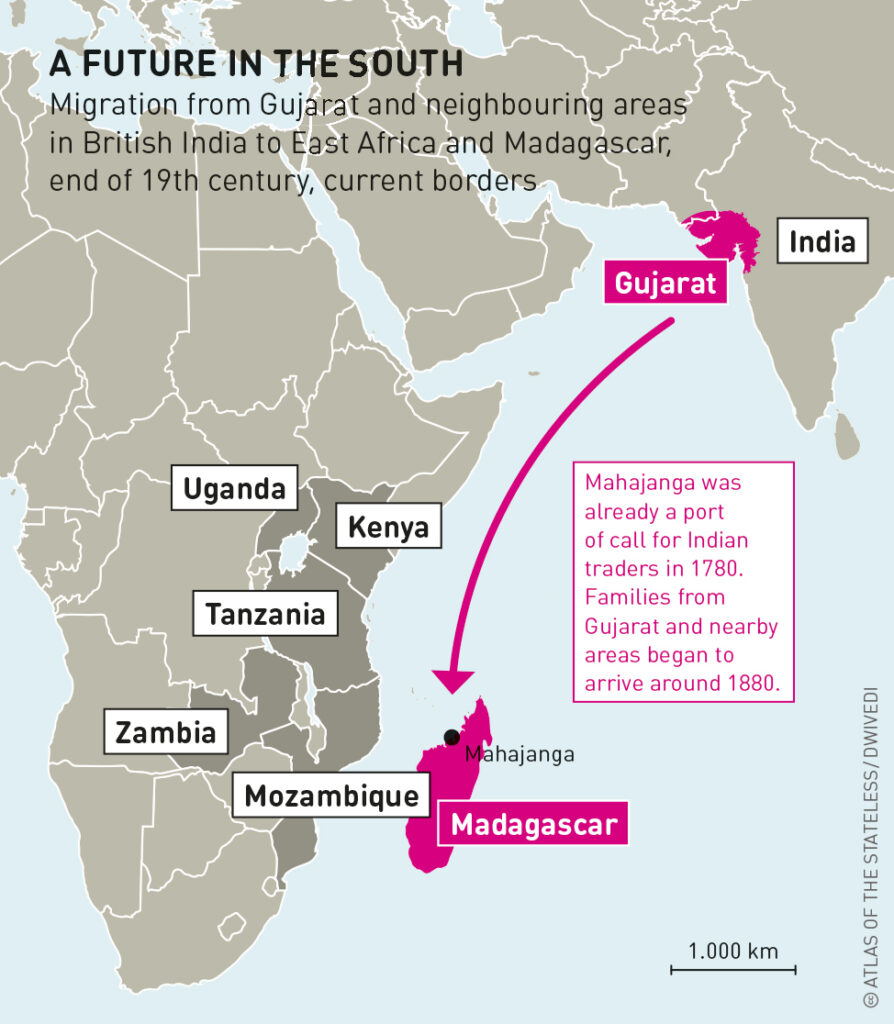
Madagascar: Indian ocean, but not Indian
The end of colonialism led to the independence of many countries and a new nationality for many of their inhabitants. But not all. Some people were left stranded: immigrants in the newly independent countries had no state that would accept them. That is the case of the Karana, a minority group in Madagascar.
By Olivia Rajerison
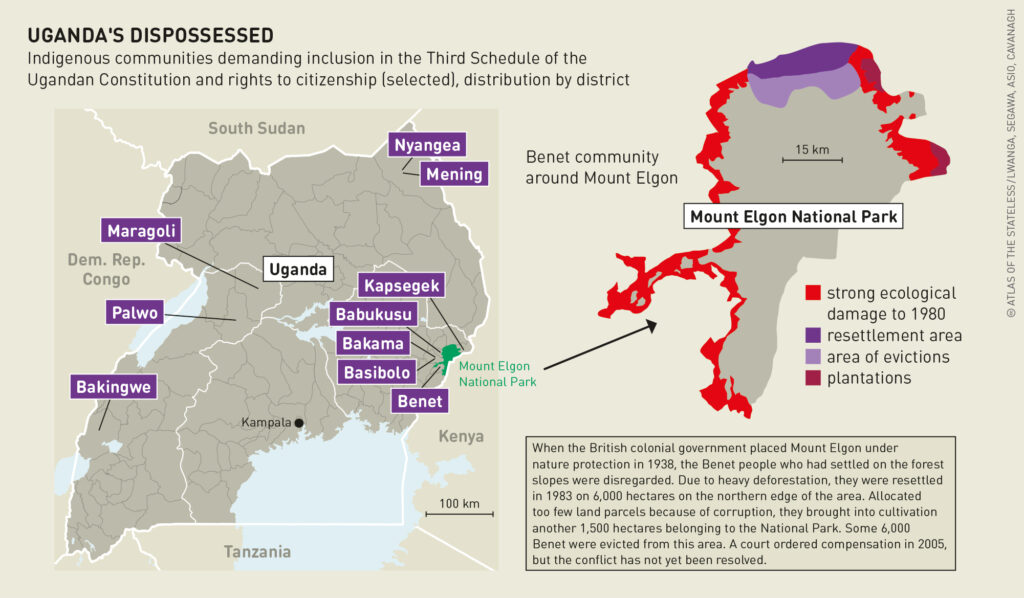
Uganda: None of the above
Having a proof of identity is useful for many reasons: to access services, to enable people to exercise their rights, and to prevent fraud. But even the best-designed identity systems may have gaps – through which people who do not fit the criteria may fall. And once they have fallen through the gap, it is difficult to climb back up.
By Johanna Katharina Seidl
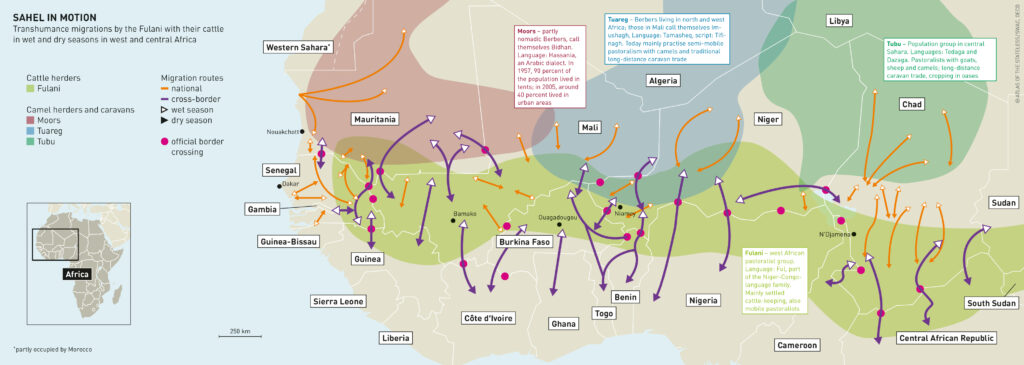
West African Nomads: Moving with the herds
The concept of the modern state, and the rules of nationality, are based on the idea of residency within fixed boundaries. But millions of people, especially in the drier areas of Africa and Asia, move with their herds from place to place in search of water and pasture. Their lifestyle is far older than the boundaries that cut across their traditional grazing grounds.
By Bronwen Manby
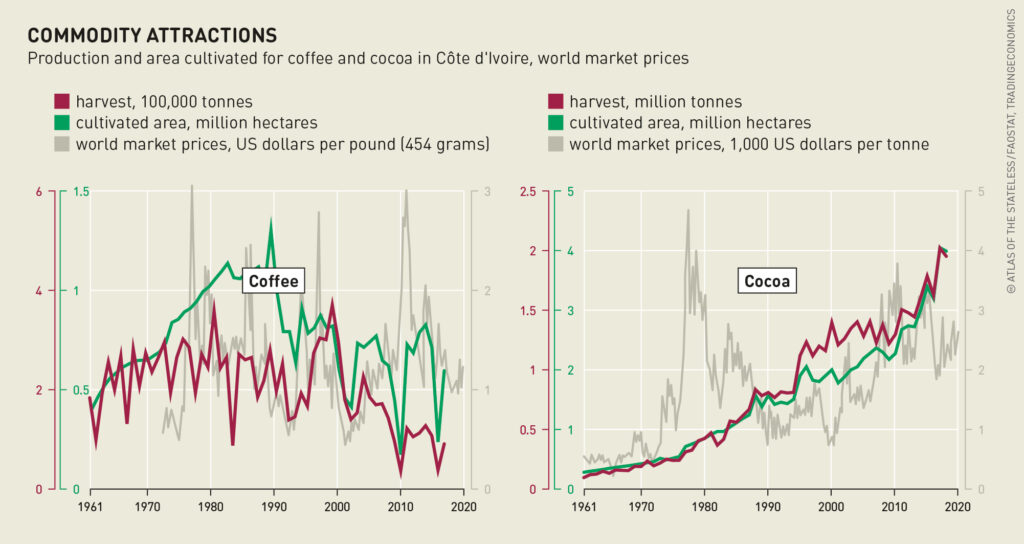
Côte d’Ivoire: For coffee and cocoa
Statelessness in Côte d’Ivoire is the result of immigration by large numbers of workers during and since the colonial era. The country’s citizenship law is restrictive and arbitrarily enforced, but the government has said it will resolve the problem of statelessness by 2024.
By Nicola Liebert
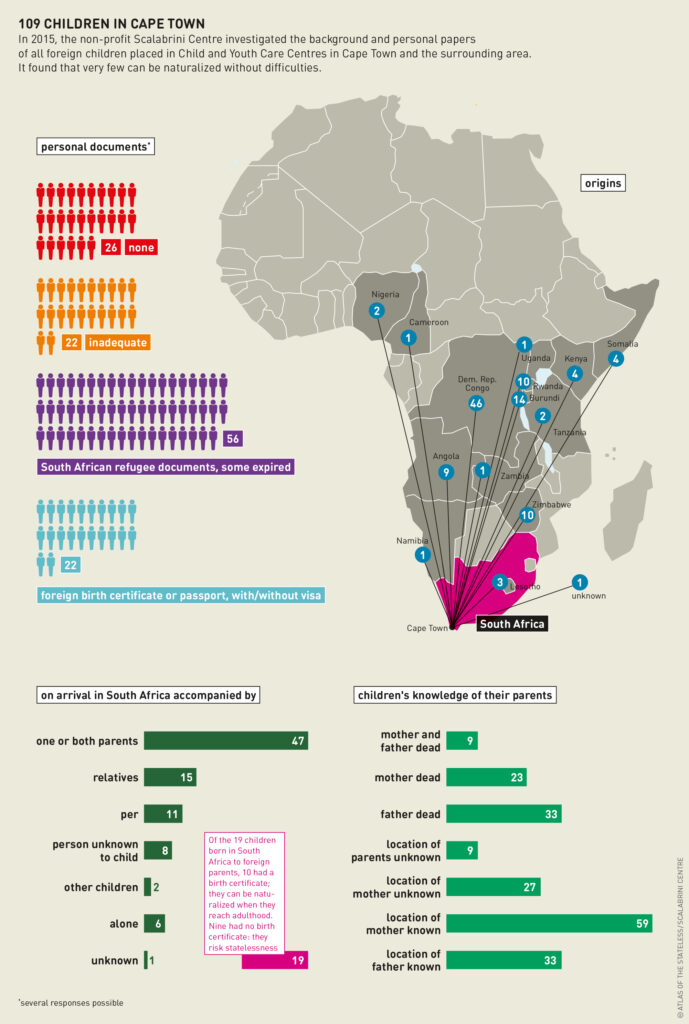
South Africa: Birth but no birthrigh
South Africa has one of the most enlightened and liberal constitutions in the world. But even here, thousands of people fall into, or are born into, the limbo of statelessness. Loopholes in laws leave gaps – gaps that large numbers of people can fall through. Children are especially at risk.
By Sindisiwe Moyo
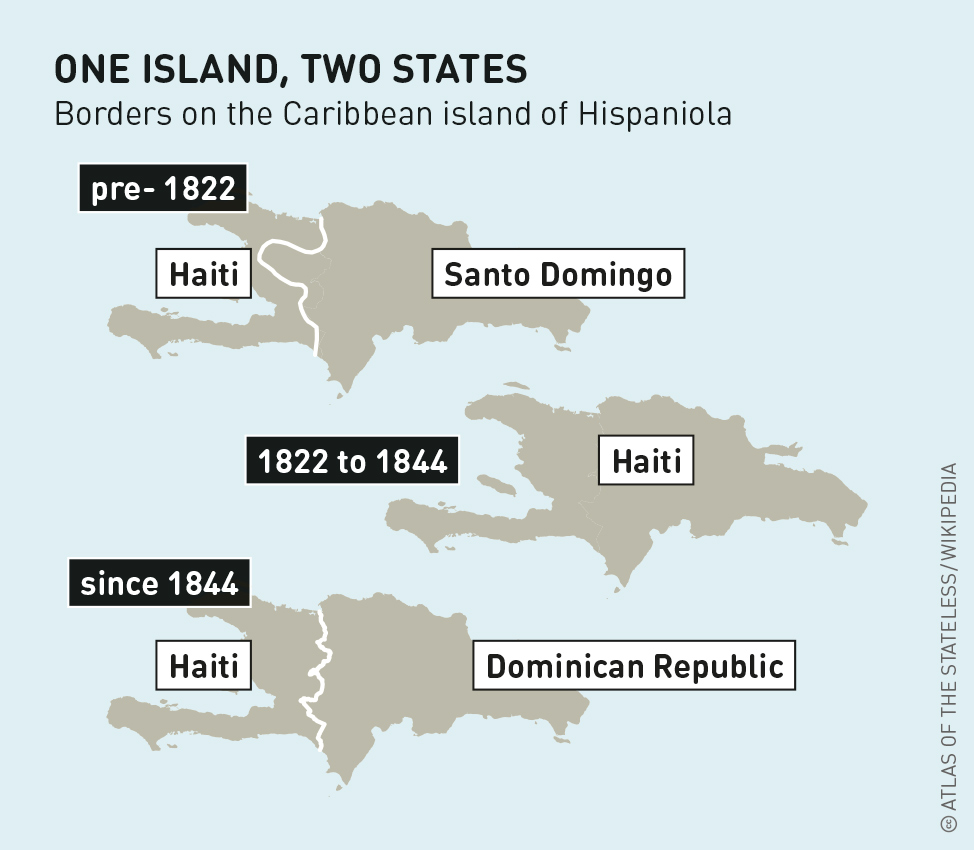
Dominican Republic: Changing the rules
The rise of nationalism and xenophobia in some countries is leading governments to consider changes to the rules governing citizenship there. That causes problems for migrants and their descendants. A constitutional change in the Dominican Republic revoked the citizenship of hundreds of thousands people of Haitian origin. Local and international pressure has restored those rights for only half of them.
By Hans-Ulrich Dillmann
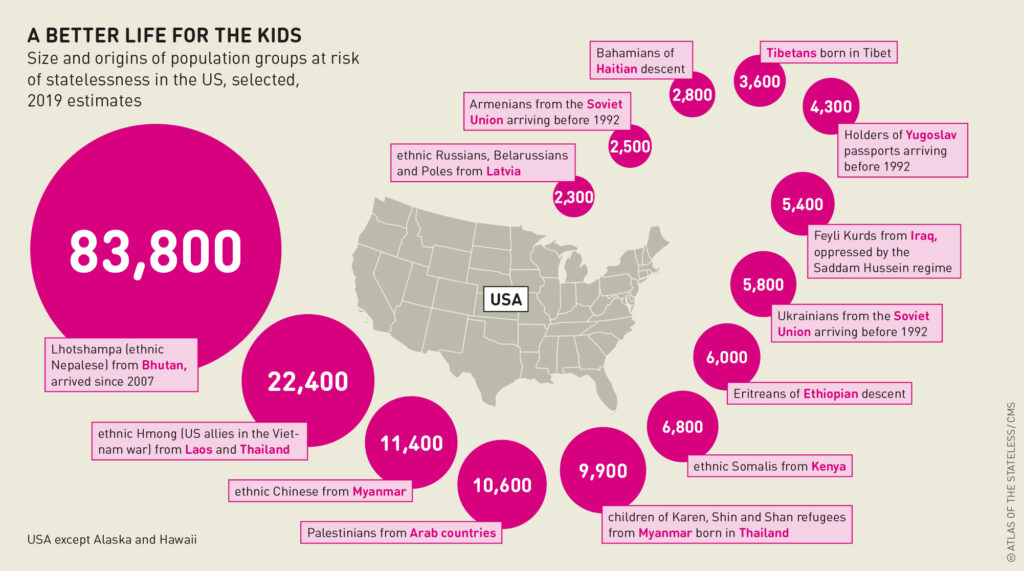
USA: Fifty states, but no room for the stateless
“Give me your tired, your poor / Your huddled masses yearning to breathe free…” says a plaque on the Statue of Liberty in New York. Since its founding, the United States has welcomed immigrants and has granted them citizenship. Their children born on American soil automatically become US nationals. The current US administration is trying to overturn this proud tradition.
By David C. Baluarte
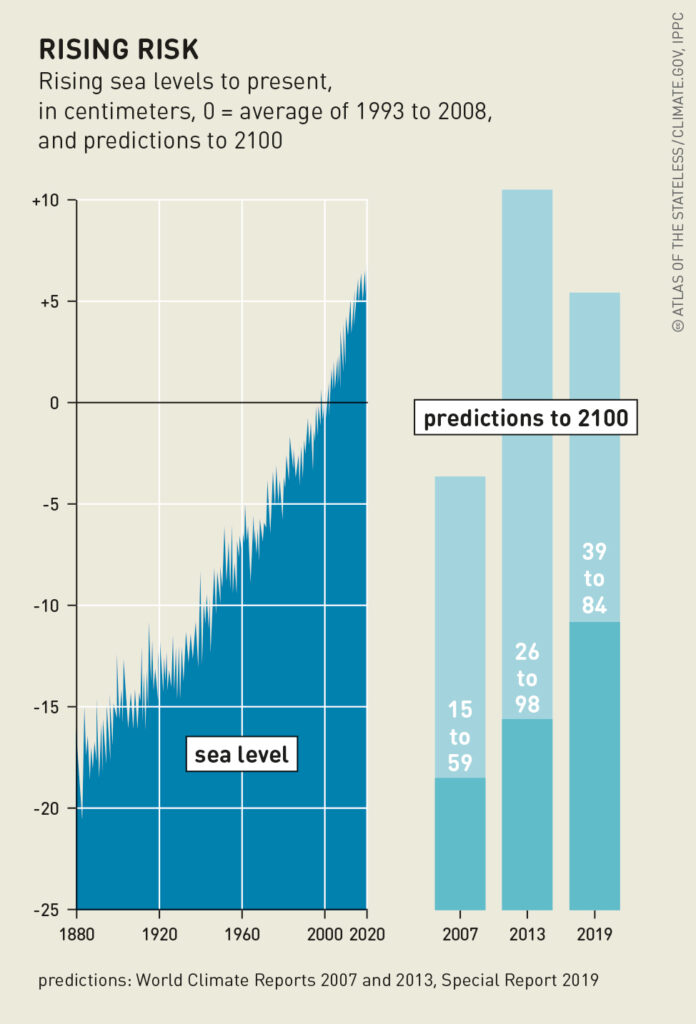
Islands: When home disappears beneath the waves
As sea levels rise and deserts spread, more and more people are being displaced. Refugees dislodged by climate change risk becoming stateless. Legal frameworks for states with no habitable land must be in place ahead of time.
By Graham Pote
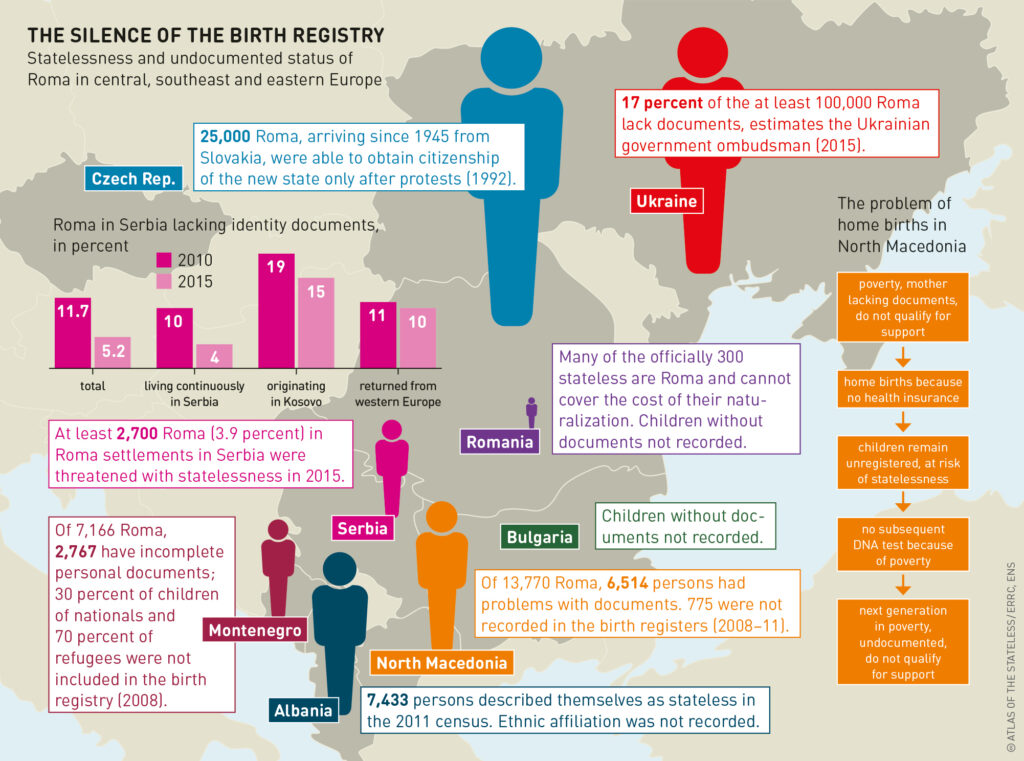
Roma: No papers, no rights
Most people live in one place: they have a house or a flat, perhaps even a garden. Groups with a mobile lifestyle do not fit in, and thus are viewed with suspicion and hostility. That is true of the Roma in Europe, even though many have been settled for generations. The possession or acquisition of documents proving citizenship is a major problem.
By Vladan Jeremić
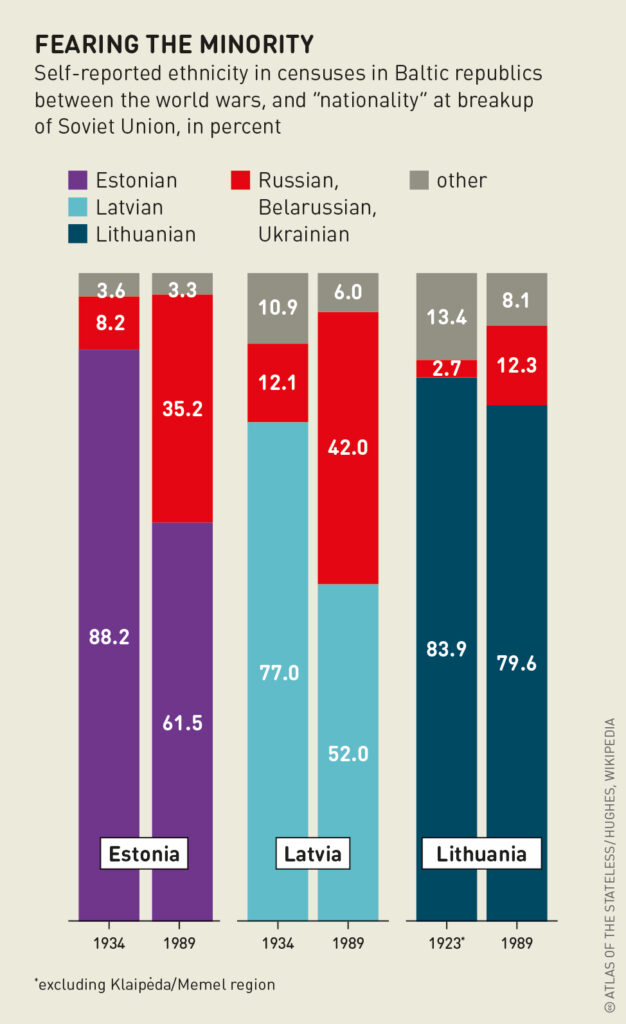
Baltics: Breaking up after a forced marriage
The three Baltic States – Estonia, Latvia and Lithuania – were independent between the two world wars but were absorbed by the Soviet Union in 1940. After the dissolution of the Soviet Union, they sought to rebuild their nation-states and identities. This explains the differences in their citizenship strategies.
By Aleksandra Kuczyńska-Zonik
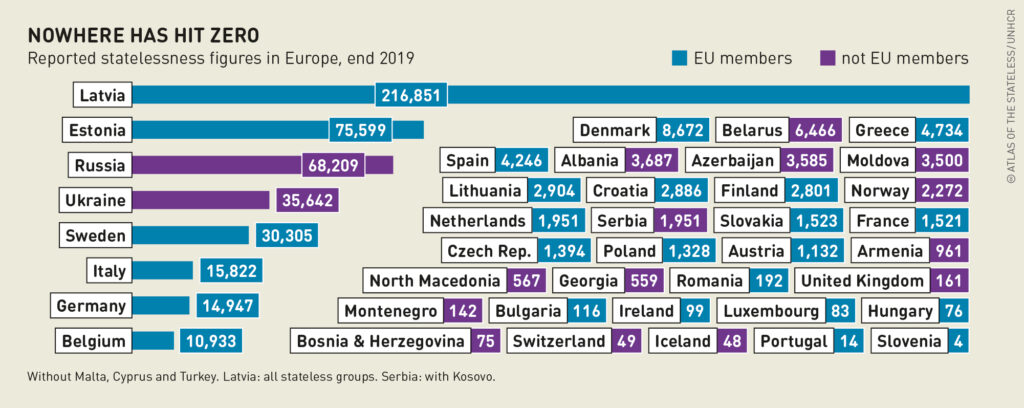
Europe: Not yet a model for the world
The Old Continent – and the European Union in particular – likes to see itself as a model of democracy and human rights. But it is home to a surprising number of stateless people – some from Europe itself, as well as more recent arrivals. The countries of Europe must do more to solve this solvable issue.
By Chris Nash
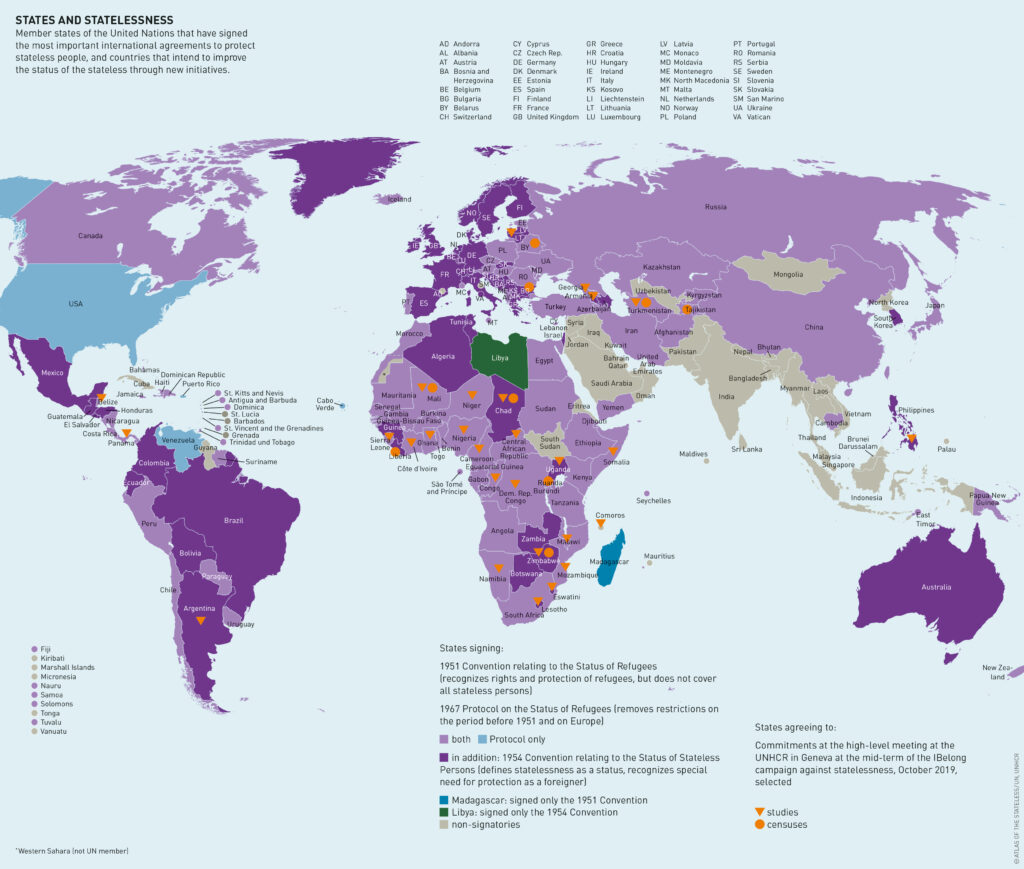
Conventions: Of states and statelessness
States grant their nationality to individuals, but they follow different sets of rules, and sometimes apply those rules in ways that lead to statelessness. International law has tried to plug the gaps, but less than half the world’s countries have signed up.
By Matthias Reuß
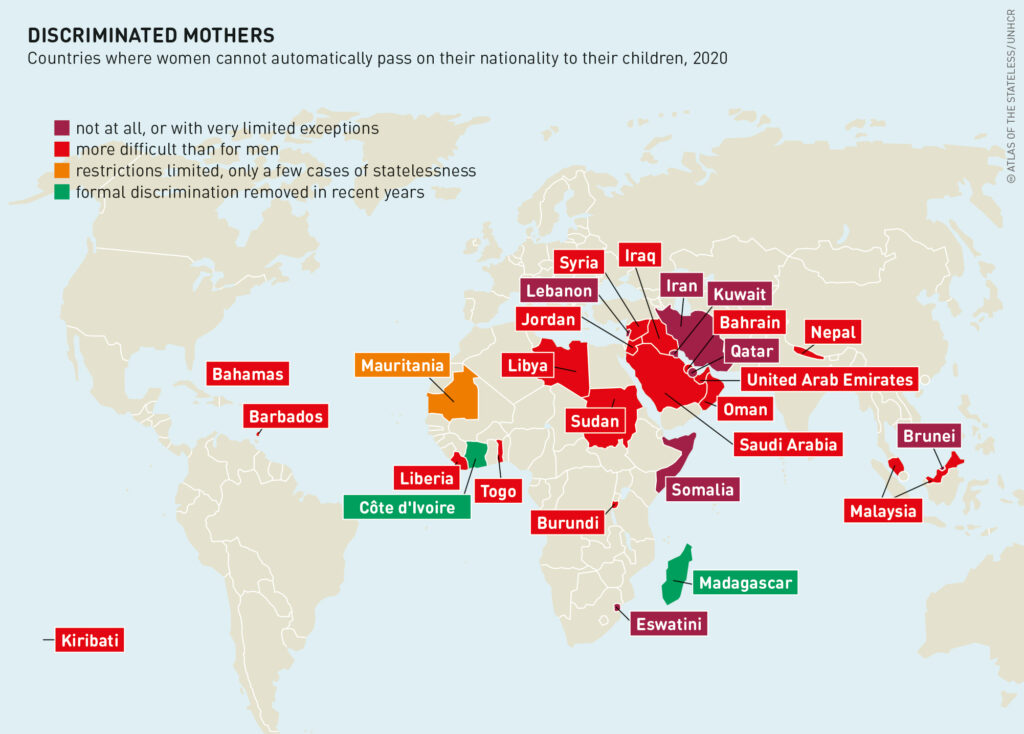
The IBelong Campaign: Putting statelessness on the front burner
Statelessness is all too often invisible. Not recognised as nationals of any country, stateless people are often deprived of basic rights. The IBelong campaign, led by UNHCR, is trying to change this by raising awareness about the issue and pushing for change — with some initial successes.
By Melanie Khanna
